- Travel Advisories |
- Contact Us |
- MyTravelGov |

Find U.S. Embassies & Consulates
Travel.state.gov, congressional liaison, special issuance agency, u.s. passports, international travel, intercountry adoption, international parental child abduction, records and authentications, popular links, travel advisories, mytravelgov, stay connected, legal resources, legal information, info for u.s. law enforcement, replace or certify documents.
Before You Go
Learn About Your Destination
While Abroad
Emergencies
Share this page:
Travel Advisory January 11, 2024
Nicaragua - level 3: reconsider travel.
Reissued with updates to information on arbitrary enforcement of laws.
Reconsider travel to Nicaragua due to arbitrary enforcement of laws, the risk of wrongful detention, and limited healthcare availability . Exercise increased caution in Nicaragua due to crime.
Country Summary : Throughout Nicaragua, government and law enforcement officials continue to target individuals and organizations seen as opponents of President Daniel Ortega and his wife, Vice President Rosario Murillo. U.S. citizens, including dual Nicaraguan-U.S. citizens, have been subject to revocation of Nicaraguan citizenship, reentry bans, expulsion, and other actions. The government and its affiliated groups have been reported to:
- Arbitrarily prevent individuals from entering or departing Nicaragua by air or land for perceived associations.
- Search personal phones, computers, and documents for anti-government content, limit photography of government property, and sometimes seize devices.
- Systematically target individuals for political reasons, regardless of nationality, including former allies, political activists, business representatives, clergy, human rights advocates, civil society leaders, academics, and members of the press.
- Arbitrarily target pro-democracy advocates and their family members.
- Confiscate privately-owned land, residences, financial assets, and personal property without warning or due process.
- Arbitrarily detain, accuse, and charge individuals with terrorism, money laundering, and organized crime offenses for political reasons without respect for fair trial guarantees.
U.S. citizen residents of Nicaragua also report increased scrutiny of alleged political speech.
U.S. citizens arrested in Nicaragua may find themselves subject to prolonged detention without charges or respect of fair trial guarantees. The judicial process lacks transparency, especially in politically motivated arrests and property dispute cases. Political influence and pressure may influence the outcome of legal proceedings.
The Department has determined the risk of wrongful detention of U.S. nationals by the Government of Nicaragua exists.
Travelers should exercise increased caution and be alert to the risks of crime, including violent crimes such as sexual assault and armed robbery.
Poor infrastructure in parts of the country limits the Embassy’s ability to assist U.S. citizens in emergencies. U.S. government personnel under Chief of Mission security responsibility may be subject to restrictions on their movements at any time.
Read the country information page for additional information on travel to Nicaragua.
If you decide to travel to Nicaragua:
- Consider arrangements to depart the country quickly.
- Ensure your U.S. passport is valid and available for a quick departure from the country, if needed.
- Avoid demonstrations and restrict unnecessary travel.
- Do not attempt to drive through crowds, barricades, or roadblocks.
- Maintain adequate supplies of food, cash, potable water, and fuel in case you need to shelter in place.
- Use caution when walking or driving at night.
- Keep a low profile.
- Do not display signs of wealth such as expensive watches or jewelry.
- Be aware of your surroundings.
- Visit our website for Travel to High-Risk Areas .
- Enroll in the Smart Traveler Enrollment Program ( STEP ) to receive Alerts and make it easier to locate you in an emergency.
- Follow the Department of State on Facebook and Twitter .
- Review the Country Security Report for Nicaragua.
- Prepare a contingency plan for emergency situations. Review the Traveler’s Checklist .
- Visit the CDC page for the latest Travel Health Information related to your travel.
Embassy Messages
View Alerts and Messages Archive
Quick Facts
Length of stay.
One page per stamp.
No (90 days or fewer). Tourist card at airport. See Entry, Exit & Visa Requirements below.
Yellow fever (in some cases, see Entry Requirements section).
Must declare $10,000 USD or more in cash.
Embassies and Consulates
U.S. Embassy Managua
Km 5 ½ Carretera Sur Managua, Nicaragua Telephone: +(505) 2252-7100 Emergency After-Hours Telephone: +(505) 2252-7100 Fax: +(505) 2252-7250 Email: [email protected]
Email: [email protected]
Destination Description
Learn about the U.S. relationship to countries around the world.
Entry, Exit and Visa Requirements
The Government of Nicaragua has denied entry to or expelled U.S. citizens, including dual U.S.-Nicaraguan citizens, for political reasons including perceived support for or association with disfavored people or organizations. The Government’s actions have been taken against NGO workers, academics, religious workers, journalists, and many others. The Nicaraguan government has revoked residency status for foreign nationals for actions or expressions it perceives as political. Travelers attempting to leave the country have been arrested or denied permission to travel for political reasons. Immigration authorities regularly review social media for evidence of political expression or activity and warn against such activities.
- For visitors other than tourists , the Government of Nicaragua recommends that you pre-register your trip by following the instructions available on the Nicaraguan immigration website (in Spanish only). See our website for additional information.
- All travelers should have an onward or return ticket and evidence of funds to support yourself while in Nicaragua. You must carry a valid identity document at all times, such as a U.S. driver’s license or U.S. passport.
- You must purchase a tourist card for $10 USD at the airport (exact change recommended), valid for up to a total of 90 days in any of the member countries of the Central America-4 Border Control Agreement . Visitors remaining longer must obtain an extension from Nicaraguan immigration or be subject to large fines.
- Individuals traveling from countries at risk of yellow fever transmission must show proof of yellow fever vaccination administered at least 10 days before travel to be permitted entry to Nicaragua.
- If you use a passport of a different nationality than you did on prior trips to Nicaragua, Nicaraguan authorities may deny you entry. If you possess multiple nationalities, you should carry a valid passport for all of them. If you have Nicaraguan nationality, you should have both your U.S. and Nicaraguan passports with you.
- You must exit Nicaragua with the same passport used for entry . If your U.S. passport is lost or stolen while in Nicaragua, you will need to get a new entry stamp from Nicaraguan Immigration before you can depart by following instructions available on the Nicaraguan immigration website (in Spanish only). This cannot be done at the airport on departure.
- There is a $42 USD tax that must be paid upon exiting (this tax is normally included in the price of the plane ticket for air travelers).
- See the U.S. Embassy website for information regarding departure requirements for children under 18 who also are Nicaraguan citizens .
- Nicaraguan government authorities may search personal phones, computers, and documents for anti-government content and sometimes seize such private property. Equipment such as binoculars, drones, or other items will generally be confiscated without a mechanism to retrieve these items later.
Advanced Coordination Required for Volunteer Groups: Please note that the Government of Nicaragua has forced the closure of more than 3,500 NGOs and charitable organizations. Groups engaged in these types of activities, including the apolitical provision of basic services, may be denied entry. You should email both the Embassy of Nicaragua in the United States ( [email protected] ) and the Nicaraguan Ministry of Foreign Affairs ( [email protected] ) to inform them of your trip and secure advance permission if you are leading one of the following types of trips, even if your group has worked in Nicaragua previously or has a local office:
- Volunteer mission;
- Charitable or medical brigade (the latter also need permission from the Nicaraguan Ministry of Health); or
- Assistance visit organized by NGOs, religious groups, schools, or any other group doing this type of work in Nicaragua.
For the latest visa and entry requirements, visit the Nicaraguan immigration website (Spanish only).
HIV/AIDS Restrictions: The U.S. Department of State is unaware of any HIV/AIDS entry restrictions for visitors or foreign residents in Nicaragua.
Dual Nationality and International Parental Child Abduction : Find information on dual nationality , prevention of international child abduction , and customs regulations on our websites.
COVID-19 Information: As of July 21, 2023, the Nicaraguan government lifted all COVID-19 related travel restrictions. Travelers arriving in Nicaragua do not need to provide proof of vaccination or a negative COVID-19 test.
Safety and Security
The Government of Nicaragua is authoritarian, limits freedom of expression and peaceful assembly, represses internal dissent, and monitors and responds to perceived threats to its authority. Nicaragua’s Sovereign Security Law and its Terrorism and Money Laundering law allow for discretionary interpretation of often vaguely defined unlawful activities, such as threatening the peace and economic stability of Nicaragua. Convictions under these laws have often been arbitrary and result in long prison sentences.
Nicaraguan authorities and armed civilians in plain clothes known as “para police” may monitor, detain, deny entry to, expel, or question U.S. citizens concerning their activities, including their contact with Nicaraguan citizens. Visitors should avoid any commentary on Nicaraguan politics or governance. Nicaraguan authorities have subjected U.S. citizens, including dual U.S.-Nicaraguan citizens, to prolonged detentions which are often politically motivated or arbitrary. Especially in politically motivated arrests, the judicial process has regularly been criticized as neither fair nor transparent.
Demonstrations or strikes may occur throughout the country; in the past, the Nicaraguan government has violently suppressed them. Avoid demonstrations and exercise extreme caution around large gatherings.
Roads may be closed, and public transportation may be disrupted due to large crowds celebrating the following holidays:
- Semana Santa (the week before Easter);
- Repliegue Historico a Masaya (early July);
- July 19 celebration of the Sandinista Revolution;
- Celebration in Managua of Santo Domingo, the Patron Saint of the city (August 1st and August 10th);
- Day of the Nicaraguan Army (September 2);
- Nicaraguan Independence Day (September 14 and 15); and
- Immaculate Conception (December 8).
Crime: Vehicle burglaries, pick-pocketing, and occasional armed robberies occur in store parking lots, on public transportation, and in open-air markets like the Oriental and Huembes Markets in Managua. Petty street crime is common. Police presence is extremely limited outside of major urban areas. The Caribbean Coast’s geographical isolation further limits the U.S. Embassy’s ability to provide emergency services to U.S. citizens living in or visiting the area. Uniformed police and para-police commit violence and intimidate civilians throughout the country for political reasons.
U.S. citizens have been sexually assaulted in beach resort areas. There are no forensic doctors on the Corn Islands , so victims of violent crimes, including sexual assault, must travel to Bluefields at their own expense for medical examinations and collection of evidence. In several recent cases, police were reluctant to produce police reports or pursue charges . Please report such incidents to the Embassy.
Medical services outside Managua are limited, including for victims of crime.
Exercise extreme caution when renting or driving vehicles. In one common scam, “Good Samaritans” pull over to help change a flat tire. While the driver is distracted, an accomplice steals the driver’s possessions.
Due to crime and other illicit activity, U.S. government personnel under Chief of Mission security responsibility are prohibited from entering Managua’s Oriental Market and gentlemen’s clubs throughout the country.
International Financial Scams: See the Department of State and the FBI page for information.
Victims of Crime: Report crimes, including sexual assault, to the local police at 118 (Nicaraguan equivalent of “911,” in Spanish). Report serious crimes to the U.S. Embassy at 2252-7100 immediately and minor crimes during business hours.
Local authorities are responsible for investigating and prosecuting crimes.
See our webpage on help for U.S. victims of crime overseas .
The U.S. Embassy can:
- Help you find appropriate medical care.
- Assist you in reporting a crime to the police.
- Contact relatives or friends with your written consent.
- Provide a list of local attorneys.
- Share information on victim’s compensation programs in the United States .
- Provide an emergency loan for repatriation to the United States and/or, limited financial support in cases of destitution.
- Help you find accommodation and flights home.
- Replace a stolen or lost passport.
Domestic Violence: U.S. citizen victims of domestic violence are encouraged to contact the U.S. Embassy for assistance.
Coastal Disputes: Be aware of the following border disputes:
- Nicaragua and Colombia have an ongoing dispute over waters surrounding the San Andres Islands.
- The Nicaraguan Navy has challenged vessels passing through its exclusive economic zone.
- Nicaragua and Costa Rica have stationed security forces at Harbor Head (also called Isla Calero) at the eastern end of the San Juan River.
- Nicaragua, Honduras, and El Salvador have maritime and land disputes over islands and access to fishing rights in the Gulf of Fonseca on the Pacific Coast, a closed sea under international law.
Tourism: The tourism industry is unevenly regulated, and safety inspections for equipment and facilities are uncommon. Hazardous areas/activities are not always identified with appropriate signage, and staff may not be trained or certified. In the event of an injury, appropriate medical treatment is typically available only in major cities. In the event of a diving injury, the only hyperbaric chamber is in Puerto Cabezas, over 100 miles from Corn Island where most tourists dive. U.S. citizens are encouraged to purchase medical evacuation insurance. See our webpage for more information on insurance providers for overseas coverage .
Beach Safety: Exercise caution at the beach. U.S. citizens have drowned at Nicaraguan beaches, and in lagoons and lakes. Warning signs are not always posted. Lifeguards and rescue equipment are not normally available.
Hiking in volcanic or remote areas is dangerous. Wear appropriate clothing and footwear. Carry sufficient food, water, and communication equipment. If you travel to remote areas, hire a reputable local guide. Nicaraguan law requires tourists hire a local guide for several volcanoes, including the two volcanoes on Ometepe Island (Maderas and Concepcion).
Disaster Preparedness: Nicaragua is prone to earthquakes, hurricanes, floods, and volcanic eruptions. If you are at a coastal area when an earthquake occurs, move swiftly to higher ground (when safe to do so) to avoid possible tsunamis.
In the event of an earthquake, volcanic eruption, or other natural disaster, U.S. citizens should pay close attention to local media reports.
- Follow the guidance of local authorities and monitor the websites of the Nicaraguan Institute for Territorial Studies ( INETER ) and the Nicaraguan Emergency Alert System ( SINAPRED ).
- Enroll in the Smart Traveler Enrollment Program (STEP) to receive important emergency information.
- See the U.S. Federal Emergency Management Agency (FEMA) website for information about disaster preparedness.
Local Laws & Special Circumstances
Criminal Penalties: You are subject to local laws. If you violate local laws, even unknowingly, you may be expelled, arrested, or imprisoned. Furthermore, some crimes are also prosecutable in the United States, regardless of local law. For examples, see our website on crimes against minors abroad and the Department of Justice website.
- Penalties for possessing, using, or trafficking in illegal drugs in Nicaragua are severe, even for possession of small amounts of illegal drugs.
- Even with a prescription, marijuana is illegal in Nicaragua.
There are severe penalties, including imprisonment, for domestic violence, psychological abuse, and non-payment of child support.
Arrest Notification: Nicaraguan authorities do not always notify the U.S. Embassy when a U.S. citizen has been arrested or detained, especially if the arrestee has dual nationality. If you are arrested or detained, ask both police and prison officials and friends or family to notify the U.S. Embassy. After the U.S. Embassy learns of an arrest, it may be several days or weeks before the Government of Nicaragua permits a consular official to visit. In the case of dual U.S.-Nicaraguan nationals, the U.S. Embassy may be denied consular access. See our webpage for further information.
- The judiciary does not enjoy independence from political influence. U.S. citizens who have been arrested in Nicaragua may find themselves subject to prolonged detention without charges, often for political reasons.
- Authorities have ignored or significantly delayed implementing judicial orders to release, deport, expel, or transfer prisoners.
Purchasing Property: Exercise extreme caution before investing in property. The Nicaraguan government may confiscate privately owned land or residences without warning or compensation. Armed individuals have taken over privately owned land. U.S. citizens have been arrested or threatened over property disputes. See our website for more information.
Customs Regulations: U.S. citizens planning to import items should contract a recognized local customs broker for assistance well in advance of their visit. The U.S. Embassy is unable to assist with the customs or import process.
- Nicaraguan customs officials may delay or block import of goods, including items intended for donation.
- If you are planning to bring vehicles or household goods, consult Nicaraguan customs officials prior to shipment.
- When entering with your vehicle, you must have the original registration and title.
- Drones and similar devices are not permitted and will be confiscated by Nicaraguan customs authorities.
- Photography equipment, videography equipment, and binoculars may be subject to seizure by the Nicaraguan customs authorities.
- Approval from the Ministry of Health’s Pharmacy Department is required to import large quantities of medicine, even for charitable purposes.
- Before excavating archaeological materials or buying historical artifacts, you must consult with the National Patrimony Directorate of the Nicaraguan Institute of Culture. Otherwise, severe criminal penalties may apply.
Faith-Based Travelers: See the following webpages for details:
- Faith-Based Travel Information
- International Religious Freedom Report
- Human Rights Report
- Hajj Fact Sheet for Travelers
- Best Practices for Volunteering Abroad
LGBTQI+ Travelers: There are no legal restrictions on same-sex relations or the organization of LGBTI events in Nicaragua. While violence against LGBTQI+ travelers is uncommon, widespread discrimination exists. See our LGBTQI+ Travel Information page and the Department of State's Human Rights report for further details .
Non-Governmental Organizations (NGOs): The government of Nicaragua recently forced the closure of more than 3,500 NGOs and charitable organizations. Employees of NGOs and volunteers supporting NGOs may be denied entry to Nicaragua. Please see “Advanced Coordination Required for Volunteer Groups” above.
Travelers Who Require Accessibility Assistance: There is limited or no accessibility assistance for public transportation and in many public areas. There are few sidewalks and pedestrian road crossings.
While Nicaraguan law prohibits discrimination against persons with physical and mental disabilities, in practice such discrimination is widespread in employment, education, access to health care, and the provision of state services.
Students: See our Students Abroad page.
Women Travelers: See our travel tips for Women Travelers .
Government hospitals are understaffed and some hospitals throughout the country may not be able to assist in emergencies. Only basic, limited emergency medical services are available outside Managua.
- Ambulance services provide transportation and basic first aid only and are unreliable throughout the country.
- Physicians and hospital personnel frequently do not speak English.
- Tap water is not reliably potable. Drink only purified bottled water.
The following diseases are prevalent:
- Mosquito-borne diseases (e.g., Zika , Dengue fever , and Chikungunya )
- Upper respiratory viruses (e.g., Influenza)
- Infectious bacterial diseases (e.g., Typhoid fever and Leptospirosis)
- Intestinal illnesses (e.g., Giardia)
- Rabies
The Department of State does not pay medical bills. Please be aware that U.S. Medicare/Medicaid does not apply overseas.
Medical Insurance: Make sure your health insurance plan provides coverage overseas. Even with health insurance, most care providers overseas require cash payments prior to providing service. See our webpage for more information on insurance providers for overseas coverage . We strongly recommend supplemental insurance to cover medical evacuation.
If traveling with prescription medication, review the Nicaraguan Ministry of Health's Pharmacy Department guidance on entering with pharmaceutical products. Always carry your prescription medication in original packaging labeled with your doctor’s prescribing information.
Vaccinations: Be up-to-date on all vaccinations recommended by the U.S. Centers for Disease Control and Prevention.
Further health information:
- World Health Organization
- U.S. Centers for Disease Control and Prevention (CDC)
COVID-19 Testing Information:
- PCR tests are available only through the Nicaraguan Ministry of Health. The Nicaraguan government prohibits the import of COVID-19 tests. The U.S. Embassy has received reports of tests being confiscated from U.S. citizen travelers upon arrival in Nicaragua.
- All testing in Nicaragua is carried out at the National Center for Diagnosis and Reference (CNDR) and the Nicaraguan Institute for Health Investigation (INIS) from 8:00 a.m. to 11:00 a.m. Test results are returned the same day between 3:00 p.m. and 5:00 p.m. and can usually be downloaded after 4:00 pm.
- Travelers wishing to be tested must present an identification card (cedula) or passport and their flight itinerary. The $150 fee must be deposited in either Banpro account 10010012253774 (U.S. dollars) or 10010002253784 (cordobas), both registered under TGR-MINSA. Cash payments can be made at Conchita Palacios National Health Complex or at the INIS cashier.
COVID-19 Vaccine Information:
Sputnik V, AstraZeneca, Covishield, and Pfizer Vaccines are available in Nicaragua for U.S. citizens to receive. Visit the FDA’s website to learn more about FDA-approved vaccines in the United States.
Covid-19 Medical Evacuation:
Click here for a list of private companies offering medical evacuation of COVID-19 patients from Nicaragua to the United States. U.S. citizens seeking information about medical evacuation of COVID-19 patients should contact these private companies directly.
LOCAL RESOURCES:
- The health ministry has created a 24/7 hotline to call regarding COVID-19 in Nicaragua. To reach the hotline, call +505-8418-9953.
- Managua Airport website with airline contact information.
Travel and Transportation
Road Conditions and Safety: Main roads between major cities are generally paved and in good condition. Other roads may have potholes, lack shoulders, be poorly lit and narrow. Speed bumps are often poorly marked. During the rainy season, roads may become flooded or have additional damage. Horse carts, livestock, and pedestrians crossing roads in front of oncoming traffic are common, even on major roads in the main cities. Most roads on the Caribbean Coast are unpaved. Road signs throughout the country are limited or non-existent. Road travel after dark is hazardous in all areas. Carry a cellphone in case of emergency, but understand cell reception may be spotty in many areas of the country. Do not drive outside urban areas after dark.
Traffic Laws: If you are involved in a traffic accident, you must wait for the police and insurance company representatives to arrive before you move your vehicle. However, especially during overnight hours, police and insurance companies may not respond. Do not move your vehicle, unless a police officer tells you to do so, or you will be legally liable for the accident.
Nicaraguan law requires that police take a driver into custody for:
- Driving under the influence of drugs or alcohol (the legal limit is 0.05% blood alcohol content); or
- For being involved in an accident that causes serious injury or death.
The minimum detention period is 48 hours. In fatal accidents, drivers are held until they reach a legal settlement with the victim’s family. To avoid liability, consider hiring a professional driver through a reputable hotel.
All drivers must carry:
- Driver’s license;
- Proof of insurance;
- Vehicle registration;
- Emergency triangle;
- Fire extinguisher; and
- Inspection and registration stickers
These regulations also apply to drivers in rental vehicles. Penalties for not having any of the above include fines and towing. For more information, check with the Nicaraguan National Police or the Embassy of Nicaragua.
Traffic Stops: Transit police often stop vehicles with either local or foreign license plates.
- If transit police demand a bribe in lieu of a fine, request a receipt and the officer’s name and badge number.
- To report mistreatment by police, email a complaint to Nicaragua’s National Police and forward a copy to the U.S. Consular Section in Managua .
- If you receive a traffic violation, police will confiscate your driver’s license until you pay the fine at a bank. Depending on your length of stay, you may not be able to recover your license in a timely manner.
Public Transportation: Buses, moto-taxis, and ferries often lack proper safety equipment.
- U.S. government personnel are not permitted to use public buses and most taxis (including moto-taxis) due to safety and crime concerns.
- Use only licensed taxis recommended by airport authorities, major hotels, restaurants, or other trusted sources.
- Exercise caution in the face of possibly overloaded or unsafe ferries and boats. Check with local naval or police authorities about the safety of being on the water in local weather conditions. Most vessels provide insufficient numbers of life vests and other safety equipment.
Airports in remote locales often have short airstrips, minimal safety equipment, and little boarding security.
See our Road Safety page for more information and the Nicaraguan Institute of Tourism and National Transit Authority .
Aviation Safety Oversight: The U.S. Federal Aviation Administration (FAA) assessed the government of Nicaragua’s Civil Aviation Authority as compliant with International Civil Aviation Organization (ICAO) aviation safety standards for oversight of Nicaragua’s air carrier operations in 2015. Further information may be found on the FAA’s safety assessment page .
Maritime Travel: Mariners planning travel to Nicaragua should also check for U.S. maritime advisories and alerts on the Maritime Administration website. Information may also be posted to the websites of the U.S. Coast Guard and the National Geospatial Intelligence Agency .
For additional travel information
- Enroll in the Smart Traveler Enrollment Program (STEP) to receive security messages and make it easier to locate you in an emergency.
- Call us in Washington, D.C. at 1-888-407-4747 (toll-free in the United States and Canada) or 1-202-501-4444 (from all other countries) from 8:00 a.m. to 8:00 p.m., Eastern Standard Time, Monday through Friday (except U.S. federal holidays).
- See the State Department’s travel website for the Worldwide Caution and Travel Advisories .
- Follow us on X (formerly known as "Twitter") and Facebook .
- See traveling safely abroad for useful travel tips.
Review information about International Parental Child Abduction in Nicaragua . For additional IPCA-related information, please see the International Child Abduction Prevention and Return Act ( ICAPRA ) report.
Travel Advisory Levels
Assistance for u.s. citizens, nicaragua map, learn about your destination, enroll in step.

Subscribe to get up-to-date safety and security information and help us reach you in an emergency abroad.
Recommended Web Browsers: Microsoft Edge or Google Chrome.
Make two copies of all of your travel documents in case of emergency, and leave one with a trusted friend or relative.
Afghanistan
Antigua and Barbuda
Bonaire, Sint Eustatius, and Saba
Bosnia and Herzegovina
British Virgin Islands
Burkina Faso
Burma (Myanmar)
Cayman Islands
Central African Republic
Cote d Ivoire
Czech Republic
Democratic Republic of the Congo
Dominican Republic
El Salvador
Equatorial Guinea
Eswatini (Swaziland)
Falkland Islands
France (includes Monaco)
French Guiana
French Polynesia
French West Indies
Guadeloupe, Martinique, Saint Martin, and Saint Barthélemy (French West Indies)
Guinea-Bissau
Isle of Man
Israel, The West Bank and Gaza
Liechtenstein
Marshall Islands
Netherlands
New Caledonia
New Zealand
North Korea (Democratic People's Republic of Korea)
Papua New Guinea
Philippines
Republic of North Macedonia
Republic of the Congo
Saint Kitts and Nevis
Saint Lucia
Saint Vincent and the Grenadines
Sao Tome and Principe
Saudi Arabia
Sierra Leone
Sint Maarten
Solomon Islands
South Africa
South Korea
South Sudan
Switzerland
The Bahamas
Timor-Leste
Trinidad and Tobago
Turkmenistan
Turks and Caicos Islands
United Arab Emirates
United Kingdom
Vatican City (Holy See)
External Link
You are about to leave travel.state.gov for an external website that is not maintained by the U.S. Department of State.
Links to external websites are provided as a convenience and should not be construed as an endorsement by the U.S. Department of State of the views or products contained therein. If you wish to remain on travel.state.gov, click the "cancel" message.
You are about to visit:
- Meet the Team
- Our Manifesto
- Work with Us
- Budget Travel
- Personal Development
- Work & Travel
- United Kingdom
- More of Europe
- Philippines
- More of Southeast Asia
- More of South America
- More of Central America
- South Korea
- More of Asia
- More of North America
- New Zealand
- Pacific Islands
- More of Oceania
- South Africa
- More of Africa
- More of the Middle East
- Travel Essentials
- Travel Gear
Home » Central America » Travel Safety
Is Nicaragua Safe for Travel? (Insider Tips)
Wedged between Costa Rica and Honduras , Nicaragua is a good all-round destination. Think beautiful cathedrals, elegant architecture, a ton of history, and loads of nature to get to grips with.
However, Nicaragua was hit with renewed political trouble in 2018, and it was hit hard. There have been widespread protests against a corrupt government and these are sometimes met with force. Given all the recent reports, it’s no wonder so many ask if Nicaragua is safe.
The question of safety in Nicaragua is an interesting case – while it may appear unsafe in a lot of ways, tourism safety in Nicaragua is still fairly high. Their trip may be somewhat hampered but that doesn’t mean their life will be in danger or that they won’t have the time of their life!
For those who still want to go, we’ve created this guide for staying safe in Nicaragua. We want to make sure you’re well-equipped with some sound travel tips for Nicaragua and to help you avoid becoming a victim.
From concerns about the safety of solo travel in Nicaragua to wondering if it’s safe to take your family or even as a woman, we’re covering all of this and more in this handy guide. We’ll even get into whether or not it’s safe to live in Nicaragua, if, for some reason, you were planning on moving.
So maybe you wanted to visit Nicaragua and then heard about all the trouble. To answer the burning question of “Is it safe to travel to Nicaragua right now” , I present you this guide.
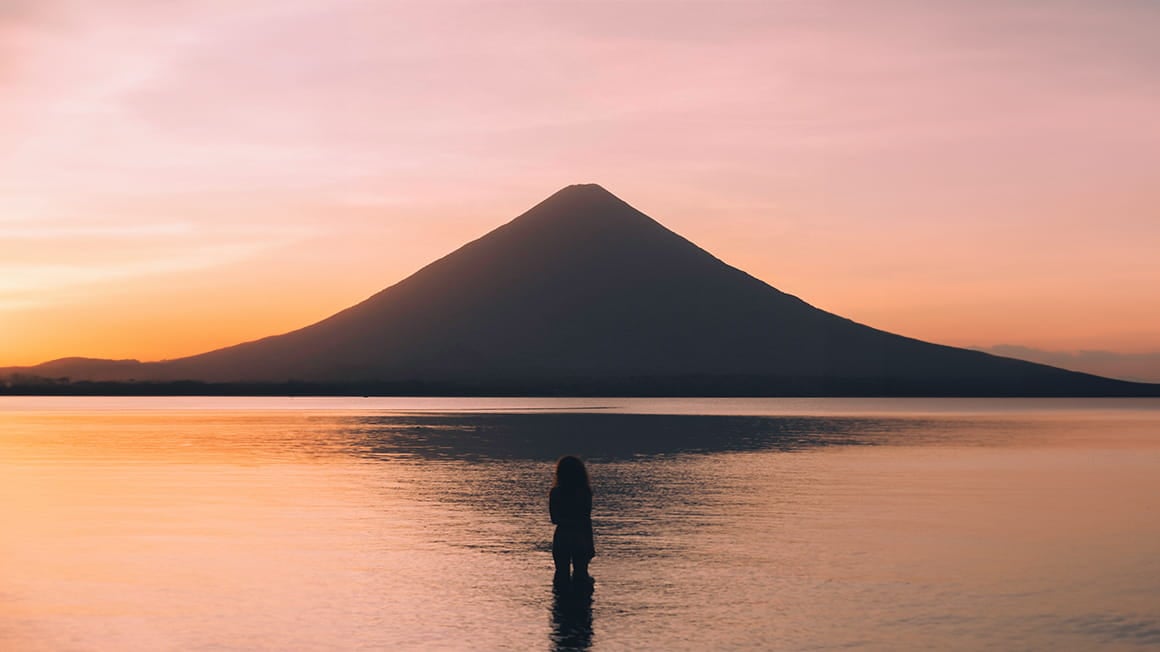
The Broke Backpacker is supported by you . Clicking through our links may earn us a small affiliate commission, and that's what allows us to keep producing free content 🙂 Learn more .

Unlock Our GREATEST Travel Secrets!
Sign up for our newsletter and get the best travel tips delivered right to your inbox.
How Safe is Nicaragua? (Our take)
How safe is nicaragua to visit right now, safest places in nicaragua, 25 top tips for traveling safely to nicaragua, how safe is nicaragua to travel alone, is nicaragua safe for female travellers, more on safety in nicaragua, faq about staying safe in nicaragua, so, is nicaragua safe.
- Buy Us a Coffee!
Backpacking in Nicaragua has always been very popular. The locals are welcoming, there are epic volcanoes to climb, beaches to laze on, the second largest rainforest in the Americas to explore, history abound; it’s a travellers’ paradise!
Sadly, Nicaragua has been experiencing a lot of turbulence in recent years. Due to the recent political Unrest of 2018, much of the country is difficult to visit. A lot of accommodation in Nicaragua has been shut down and citizens have been fleeing the country.
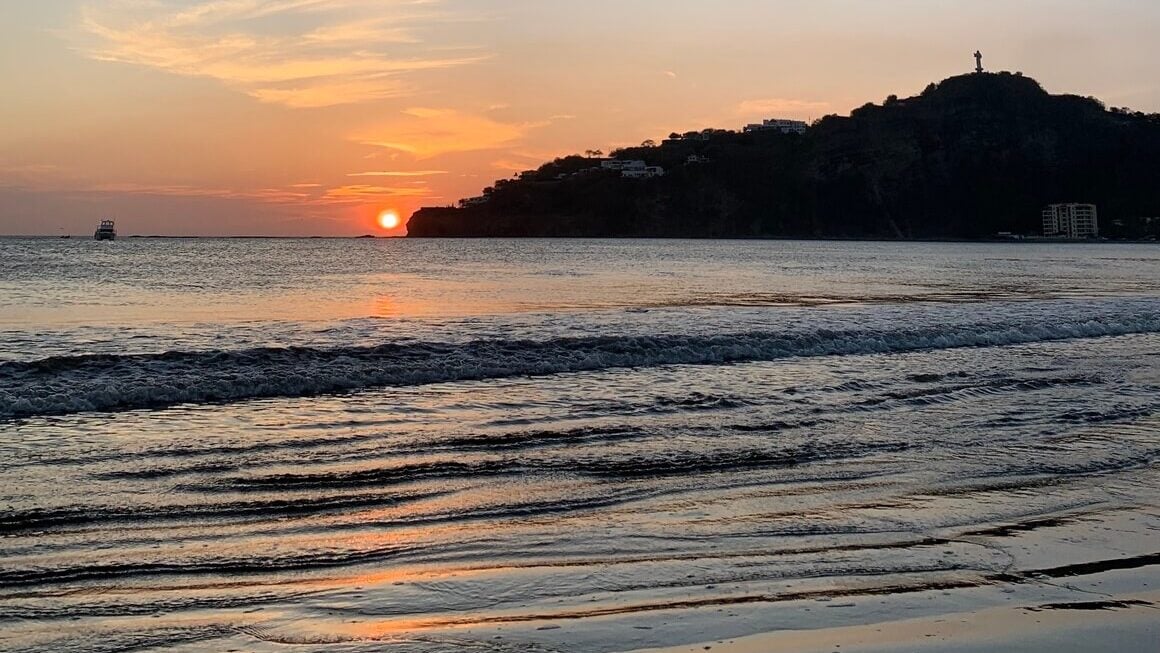
Petty crime is steadily on the rise (though it’s not out of control like in some other places in Latin America). Most people can still visit Nicaragua without getting robbed – they just have to be more cautious than usual.
Truth is: Nicaragua has always been an alternative destination for intrepid travellers, regardless of political situations. Neighbouring Central American countries, Costa Rica and Honduras, were always the more ‘touristy’ options and Nicaragua has always been the odd man out.
This has little to do with danger though and shouldn’t stop you from visiting Nicaragua! Nicaragua is still safe for tourists, within reason.
There is no such thing as a perfect safety guide, and this article is no different. The question of “Is Nicaragua Safe?” will ALWAYS have a different answer depending on the parties involved. But this article is written for savvy travellers from the perspective of savvy travellers.
The information present in this safety guide was accurate at the time of writing, however, the world is a changeable place, now more than ever. Between the pandemic, ever-worsening cultural division, and a click-hungry media, it can be hard to maintain what is truth and what is sensationalism.
Here, you will find safety knowledge and advice for travelling Nicaragua. It won’t be down to the wire cutting edge info on the most current events, but it is layered in the expertise of veteran travellers. If you use our guide, do your own research, and practise common sense, you will have a safe trip to Nicaragua.
If you see any outdated information in this guide, we would really appreciate it if you could reach out in the comments below. We strive to provide the most relevant travel information on the web and always appreciate input from our readers (nicely, please!). Otherwise, thanks for your ear and stay safe!
It’s a wild world out there. But it’s pretty damn special too. 🙂
This is a bit of a tricky one. While Nicaragua is not a country for first-time travellers, it’s definitely a great destination for experienced backpackers.
Tourism still is the most important service industry in the country. It was once a huge boon for the local economy, as poverty was stymied and jobs were created thanks to tourists. In 2018, however, it has been severely affected by political unrest.
Now? Many Nicaragua travel advisories warn against “all but essential travel” to Nicaragua. So whether or not you want to listen to these warnings is up to you. Only you, ultimately, can make the call of how safe Nicaragua is for you.
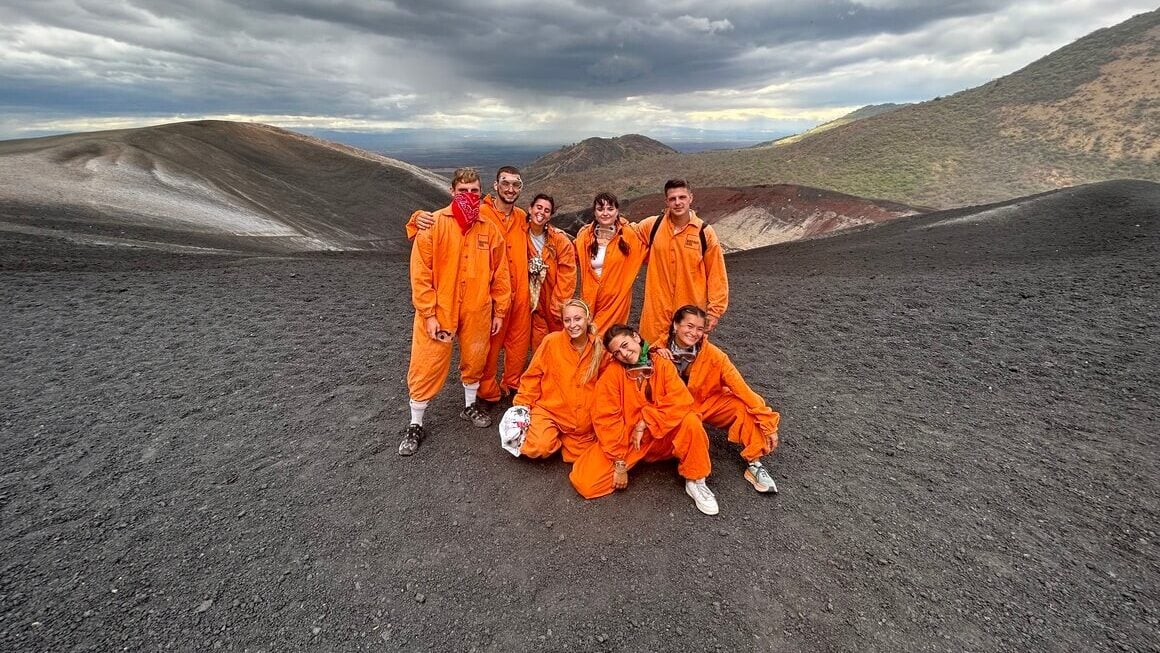
There has been some progress lately in Nicaragua’s safety and political situation, but it’s slow going.
Censorship of the media, especially when students are involved and killed, has been widespread. So has the dismissal of teachers. However, much of this doesn’t affect tourist safety in Nicaragua.
Managua Augusto Sandino Airport is still receiving international flights. Despite government warnings, people are still travelling to Nicaragua. A fair few backpackers have even been staying in Granada recently, as well as San Juan del Sur.
So is Nicaragua safe to visit in 2021? Yes, as long as you don’t get involved in politics and keep your wits about you. No one is targeting tourists (aside from the pickpockets) here.
Want to save money on accommodation?
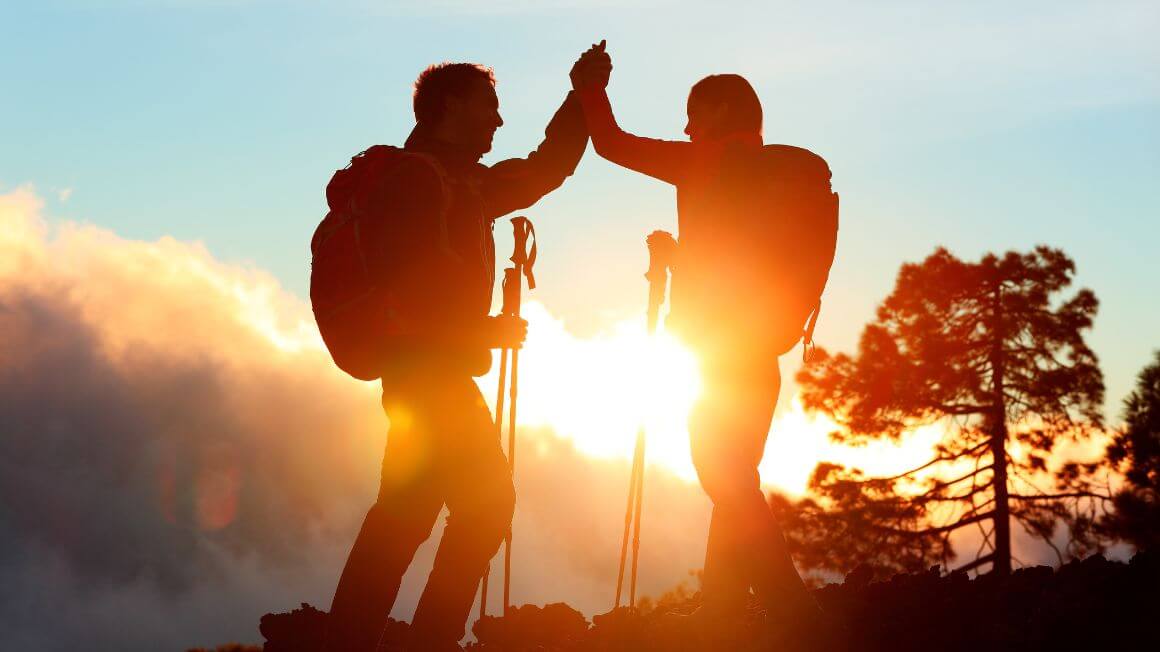
We got you. For reals.
When choosing where you’ll be staying in Nicaragua, a bit of research and caution is essential. You don’t want to end up in a sketchy area and ruin your trip. To help you out, we’ve listed the safest areas to visit in Nicaragua below.
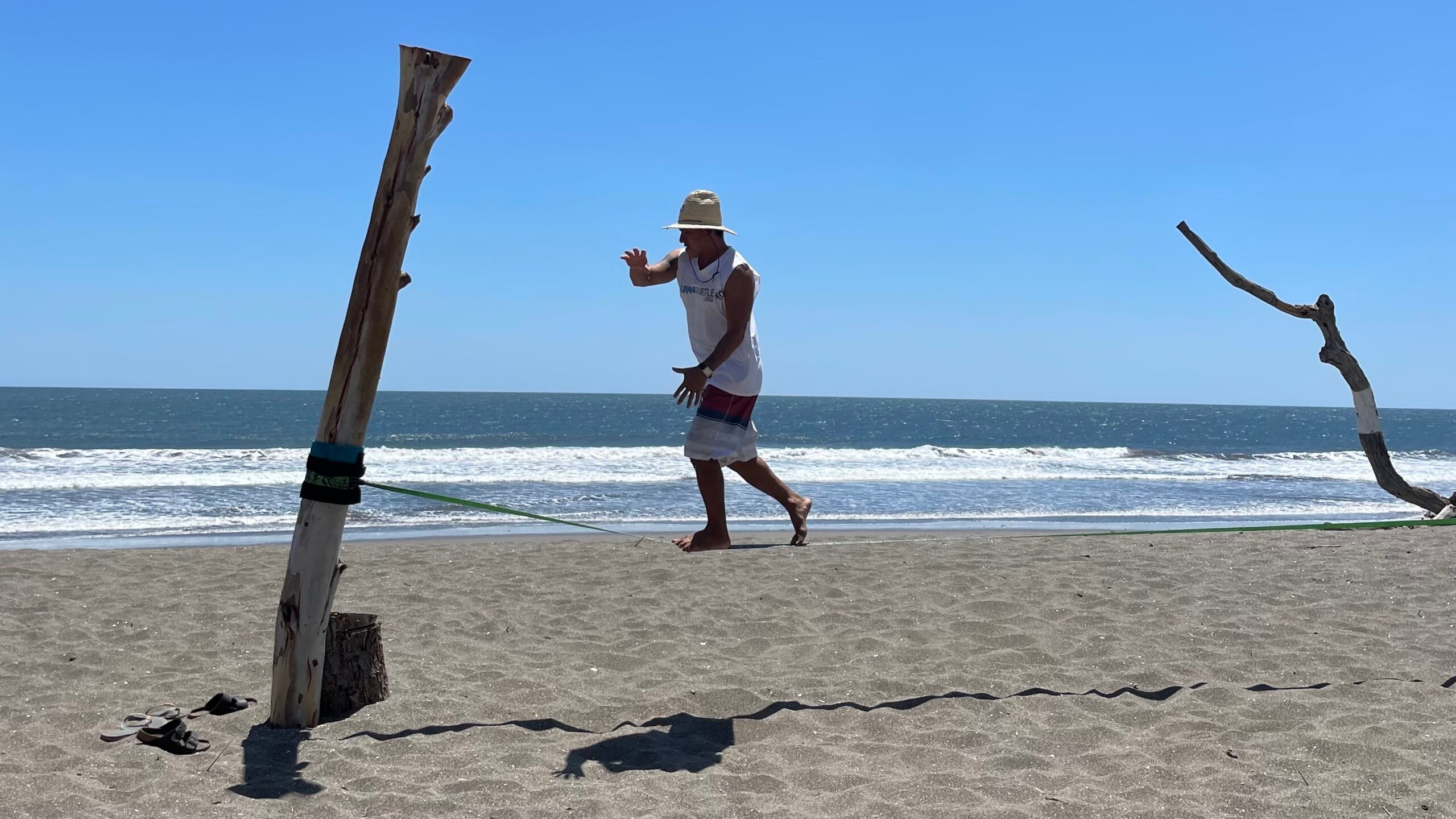
This stunning colonial city is a great place to get stuck. While it’s always been on the backpacker map, Leon is starting to really gain a lot of popularity as a must-visit destination while in Nicaragua. There are plenty of historical attractions to visit, and you can even find pretty cool nightlife here.
Make sure to check out the stunning cathedral in the main square, for just a dollar you can get right up on top of the whitewashed roof where you will be rewarded with stunning panoramic views of the city.
Leon is a little bit more laid back than other cities in Nicaragua, which also shows in the safety statistics. While you still shouldn’t be careless, it’s definitely less sketchy in Leon than elsewhere. However, we definitely wouldn’t recommend walking around alone at night. It’s just a risk that you can very easily avoid.
An easy hop from Leon by chicken bus, Granada is another colonial city with gorgeous buildings, vibrant nightlife and historical sites. You don’t need too long, perhaps just a day, to get a feel for this city but make sure you visit the cathedral and bargain hunt for hand-made souvenirs in the central square.
This picturesque lakeside town boasts charming cobblestone streets, friendly locals, brooding nearby volcanoes, and the beautiful yellow cathedral smack dab in the middle.
For any backpacker travelling through Nicaragua, you will find yourself in Granada at some point. With tourism on the rise in recent years, a boatload of hostels have sprung up all across the city and there are many eco-lodges on the small islands across the lake. Not only that, Granada has also developed a pretty solid infrastructure which makes it one of the safest cities to visit in Nicaragua.
Playa Maderas
A popular surfer hang-out, this is a good place to rent a board for a day ($10) and hit the waves. Most travelers backpacking Nicaragua want to have a crack at surfing and this is one of the best places to learn.
This beach is however normally pretty busy and the food is very expensive. Bring snacks. Likewise, it is an expensive place to stay although if you have a tent you can camp for free. We recommend turning right (as you face the ocean) and walking along the beach, over the rocks and onto the next beach to enjoy stunning views and clear water.
The next beach is completely isolated – it takes just two minutes to walk there but there are currently no buildings, whatsoever. It is pretty much like having your own private beach. If you’re there at the right time of the year, you may see baby turtles scrambling down towards the sea.
Places to avoid in Nicaragua
Unfortunately, not all places in Nicaragua are safe. You need to be careful and aware of your surroundings pretty much anywhere you go in the world, and the same goes for visiting Nicaragua. To help you out, we’ve listed a couple of no-go or caution areas below:
- Public transport stations – Pickpocketing is common at bus stations, on crowded buses, and in the markets
- Managua – Crime occurs in the capital Managua, old cathedral is a well-known crime pit, on Avenida Bolivar
- Rene Schick and Jorge Dimitrov – Gang violence is highly present here
- Zona Rosa – This area in known for prostitution. Ideally, stay away!
- Puerto Cabezas, Bluefields, and the Corn Islands – Street crime is pretty common here but can be avoided with a bit of common sense and caution.
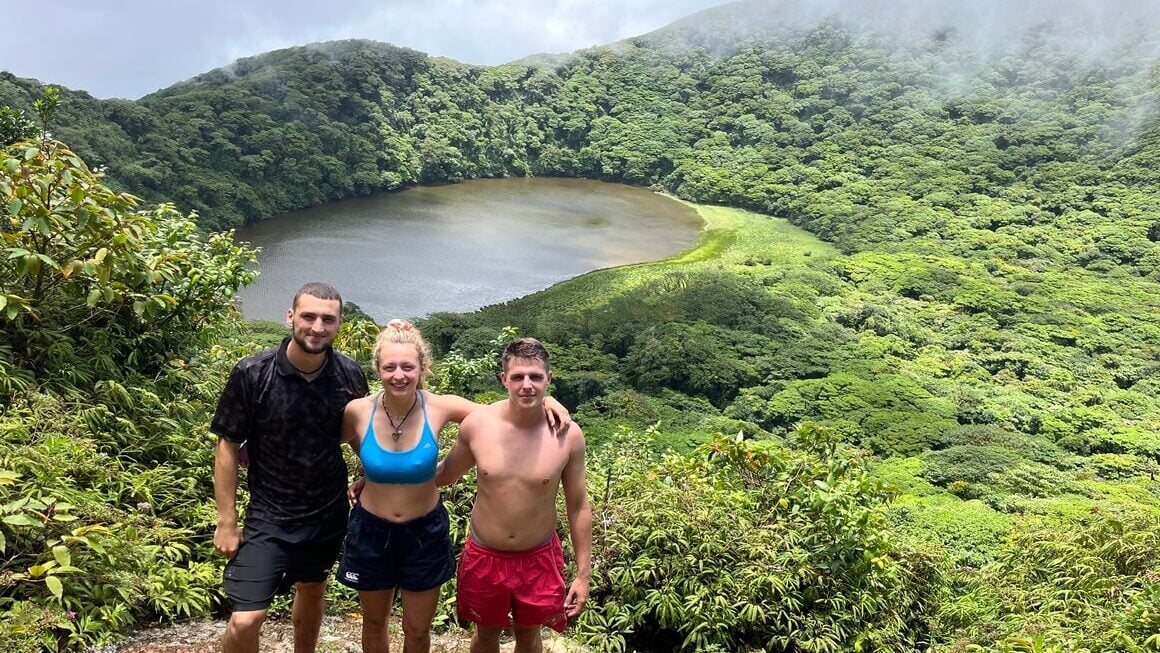
It’s important to know that Nicaragua is definitely not a super safe place, so a bit of caution and research before you start your travels will go a long way. If you want to increase your safety during your stay, read on for our insider travel tips. Stick to those and you won’t have a single issue in Nicaragua.
Nicaragua Travel Insurance
ALWAYS sort out your backpacker insurance before your trip. There’s plenty to choose from in that department, but a good place to start is Safety Wing .
They offer month-to-month payments, no lock-in contracts, and require absolutely no itineraries: that’s the exact kind of insurance long-term travellers and digital nomads need.

SafetyWing is cheap, easy, and admin-free: just sign up lickety-split so you can get back to it!
Click the button below to learn more about SafetyWing’s setup or read our insider review for the full tasty scoop.
If you’re not going to participate in protests or go near to cities, it’s more than reasonable to visit Nicaragua. In some ways, if you want a truly adventurous location where you won’t find many other travellers, this is the place.
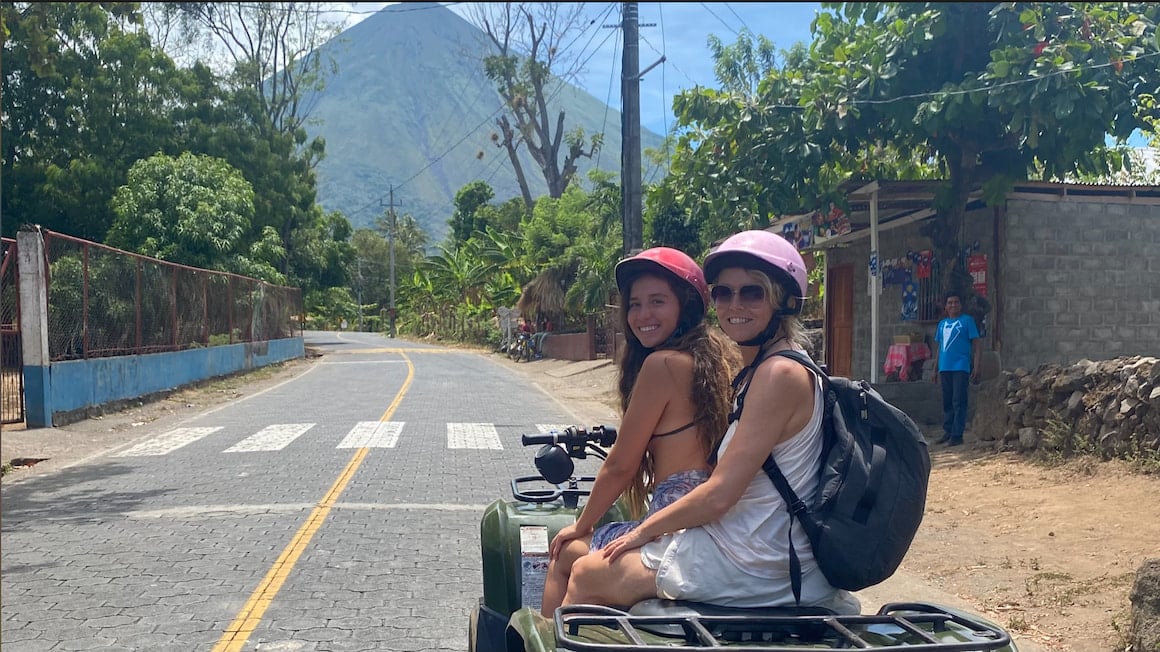
Granted, things are always up in the air – shit could hit the fan again or it could all calm down (which we hope it does). If you do decide to visit Nicaragua, here are some tips to help you on your way.
Nicaragua Safety Tips for Travelling Smooth
- Stay away from protests – DO NOT GET INVOLVED. Methods for crowd control sometimes include live ammunition…
- Know when to travel – Rainy season runs from May to November , which is when hurricanes hit, too.
- Get your Spanish on – Knowing some of the local lingo will help you to get around. It’s good for making friends, too!
- Keep an eye on your belongings – pickpockets, especially around bus terminals, are pretty active. Invest in a good money belt for ultimate protection.
- Use hotels and hostels with good reviews – 24-hour security helps; it just pays to stay somewhere amazing AND safe.
- Don’t walk around looking rich – Flashing cash, wearing jewellery, SLRs; this is pretty dumb and a good way to get robbed.
- Learn what to do during an earthquake or volcanic eruption – It’s simple, but it will definitely help.
- Don’t go ambling off the roads, especially in the north – Landmines still dot this area.
- Only change money at reputable places – Most likely you’ll be ripped off anywhere else.
- Lock car doors and keep windows closed – There have been reports of shady characters lingering around traffic lights in Managua.
- Be careful when you swim – The sea at the Pacific Coast has strong currents. Follow local advice and don’t go out too far.
- If confronted by a mugger, don’t resist – They’re often armed. This is when trouble occurs. Just hand it over.
- Have an escape plan – Let’s be honest, if shit hits the fan, you’re going to want to get out of there. Research, plan, inform others of your plans. Remain vigilant!
- Get yourself a roaming sim – Maps are helpful and so is keeping in touch with family. You can also use your phone to get live updates of ongoing situations in Nicaragua.
- Take a torch with you – For dark nights in rural areas. You don’t want to step on something that can bite you!
- And don’t travel at night either – This is a good time for criminals to operate.
- Stay away from drugs – Possessing any drugs can land you on the wrong, and we really mean wrong, side of the law.
- Don’t use drones – In fact, you can’t even bring them into the country. Say goodbye to the intro to your awesome travel video.
- Protect against mosquitoes – Cover-up, bring repellent, buy coils, whatever is best for you. These guys carry nasty diseases.
- Here be scams – Especially in Managua. It’s best to use the advice your mum told you: don’t talk to strangers.
- Watch out for children coming up to your table – it’s most likely a distraction. They’re there to pinch your cash and they usually work for a boss.
- Always use a good tour company – It might cost more, but it will be better and less dangerous.
- Don’t travel on Sundays (if you can help it) – Schedules can be completely out of whack.
- Pack yourself a medicine bag – Fill it with tablets and pills to keep diarrhoea and other illnesses at bay!
- On the subject, make sure you get relevant vaccines – No-brainer.
As intimidating as Nicaragua sounds, it’s still one of the safest countries in Central America. For solo backpackers, Nicaragua is a good choice.

Solo travel anywhere in the world is pretty rewarding, and it’s no less for travelling to Nicaragua alone. With the hope that Nicaragua can once again return to the peaceful place it was, here are some safe travel tips for Nicaragua.
Travelling to Nicaragua Alone – Tips and Pointers
- There’s a very decent selection of vibrant hostels in Nicaragua. Stylish, fun, and often boasting pools, these are also great places to meet other travellers. Just make sure it’s well-reviewed!
- Lend a helping hand. Get involved with a community project or a charity and give back to the country that you’re enjoying so much! There are loads of different organisations you can reach out to. Check out Worldpackers if you’re interested in volunteering while travelling.
- Learning some of the local language is going to really open up the country to you. And it’s not just normal Spanish, either – there’s a Nicaraguan dialect to get to grips with, and this will go down a treat.
- Book yourself on a tour. This is a good option if you want to get travel Nicaragua safely and without having to stress out. It’s also a very good chance to meet other travellers.
- Getting crazy drunk by yourself at night, either in a city or by the beach, is probably not a good idea. Alcohol is very cheap so you’ll probably want to sample a lot of it!
- On that note, know your limits. Whilst you think you may be fine wandering back by yourself, your judgement won’t be up to scratch. Taking risky shortcuts, hopping in the sea for a skinny dip, or simply getting lost, could end very badly. Especially if you’re alone.
Whilst it is possible to travel safely in Nicaragua as a female, solo or otherwise, it’s important to note that it is a male-dominated society. Sexual assaults against female travellers have happened, especially at beach destinations where everything seems safe.
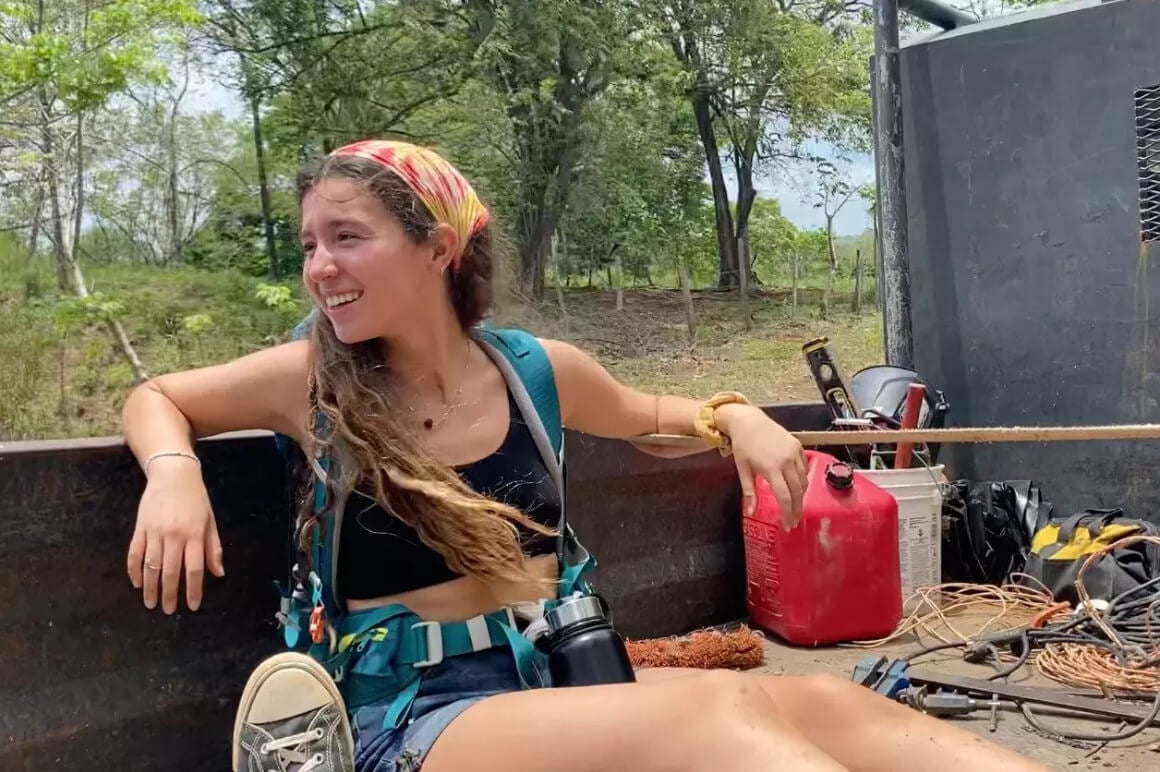
In the past, Nicaragua has been a popular place for solo female travellers. For those who are ready to re-enter the ring and travel to Nicaragua as a solo female traveller, here are a few pointers to bear in mind.
Travelling to Nicaragua as a Woman – Tips and Pointers
- Dressing appropriately and modestly is a smart move. Ok, so, you won’t have to worry about what you wear too much in a beach resort or a party hostel in Nicaragua. Elsewhere you should exercise some restraint and know that Nicaragua is still a fairly conservative country.
- Catcalls will happen because Nicaragua is a fairly macho society. Men may shout or say things to you as you walk by. The best course of action is to just ignore them.
- There ARE cases of serious sexual harassment. If someone follows you, head somewhere busy, into a shop, or somewhere that seems secure.
- DO NOT travel around at night time by yourself. Ever. For whatever reason.
- Buddy up! There are plenty of other female backpackers making their way travelling to Nicaragua. Not only is this good to actually make some friends, but is a good way to get travel tips from other women too.
- Walk around with someone else on the islands, beaches, and in broad daylight, regardless of if they seem safe or not. Deserted areas may feel beautiful, but Nicaragua can be dangerous when there’s no one around.
- If someone’s asking you about personal information, it’s best to be vague . Vague itineraries and vague life stories will keep you safe when people seem to be taking too much interest in you.
- The nightlife is fun in Nicaragua! You may be having a good time and the drinks may be flowing, but don’t let your drink out of your sight. Drink spiking could happen.
- On that note, getting stupid drunk could just lead to trouble, and this isn’t just talking about locals, but fellow travellers too. Stay vigilant – even other travellers can have bad intentions.
- If you want to learn more about local women and their lives, you can always get involved with an NGO. Nicaragua is a patriarchal society, and working with one of these could help you learn more about how the society works.
- You might want to make a stockpile of feminine sanitary products. These won’t be totally available throughout Nicaragua, especially away from the larger towns.
We’ve covered the main safety concerns already, but there are a few more things to know. Read on for more detailed information on how to have a safe trip to Nicaragua.
Is Nicaragua safe to travel for families?
There was a time when Nicaragua was a great place to take your family. The relatively low crime rate and incredible natural credentials made it an amazing place for a family holiday.
Obviously, at the moment, the political situation currently means that travel in Nicaragua isn’t as safe as it used to be though.
Before the unrest this year it was a fantastic ( and inexpensive ) family-friendly holiday destination. The country still offers great amenities to those with children.
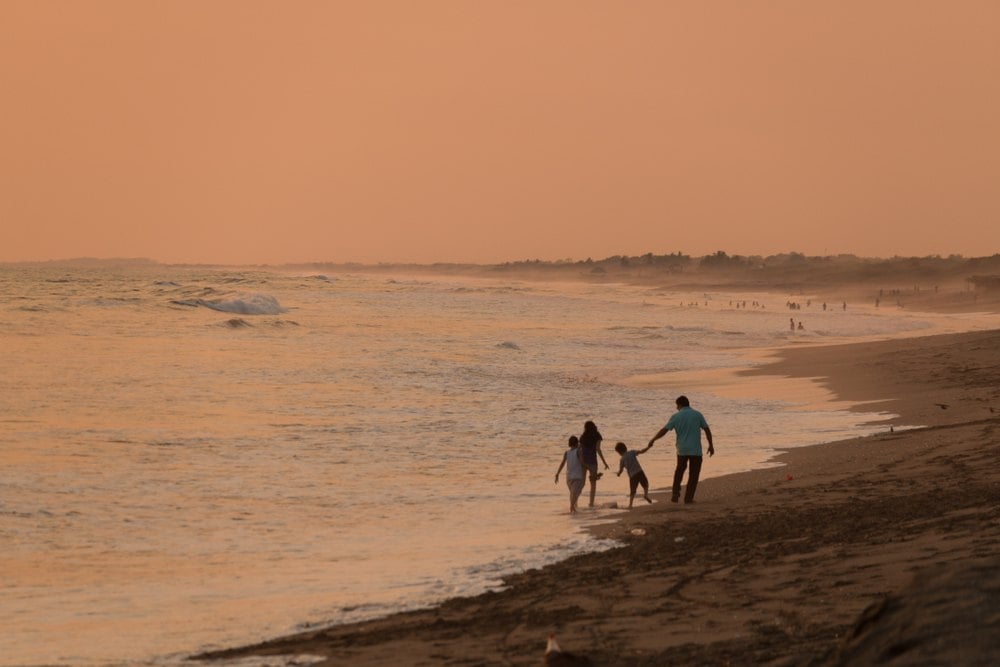
Family-based tourism in Nicaragua is still safe and mostly intact. There are some great hotels to stay at, homestays to enjoy, and a lot of local culture to soak up. Not only that but you can watch sea turtles nesting, play around in the surf, and/or visit indigenous peoples.
If you decide to travel to Nicaragua with your family, there are some things you will need first. You’ll need:
- Vaccines (obviously). Know what shots you need to go to Nicaragua.
- Protection against mosquitoes.
- To watch out for creepy crawlies like scorpions.
- Protection from the sun.
- Be careful when you’re at the beach – riptides are dangerous!
- Make sure your children stay away from stray animals.
The country has seen better days, but its attitude towards the family is still as strong as ever. It’s still fairly safe to go to Nicaragua for families.
Is it safe to drive in Nicaragua? Getting around Nicaragua.
Driving in Nicaragua is possible and people do rent cars and have an incredible time exploring for themselves. Driving is a good way to see what the Pacific Coast and Central Nicaragua has to offer.
Make no mistake, driving in Nicaragua is still an experience. You’ll have to deal with all the usual stuff and then some. Dodgy rental cars, potholes, drink drivers, lack of signs, animals in the road, no lights on highways: all of these make driving in Nicaragua not very safe.
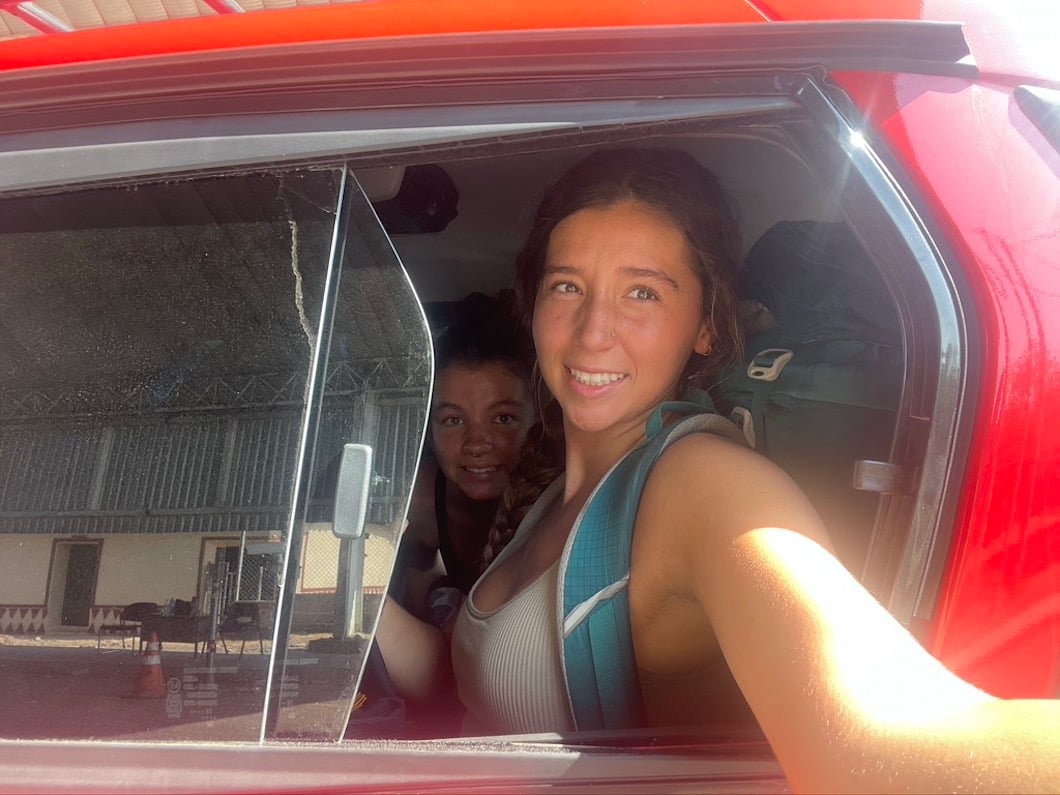
Not only that, but corrupt police might pull you over for a bribe. Use your judgement of the situation on this one.
Improvised roadblocks are all over the place and can pop up sporadically. They’re thrown up by locals and areas around these can be dangerous as police try to clear them (there’s often violence).
The barricaders themselves aren’t too interested in gringos , so don’t worry. There might be some dodgy people, but generally, barricaders are there for some political cause.
Even before 2018, we’d have said that driving isn’t safe in Nicaragua. Now? It still isn’t. Proceed according to your own abilities or get yourself a local driver.
Is Uber safe in Nicaragua?
The Nicaraguan government has refused permission for Uber to operate in the country. They don’t want to cause trouble for local taxi drivers, who are already on a low wage.
Nicaragua is an Uber-free zone, people. End of story.
Are taxis safe in Nicaragua?
Taxis in Nicaragua are not always safe. These can be very sketchy and downright dangerous.
Using a taxi is likely unavoidable though and, chances are, you’ll have to take one at some point in Nicaragua. While they may not be ideal to use, they are, unfortunately, your only option at times.
Most taxis in Nicaragua are shared taxis – this is common practice . If you don’t fancy sharing, make sure you agree on a solo journey and agree on the price before you get in. Don’t know Spanish? Write the number down and show it to the driver, but not on your phone!
Official taxis in Nicaragua have a red border around a white license plate. You should be able to see the driver’s company name, and the license plate itself should be clear, too.
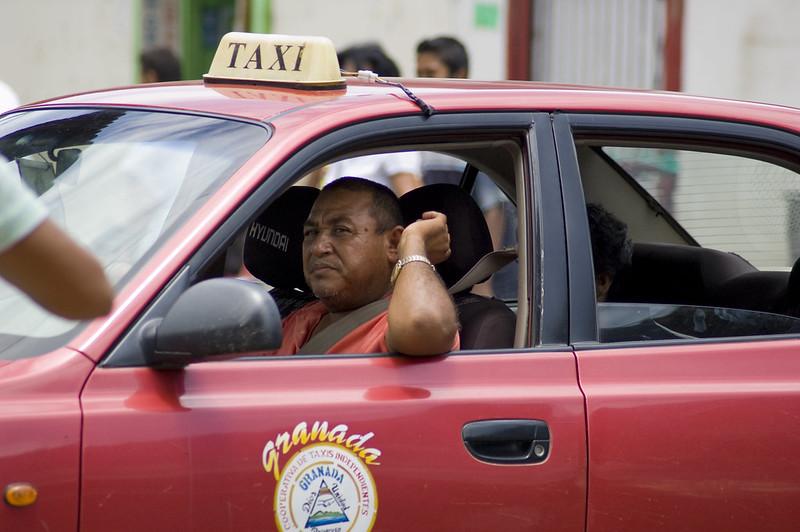
Lock the doors when you get in and hide your luggage. Make sure you have small change with you so you don’t hand over stupidly large bills just to get no change back.
Unfortunately, express kidnappings have been increasing recently. These are particularly common when leaving from the airport but can happen in cities as well. Usually, these start with a stranger asking if you need a taxi and end with you being forced to an ATM instead. Don’t listen to drivers that seem overly eager or forceful.
We recommend booking a taxi through your hostel. Get staff to book a cab for you and become friendly with the driver. If they seem like a good sort, use them regularly.
Taxis aren’t what we’d call super safe in Nicaragua, but as we said… sometimes you have to use ’em. It’s still the safest way to get around at night time for that matter.
Is public transportation in Nicaragua safe?
Most towns are served and connected by chicken buses – those colourful, old American school buses that cram everybody and their livestock on board. You know the ones.
If you’re not in a hurry to get anywhere and fancy a local (if uncomfortable) experience, we say use them! Just don’t take your eyes off your bag, and be sure to watch your pockets. Keep hydrated too, ’cause it can get very, very hot on these. (Did you remember a water bottle?)
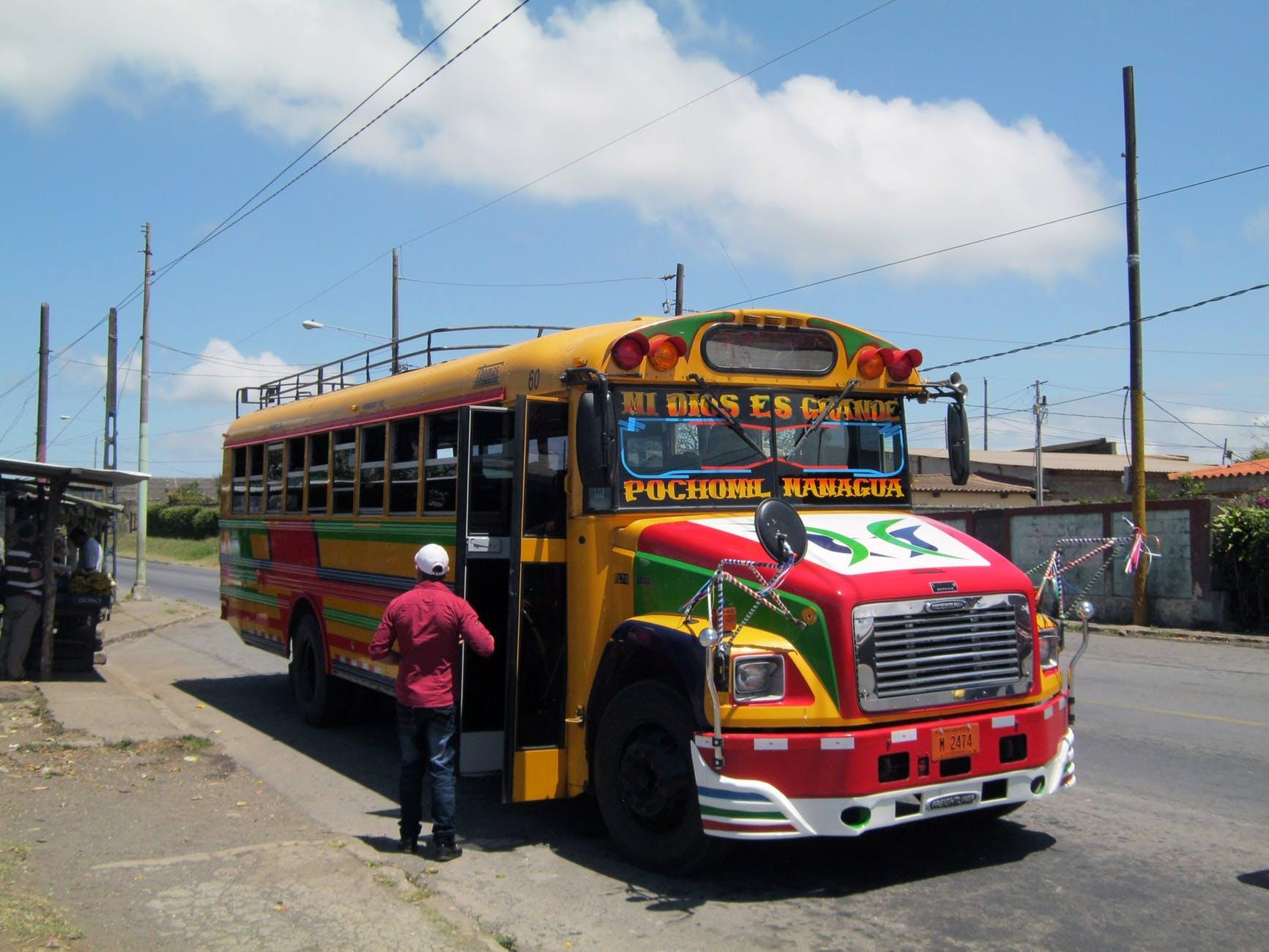
Then there are microbuses. These are smaller, faster, and more expensive than chicken buses. They leave only when they’re completely full and behave much the same as the chicken buses but in micro-form.
Bus terminals can be chaotic and overwhelming. Watch out for shady characters lingering around.
If you’re after more comfort and safety while travelling around Nicaragua, then opt for privately-owned minibuses. These are pretty luxurious compared to everything else – air-conditioned, pre-arranged through your hostel, and is more often a gringo -only experience.
Public transport in Nicaragua isn’t the safest but it’s still more than usable – many travellers do.
Is the food in Nicaragua safe?
Spanish, Indigenous, and Creole flavours mix in a tantalisingly tasty cuisine offering in Nicaragua. There’s heavy use of corn (of course) on the Pacific Coast, whilst on the Caribbean Coast, there’s seafood and coconuts galore.
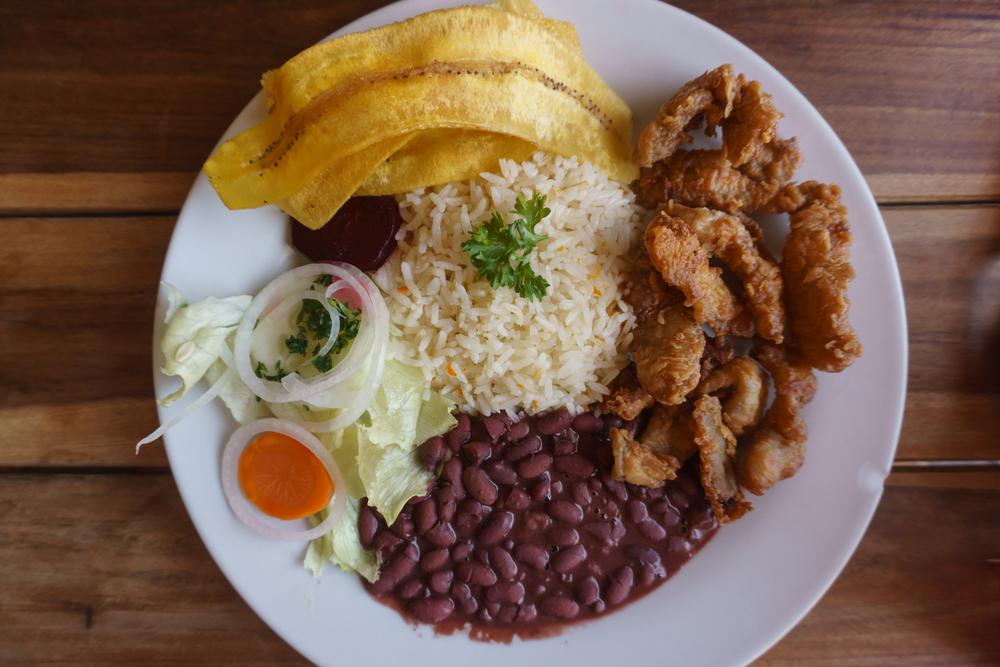
Keep clean, don’t be too greedy, and definitely use your common sense. In general, you should be fine eating your way around Nicaragua – especially if you’ve just come from somewhere else in Latin America . Even if you haven’t, you’re in for a treat. The food in Nicaragua is pretty darn safe… and delicious!
Eating Safety in Nicaragua
- Street food is where it’s at. But rushing in and eating literally everything is a BAD move. You’ll probably get sick.
- If you’re prone to a bad stomach anyway – or have a medical condition – that means your digestive system is a bit sensitive, then you may just want to take it easy in general. Bring rehydration sachets and diarrhoea medication.
- And when it comes to street food, look around. It may all look pretty good, but a rule for pretty much anywhere in the world is to go where other people are going. Busy places are good, especially if they’re more local.
- If meat, or any food for that matter, isn’t freshly cooked – and especially if it looks like it’s been sitting uncovered all day – don’t even bother.
- You may really want a smoothie because, no joke, they look amazing. But be careful of anything raw. Fruit, washed or unwashed, can be crawling with germs.
- Same goes for salads and vegetables. Peel, wash with sterilised water, cook, but don’t eat raw. A good way to get a bad tum.
- … And ice cubes? Could be tap water.
- Seafood is very popular here and it’s prepared in wonderful ways! It is probably best tried in a restaurant or the in-house eatery at your hostel/hotel/guesthouse. Eating seafood on the street is usually a bad idea and you’ll be asking for trouble if you do so.
- Wash your hands, forever and always. Or (and), sanitise.
- Traveling with an allergy? Research ahead of time how to explain your allergy (or just vegan). If you’re gluten-free, pick up a handy Gluten-Free Translation Card with descriptions of Celiac disease, cross-contamination risk, and local Nicaraguans ingredients in Latin American Spanish.
Can you drink the water in Nicaragua?
The water in Nicaragua is allegedly potable and safe to drink.
Many Nicaraguans drink the tap water, but you may get Traveller’s Diarrhoea if you try.
If you don’t feel comfortable, then don’t risk drinking from the tap. Stick to bottled water, or bring a refillable bottle and water purification tablets. Boiling water is always the surest way to eliminate harmful organisms.
A Grayl Geopress would also be a great investment as these are quite effective in the field. Seriously, filtered water bottles are the best.
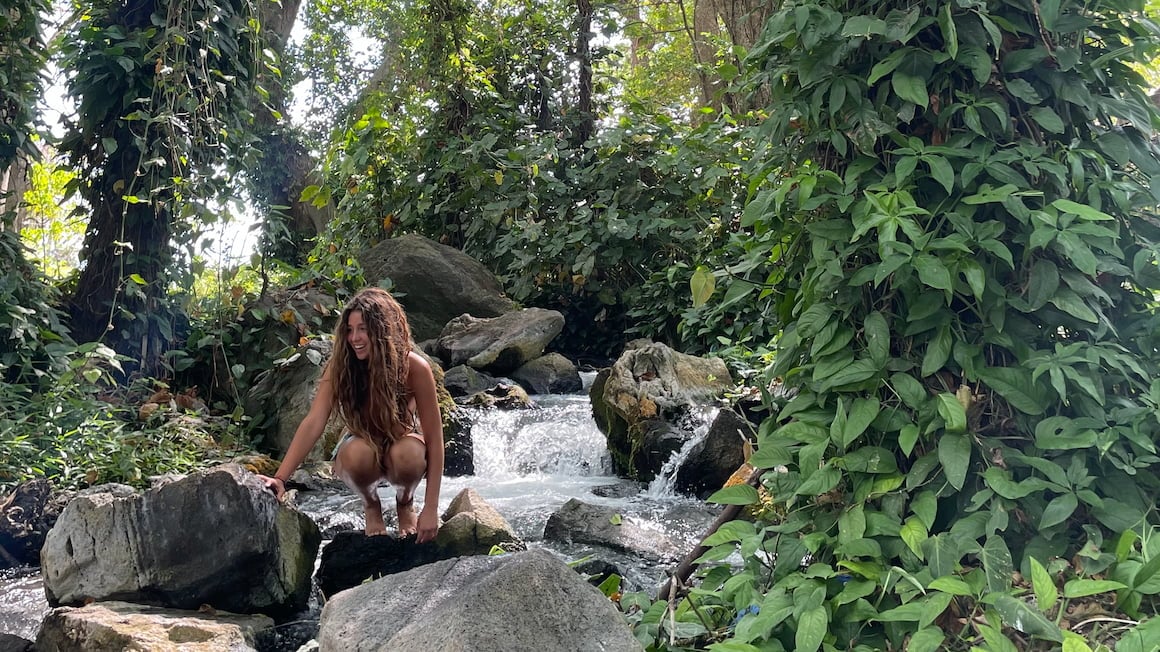
Is Nicaragua safe to live?
Many ex-pats end up living in Nicaragua. It’s safer than its neighbours, has a generally laid-back lifestyle, low cost of living, good food, and some amazing natural landscapes. If anything, it’s becoming an increasingly popular destination for ex-pats but there are aspects that mean Nicaragua is not safe to live in.
You’ll still be targeted like any other travelling gringo – that means petty theft and scams are still things to look out for. Trying your best to blend in, not being flashy, not shouting around in English; these things will help you live more easily in Nicaragua.
Learning Spanish is a must. Even if it’s just a little bit, learning the local language will help you get around.
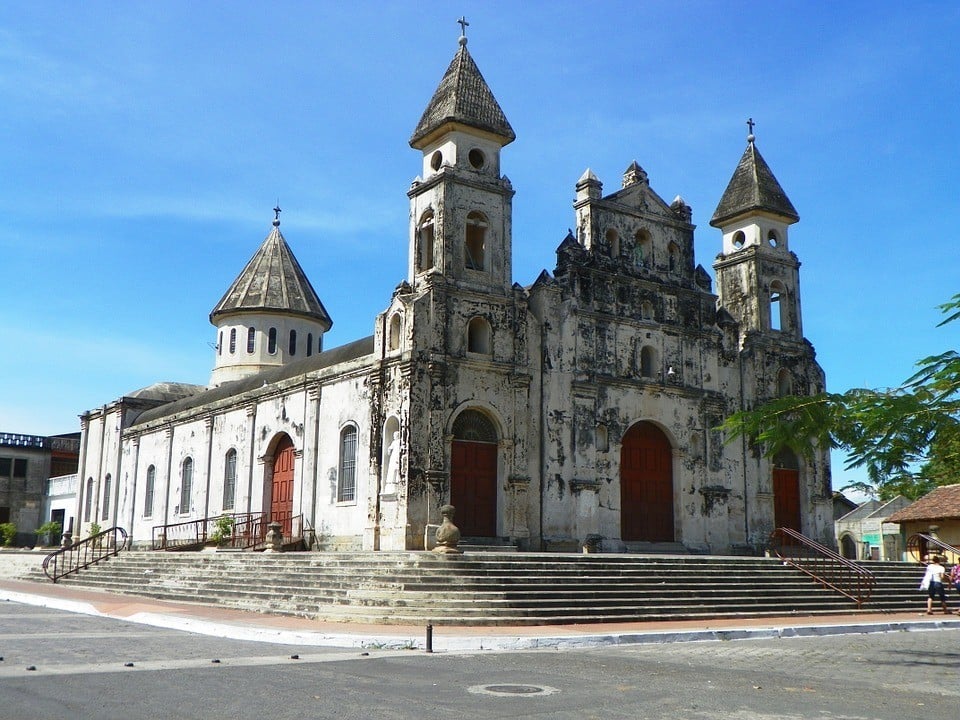
The urban infrastructure is inhibited greatly by the unrest. There’s often a shortage of fuel, frequent power outages, somewhat limited food supplies, and a heavily censored media. When there’s a big confrontation the internet gets shut off, the roads are blocked, and the paramilitary presence increases greatly. At this point, protests and even looting are usually on deck.
Living in Nicaragua, you’ll have to be ok with this instability. Living in Nicaragua has its pros and cons.
If you want to know more about the current situation, you really should do your research. At the end of the day, I wouldn’t say living in Nicaragua is safe but you may be of a different mind.

A new country, a new contract, a new piece of plastic – booooring. Instead, buy an eSIM!
An eSIM works just like an app: you buy it, you download it, and BOOM! You’re connected the minute you land. It’s that easy.
Is your phone eSIM ready? Read about how e-Sims work or click below to see one of the top eSIM providers on the market and ditch the plastic .
Is it safe to rent an Airbnb in Nicaragua?
Renting an Airbnb in Nicaragua is a great idea. Unfortunately, there are not an incredible amount of options, but the ones you are getting are pretty safe. Just don’t expect super high luxury.
And it’s perfectly safe, as long as you read the reviews. Staying at an Airbnb during your trip will also open up new possibilities and options to experience the country. The local hosts are known to take great care of their guests and give the absolute best recommendations of what to do and what to see. Local knowledge always goes a long way, so be sure to reach out to your hosts if you’re unsure about how to fill up your Nicaragua itinerary!
On top of that, you’ll stay safe with the reliable Airbnb booking system. Both hosts and guests can rate each other which creates a very respectful and trustworthy interaction.
Is Nicaragua LGBTQ+ friendly?
Nicaragua is fairly open to same-sex relationships. Keep in mind that it’s a pretty conservative country, so be aware of the culture and religion is a must. You can also expect quite a few stares and maybe one or two rude comments. However, you won’t face any other issues as an LGBTQ+ traveller.
Party destinations like San Juan del Sur are more open-minded thanks to a generally younger crowd and more travellers. If you’re worried about your safety, stick to these kinds of places!
Here are some quick answers to common questions about safety in Nicaragua.
Is Nicaragua safer than Costa Rica?
Nicaragua’s crime rate is slightly lower than Costa Rica, but the two countries are pretty much equal when it comes to safety. Costa Rica sees more tourists than Nicaragua which means there are more attractions and facilities that accommodate visitors, but Nicaragua’s untouched nature is far more impressive than Costa Rica’s.
What should you avoid in Nicaragua?
– Don’t get involved in protests – Avoid visiting during the rainy season (May to November) – Don’t look like a tourist or super-wealthy – Don’t underestimate the sea current
Is San Juan del Sur safe in Nicaragua?
San Juan del Sur is overall safe, especially during the day. The main concern you’ll have here is petty theft and pickpocketing. Avoid the beach at night and stay away from the dark side streets. In fact, don’t go out at night at all to add another level of security during your stay.
Is Nicaragua safe for tourists?
Nicaragua can be very safe for tourists if one uses their common sense and has been travelling around Central American countries before. As long as you stay away from protests, sketchy areas and keep an eye on your belongings and surroundings, you’ll be safe in Nicaragua.
Although plagued by petty theft and civil unrest, Nicaragua is still one of the safer Latin American countries you could choose to visit.
It’s an interesting one as well since it’s sandwiched between two of the most visited countries of Central America yet remains generally undiscovered by backpackers. Even so, the tourism industry is the second biggest in the country and it could be even bigger under different circumstances.
With the advent of some serious political trouble in Nicaragua safety has come into question and tourists have been opting to not travel here. At its worst, between May and November of 2018, hostels had closed their doors and tour companies stopped operating. Backpackers ARE starting to trickle back in, but the fact remains that the situation isn’t stable.
Is Nicaragua safe for travel? It’s like a bubbling pot. There’s a chance it could boil over but the tourist status changes thing, as it usually does Nicaragua is mostly safe for tourists provided you understand the political situation and the volatility of it.
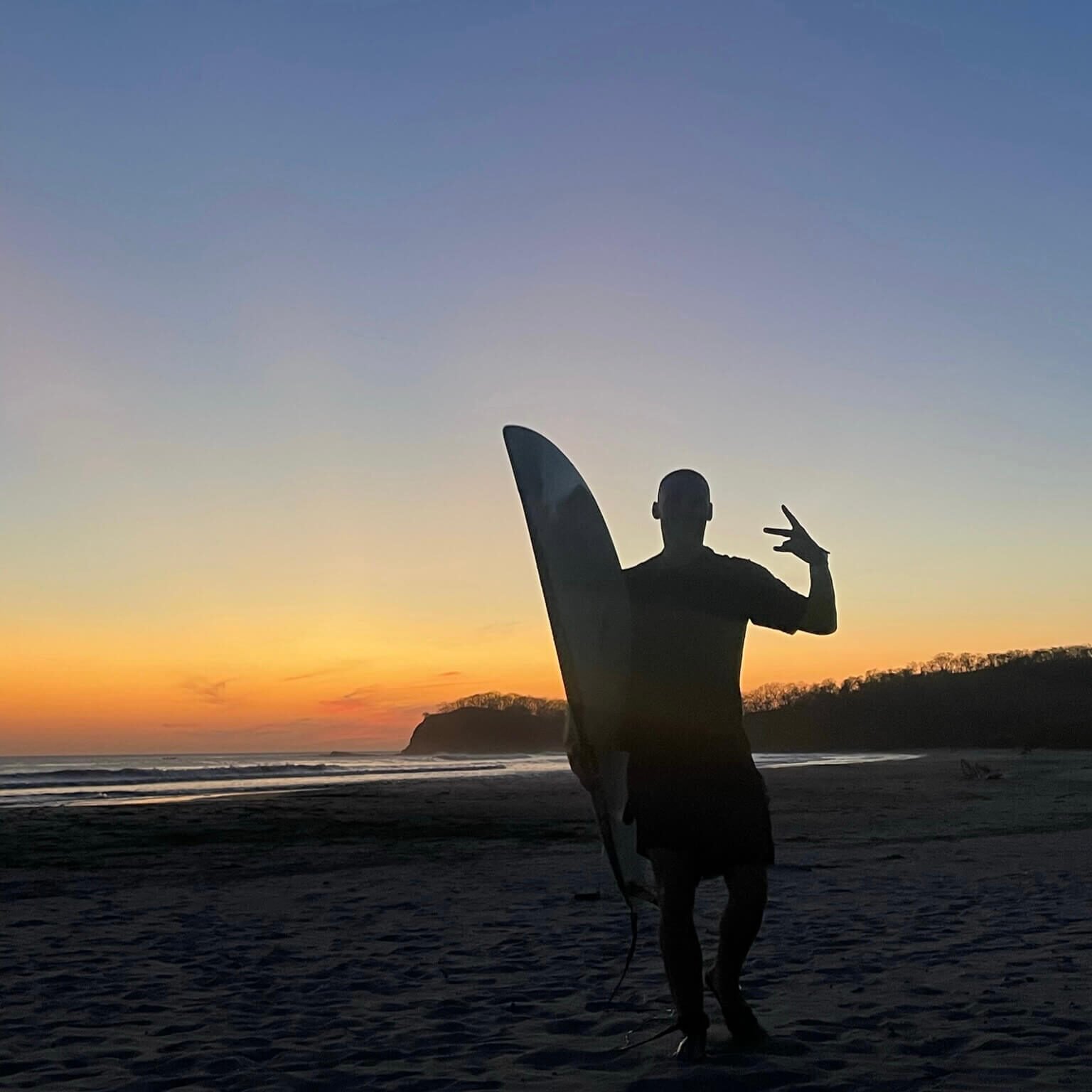
Disclaimer: Safety conditions change all over the world on a daily basis. We do our best to advise but this info may already be out of date. Do your own research. Enjoy your travels!
Buy Us a Coffee !
A couple of you lovely readers suggested we set up a tip jar for direct support as an alternative to booking through our links. So we created one!
You can now buy The Broke Backpacker a coffee . If you like and use our content to plan your trips, it’s a much appreciated way to show appreciation 🙂

Share or save this post
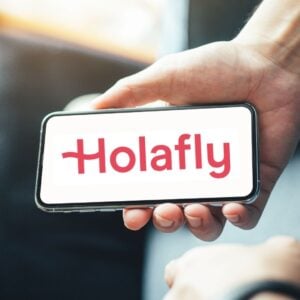
47 Comments
I’ve visited Nicaragua every year for 17 years, up until 2019. I agree that generally speaking, it is safe. There is a heavy military and police presence everywhere, and even the fast-food restaurants have heavily armed security guards at the entrances, replete with AR 15 assault style rifles. Getting stopped by the police in the countryside where a bribe was expected seems to have gone by the wayside, but it used to be a common practice. The Nicaraguan economy has been in a shambles since April 2018, especially tourism, when the government began its harsh repression of a popular uprising. There is now an uneasy calm, and the dictatorship of Daniel Ortega is firmly in control. He recently emptied the jails of many of his critics and political opponents, put them on a plane, flew them to Washington DC, and stripped them of their Nicaraguan citizenship. As Loz says, better to avoid any political activity in country, but don’t ignore the fact that the Ortga government is a corrupt, cruel, intolerant regime whose only allies in the world are fellow dictators. If you’re adventuresome, go, don’t take chances, and support Nicaraguan businesses. But don’t be politically naive.
The comment by the author that there is no Uber is correct – however, there are local Nica apps equivalent to Uber that work well (eg Aventon)
The white cathedral in León and it’s rooftop is GORGEOUS!
Of course it is safe. I’ve lived here for 5 years and have never been robbed or threatened in the street. And I’ve travelled all over from Ocotal to Chinandega to San Juan del Sur. The national highways are generally excellent, as good as European roads, and driving is generally safe outside Managua, providing you take care – motorcycles are by far the worst, ridden by youths who have no clue about road conditions and take chances. Taxis can also be badly driven. However, road rage is rare as Nicas don’t like violence and avoid it. The police do stop motorists, but it is quite rare to encounter a bent cop; if your papers (driving licence, insurance, road tax) are in order, they’ll let you go and even wish you a good journey. On the politics – don’t get involved and you’ll be fine. In any case, you wouldn’t get involved in the politics of another country, whether it be Argentina, Algeria or Australia, unless you come from there, so why worry about Nicaragua? Leave politics to the Nicas; it’s their problem, not yours. Just be a tourist and enjoy yourself – plenty of excellent beaches, restaurants, hotels – all perfectly safe.
Thanks for some great local insights, Loz!
I have spent months in Nicaragua starting in 2001 until 2012. I would NOT recommend travel. It is not safe. The writer of this article has presented the country with rose colored glasses. For as many wonderful people you will encounter, there are as many, if not more, waiting to take advantage of you. In more ways than you can imagine. I have been mugged there, have walked past the dead body of the town’s public official being brought out after being murdered, I have witnessed domestic violence, violence against strong local men who know what they are doing in their hometown, stumbled over children huddled on street corners in the middle of the night to stay warm together, seen people living surrounded by human waste and more. There is a charm about the country which seems to be humble yet kind, but again, for as much of this that you will encounter, there are so many people waiting in the shadows. I brought my sister with me on one trip and in the airport, before entering the fresh air of Nicaragua which smells of burning trash, someone leaned in and said right in her ear, “Trust no-one here.” A perfect stranger told her this upon arrival. At the time, I still had my rose colored glasses too. Do not be fooled, this is not a tourist destination where you can make yourself feel good about supporting a humble local economy, Nicaragua has become a dark and scary place.
Good insights. I’m contemplating expat status here. I’ll visit next month. I learned a lot.
Traveled their Jan 2017 before shit hit the fan stayed in Managua . Felt uneasy for the unfamiliarity in the middle of the night with and 11 and 14 year old. Arrived to destination and still a little uneasy. Once morning struck very friendly and accommodating at the hotel, resort, middle of no where it seemed. Waited for our pre arranged driver to take us to San Juan del sur. Arrived after breakfast showed us some sites offered a pit stop and a side attraction along the way and brought us to our door in San Juan del sur. Experienced a very welcoming people even though power went out and struggled to exchange currency we surfed and mingled. We met 1 tourist who had his camera bag and money stolen from the walking path but not in person he left it unattended ( not smart). Never felt unsafe walking through. We rented a vehicle and drive to visited Rivas markets and no problems. We carried on to Granada . We stayed 5 blocks from the squire in which the host infred of us areas to stay away and use caution. We ate at a local joint and felt safe but different as the kids explained it. Walked around met locals and even met people from our plane ride and expects who raved about the country. Someone even recommended a place to eat and bought us our meal. Completely uncalled for and unheard of back home. Seen him again later and bought him lunch. We were the only ones in our hotel as it was not as central but excellent hospitality. We still talk to our hostess to this day.
Felt very safe all around and talked about moving there one day. Unfortunately a hurricane devastated San Juan del sur and then government corruption hit. We ha e not expected anywhere but Nicaragua is not off the list. Cheers
Hey, thanks for a great article! I have been dreaming of going to Nicaragua for years and I really want to travel to the San Juan Del Sur area (at least) alone from Costa Rica in February. Not to sound conceited but I have to mention, I’m a typical Swedish blue eyed blonde in my twenties; would I stick out too much as a chela/gringa for petty criminals? Also, I have never travelled alone before and Mexico is my main Latin America experience as well as having only very basic Spanish.
Could I go to a resort alone to ensure safety? Also, I don’t drive and would have to cross the border on foot, has anyone done this? What is the experience like, tips etc please?
Yes you will stand out and yes you will get a lot of attention. However, whether that attention is from criminals or in any way negative I am less sure of – I met Icelandics traveling across the country and they had a wonderful time. Basically, follow all of the precautions we have set out and keep your wits about you.
Nicaragua still is the safest country in Central America, including Costa Rica. Friendly people and beautiful nature are big assets, don’t miss the beaches!!!
I am an Alabamian who visited Esteli in Feb ’20 for a cigar factory tour. I promised myself that when I was financially able to exit the US, Esteli would be my home for at least 4 years. I was awarded disability in spring ’20 and drove to Esteli from Birmingham in Nov ’20. I had 2 corrupt police issues in northern Mexico. I made sure I was in a hotel before nightfall except for Guat City, Guatemala, where evening traffic was a crawl, but no danger issues. I got off the highway and found a taxi and asked him to escort me to a hotel for a pre negotiated fee. We arrived and I paid him. He was very nice. I learned to say Disabled Veteran former Military Policeman in Spanish, and had no law enforcement problems along the way (after N Mex). I have filed for permanent residency and the government has been accommodating all through the process. The car gets a few looks, too, as well as the Alabama license plate. Can’t get local plates until I am approved for residency. The city isn’t too big nor small. It’s great. No regrets.
Hi Long Ash
I’m delighted to learn that its working out for you. I hope your enjoy your time there.
To Ana, and Maribel Ruiz…thanks to you both for your contributions. Although it is not impossible to visit my beloved Nicaragua right now, nether is it advisable. There simply are too many unknowns, primary of which is what you’d do if you became seriously ill while there. Never make an international journey, without comprehensive travel insurance with good coverage in the event of your needing to be evacuated for medical reasons. It will take some time for tourism to become re-established there, but waiting is the more prudent course right now. Think 2022, at the earliest. A small language comment for Maribel: “Petty” crime vs “pretty” crime. ( Maybe a typo.). Pretty = linda in Spanish. ” Petty” in Spanish would be something like ” sin importancia”, or ” menor”,thus something like being pick pocketed would be a petty crime (but horribly inconvenient!) as opposed to violent crime, such as rape, assault, murder, etc. Much worse! And there is almost no violent crime in Nicaragua directed against foreigners, that I have ever heard of in 17 years travel there.
My cousin (Afro American) has been living in Nicaragua for past 2 years as a single woman up until recently…Her boyfriend who is a security guard, now lives with her in a 2 bedroom apartment for approximately $200/ a month! She is 70 but looks GREAT for 70! Her boyfriend is much younger than her.Thus us the trend there…older woman,younger man.Why?…There was a War some years ago & alot of the older men were killed!!! Last month there was a water shortage in her local.A water truck distributed Water to the local.She & her neighbor she water from a large water tank. Recently, my cousin visited her on his annual vacation. I have yet to hear from him about his visit…so I cannot speak on it. The weather is hot & sometimes it rains for a whole week. I do not have a desire to visit there as I look forward to visit Ghana with a tour group, Kenya & Malawi.I have an Aunt & Uncle living in Malawi.
As much as I resist myself from writing good reviews that may favor the Nica government. I am a Nica and yes you may travel and yes it’s safe, but please, please be aware of danger and use your head avoid crowds, avoid conflict go fishing go snorkeling go horse back riding eat the food and set aside a day and pamper yourself go to a good barber or beauty shop and get pampered. But always be smart!! Go to Chinandega there is plenty to do!!!!Contact me!!
I’ve visited Nicaragua each year for the past 17 years. However, for the first time since 2004, I am not going in 2021. I am in touch with friends in Managua, Granada, Leon and elsewhere. Things are calm there. The repressive government will not tolerate demonstrations. Petty crime is always an issue. Violent crime against foreigners is very rare. Tourism is indeed dead, and many hotels and restaurants have closed. Those that are open rely almost exclusively on Nicaraguan nationals, a very limited pool. Many international sources advise against travel now. There is no COVID 19 vaccine available there yet. The government has hidden the number of COVID deaths. Hospitals are over-crowded, public health care is poor. Also, almost no one in Nicaragua speaks English. The “guide” in the article is next to worthless. Nicaragua needs tourism, but think 3 times before going this year. The risk is too high. Nicaragua is a wonderful country. But think 2022, at the earliest, in my judgement.
Nicaragua beautiful country with Lakes and volcanoes, sadly the government has repressed the people, tourists can visit the country with the precautions of pretty theft and even problems from police, who can fine you with out reason. Many criminals are armed, the government let them out from prison in the revolution event of 2018. The military armed paramilitary, and now these are armed criminals too. #SOSNICARAGUA.
Is the drive from Liberia airport to Playa El Coco safe for a single young woman…in a taxi?
I would like to travel in Nicaragua….
Come on down!!! The country is safe to travel in. Just use common sense: Use the same precautions you would use anywhere in North America or Europe. Don’t carry any recreational drugs while travelling. (Even as small amounts are generally overlooked… better safe than sorry.) Don’t flash your cash etc.
If you wish to have more detailed info, leave a message here and I’ll find a a way to get in touch with you directly. If you decide to come and visit, you will LOVE it here.
Can we talk more about it? I’m kind of scared of going to visit.
I am planning to come to Nicaragua very soon and stay for two months. I will be coming with my girlfriend. My only real question is about safety.
looking for to retire in Nicaragua, Granada at the age of 70
Right, The cathedrals and architecture are mostly eyesores in my opinion. But great country to visit, great people, and great wilderness.
Is Nicaragua safe? Broad question. It is possible to travel without incident but crime is not a new thing.
Saying that Nicaragua is ‘back to normal’ is irresponsible and false. Nicaragua will not recover from 2018 anytime soon.
What people need to understand is that the socioeconomic climate has shifted and regressed decades and it DOES affect tourism deeply.
It’s expensive and people are desperate. Yes, you can visit but don’t expect anything near 2018 and before. Local estimates point to a seven to ten year recession. Good luck
what does ” deeply ” mean? lack of transportation, dangerous gangs on the highways and cities? lack of accommodations? food supply, medicines? vagueness doesn’t help me decide what or when to visit. is the ” deeply affected ” areas widespread or localized in Managua/Leon ? I want to visit for 6 months in the San Juan del Sur area. is that ok? sometimes recession means lower prices. thanks
where would you recommend? costa rica is expensive, panama more so, el salvador, honduras, guatemala, mexico, all bad. so , basically, All of central america is off limits to affordable tourism, long stays, travel ,etc.? oh yeah Belize,
I can’t beleive what I’m reading here! I just came back from my 5th trip to Nicaragua, 2 months each time. It’s safe, inexpensive & quiet. I’m a woman, travelling alone & never had problems of any kind. Poeple are so helpfull & nice. In fact, it’s even less expensive than before the “problems” (April 2018). Even airlines tickets went down: I paid 471 $ cad with COPA & already booked for Feb for the same price. And reading that the taxis are unsafe & dangerous ?!?!?! Come on! I go all around the country each time, using the local bus, local taxis, eat local food & stay in local hostals. I really wonder if the autor has even been to Nicaragua ? Or did she stay in an all inclusive remoted 5* hotel & just repeats what she heard about the real life in Nicaragua ? Sorry to read that because yes, poeple are suffering from the lack of tourism but they are not desperate, as M. Alvarado says. So yes, GO to Nicaragua. You will be surprised & amazed. This country has so much to offer…. Have a nice trip!
Well Monica, you make it sound like the streets are paved with gold. Everyone has a different experience.
I actually live in Nicaragua and I would love for things to be different. The fact is tourism is dead.
Is it safe? By Central American standards it’s better than Honduras. Is it enough for less seasoned travelers than yourself? Questionable.
Tourism is a fickle industry; hard to make assumptions for other people.
I’m glad you had a nice stay, but this doesn’t change the fact that tourism in Nicaragua is a hard sell at the moment.
I really don’t believe this story is about the tourism industry. It is about general safety for travelers and visitors to Nicaragua. I also feel the author has spent very little time on the ground and travelling by means other than a rental car. If you commit a traffic infraction, expect to get stopped like in any other country. I travel at least once a week from SJDS to Managua. Unlike most people, I like to travel at night. Less traffic and quicker trips. I get stopped by the police a least once or twice on each trip for routine stops. I have no problem with that as the officers are courteous and very professional. I am glad they are out their doing their job. Also, the asking for “Tips” by the officers has virtually disappeared. I have lived here full time for over 16 years. The country is safe for anyone to visit. Just use common sense and you’ll be just fine. I certainly feel safer here than in just about any city in North America. So come and visit, enjoy Nicaragua and its people. You may just decide to stay….
Thanks for the input J.S!
I am so happy you wrote this comment because I plan on going in June 2020 and when I read the article I second guessed the entire trip
You are supporting and helping the people of this beautiful country by going! They should not suffer due to their government! Amazing and beautiful place! Little Corn Island is an absolute paradise fyi!
I absolutely agree! Nicaragua is an incredible place, and the people even more so.
I’m going soon, glad I saw the comments at the end as I was thinking of cancelling.
Hi Jim, I’m replying here cause the comments collapse weird on mobile.
You ask how deep the crisis is, I will say it’s safe for you to continue with your plans with some caveats:
Nicaragua used to be affordable. Even cheap. That’s the main problem. After 2018 inflation went above every Central American nation. This affects everything, from the price of a donut to an airplane ticket. Look it up.
Also, because of the unrest, society has become very insular, distrusting of each other and foreigners and especially the government.
Third, the services and hospitality industry has collapsed and this creates speculation at every level of the economy. Normally this would result in savings but, like the Airlines, they need to charge more money to fewer visitors as before to make ends meet.
Can you travel without incident through the country? Well, besides obvious hot spots as Managua, Masaya and Ometepe which have gained a bad status, yes, you can travel safely.
Going to SJDS will probably turn into a pleasant experience for you especially if you’ve never been there before and have no reference point. So enjoy your trip!
Thanks for your insights.
Even if it is the safest among many dangerous countries why would you want to support a government/country that has treated its own people so unfairly. Support other countries with just as much to offer tourists.
Hi Dolores. Our hope is always that we’re supporting the communities in countries like Nicaragua that benefit from tourists. We don’t support oppressive governments, but we also don’t recommend boycotting these destinations because communities take a much bigger hit than their governments.
This is a good point. The money we spend there can be better spent elsewhere with better results. Besides everything is crazy expensive in Nicaragua right now.
Great page but way out of date with lots of incorrect information. Nicaragua is back to normal and is by far the safest nation between Mexico and Columbia. The failed attempted coup ended in July 2018 and there have been no major killings or protests since. I am a United Methodist Missionary who lived in Nicaragua for 31 years – my kids and nieces and nephews and sisters in law are still there and I go at least three times a year. The people are incredibly nice and helpful, the beaches are gorgeous as are so many other areas. Managua has improved by leaps and bounds with good restaurants and hotels in every price category, markets, malls and lots to do downtown which was destroyed in the 1972 earthquake.
We are starting to hear from various sources that Nicaragua is indeed safe again. It’s good to hear this too as we love visiting the country.
Thanks for sharing this with us.
thank you for this info. we are planning to spend a month in Granada, and truly look forward to a wonderful experience
Very captivating and unexpected, as I’ve been to Nicaragua some 30 years ago I’m now in
Really, What beautiful cathedrals? They are eyesores…
Leave a Reply Cancel reply
Your email address will not be published. Required fields are marked *
Save my name, email, and website in this browser for the next time I comment.
Notify me of followup comments via e-mail.
- Skip to main content
- Skip to "About this site"
Language selection
Search travel.gc.ca.
Help us to improve our website. Take our survey !
COVID-19: travel health notice for all travellers
Nicaragua travel advice
Latest updates: Health – editorial update
Last updated: September 9, 2024 16:08 ET
On this page
Safety and security, entry and exit requirements, laws and culture, natural disasters and climate, nicaragua - exercise a high degree of caution.
Exercise a high degree of caution in Nicaragua due to the political situation, the potential for civil unrest and crime.
Back to top
Political situation
The political situation is volatile in Nicaragua. The country has experienced periods of political unrest since April 2018, resulting in hundreds of deaths and detentions.
Since the 2021 Presidential elections, Nicaraguan government officials and law enforcement have severely repressed those critical or opposed to government policies. According to UN reports, Nicaraguan authorities:
- undertake arbitrary arrests and detentions
- censure media
- prevent certain individuals from departing Nicaragua by air or land for political reasons
- arbitrarily seize and search private property, including personal phones and computers for anti-government content
- arbitrarily charge individuals with terrorism, money laundering, and organized crime offenses for political reasons
If you are in Nicaragua:
- refrain from discussing the political situation in public or online
- avoid all political activities
- avoid posting information on social media
The ability of the Embassy of Canada to Nicaragua to provide consular assistance may be limited in some circumstances.
Petty crime
Petty crime, such as pickpocketing and purse snatching, occurs. Crime against property, such as house and car burglaries also occur frequently.
- Ciudad Sandino
- León
- in remote areas such as beach communities on the Pacific coast
- in the North Caribbean Coast Autonomous Region
In Managua, the following neighbourhoods face very high levels of assault and robbery incidents:
- Mercado oriental
- Reparto Shick
- Jorge Dimitrov
- Ciudad Belén
- Américas 1 y Américas 2
- Barrio Camilo Ortega
In these areas, thefts from cars have occurred while drivers were waiting at red lights with open windows. Thefts also commonly occur in:
- popular tourist areas
- bus terminals, train stations and airports
- hotel lobbies
- restaurants, including patios
Border areas also often see higher criminal activity and violence. Criminal gangs are more active in the border areas with Costa Rica and Honduras. Generally, the police are understaffed and lack resources.
While travelling:
- ensure that your belongings, including your passport and other travel documents, are secure at all times
- don’t keep your passport and other types of ID in the same place and carry a photocopy rather than the original, including the Nicaraguan entry stamp
- be aware of your surroundings, particularly in crowded and tourist areas
- avoid showing signs of affluence or wearing expensive jewellery
- avoid carrying large sums of cash or unnecessary valuables
- avoid deserted areas
- avoid walking alone at night
- choose well-secured accommodation
While driving:
- avoid picking up hitchhikers
- keep your windows closed and doors locked at all times
- keep your belongings out of reach
- never leave belongings unattended in a vehicle, even in the trunk
- use secure parking facilities, especially overnight
- don’t stop to change a flat tire in an isolated area
- be aware of strangers offering their help
- use the official border crossings only
Violent crime
Violent crime, including murders, armed robberies and sexual assaults, occurs although difficult to assess and likely under reported.
Most violent incidents are organized crime-related or politically motivated. Paramilitary forces and para-police, which are armed civilians in plain clothes, have committed exactions against citizens. Assaults mostly take place in major cities but sometimes also in rural areas.
Foreigners are rarely targeted but you could find yourself in the wrong place at the wrong time.
Express kidnappings
Express kidnappings, where kidnappers demand small immediate ransoms, have occurred.
Kidnappers usually take the victim to an ATM and force them to make a cash withdrawal. The victim is sometimes held overnight for a second withdrawal the next day.
Criminal taxi drivers sometimes use this ploy.
- Only use reputable taxi companies
- Avoid hailing a taxi on the street
- If you are threatened, do not resist
Demonstrations and civil unrest
Demonstrations and civil unrest may occur.
Nicaraguan law prohibits political activity by foreigners. Participating in demonstrations or promoting dissent, including on social media, may result in you being detained or deported.
Even peaceful demonstrations, although infrequent, can turn violent at any time. They can also lead to disruptions to traffic and public transportation.
- Avoid areas where demonstrations and large gatherings are taking place
- Follow the instructions of local authorities
- Monitor local media for information on ongoing demonstrations
Mass gatherings (large-scale events)
Credit card and ATM fraud occurs. Be cautious when using debit or credit cards:
- cover the keypad with one hand when entering your PIN
- pay careful attention when your cards are being handled by others
- avoid using card readers with an irregular or unusual feature
- use ATMs located in well-lit public areas or inside a bank or business
- check for any unauthorized transactions on your account statements
Overseas fraud
Women’s safety
Women travelling alone may be subject to some forms of harassment and verbal abuse.
Local authorities may not regard harassment as unlawful unless physical contact or explicit threats are made.
Advice for women travellers
Water activities
Coastal waters can be dangerous, especially on the Pacific Coast. Riptides are common.
Rescue services may not be consistent with international standards. Warning signs, lifeguards and rescue equipment are often limited.
Drownings occur regularly.
- Never swim alone, after hours or outside marked areas
- Consult residents and tour operators for information on possible hazards and safe swimming areas
- Only undertake scuba diving and other water activities with a well-established company
- Monitor weather warnings
Water safety abroad
Adventure tourism
Outdoor activities, such as white-water rafting, scuba diving, surfing, canopy touring, hiking other adventure activities can be dangerous if unprepared. Trails are not always marked, and weather conditions can change rapidly, even during summer.
If you intend to practice adventure tourism:
- never do so alone, and do not part with your expedition companions
- obtain detailed information on your activity and on the environment in which you will be before setting out
- buy travel insurance that includes helicopter rescue and medical evacuation
- ensure that your physical condition is good enough to meet the challenges of your activity
- avoid venturing off marked trails
- avoid camping or sleeping overnight on beaches
- ensure that you’re adequately equipped and bring sufficient water
- stay informed about weather and other conditions that may pose a hazard
- know the symptoms of acute altitude sickness, which can be fatal
- inform a family member or friend of your itinerary
- refrain from using facilities or equipment if you have doubts on their safety
Road travel
Road conditions.
Road conditions and road safety are poor throughout the country. Except on the Pan-American Highway, driving conditions may be hazardous due to:
- inadequate lighting
- narrow or unpaved roads
- lack of guardrails
- lack of traffic signs
- unnamed streets
- roaming livestock
Road safety
Drivers don’t always respect traffic laws. They often drive at excessive speeds. They may be aggressive and reckless. Drinking and driving is prevalent.
Vehicles are poorly maintained. Roadside assistance is not available. Cell phone coverage outside urban areas can be lacking, particularly in mountainous areas. If you drive in Nicaragua:
- always drive defensively
- plan your trip ahead of time, especially if you plan to visit a rural area
- avoid road travel at night
- travel in convoys of at least two vehicles
- keep your car doors locked and the windows closed at all times
- carry a cell phone and a charger
Public transportation
Public transportation is unreliable and often overcrowded. Vehicles are generally in poor condition.
Pickpockets often target tourists on public buses. Travellers have also been assaulted when getting off a bus.
- Don’t reveal your intended destination
- Don’t share a cab with strangers at the end of a bus ride
- Be cautious of any advice that could convince you to get off a bus earlier than planned to take a shortcut
Many taxis are in poor condition and lack safety features such as seat belts. Express kidnappings have occurred in unauthorized taxis. It’s common practice for taxi drivers to pick up other passengers en route.
If using taxi services while in Nicaragua:
- use only Pink taxis booked ahead of time or a trusted ride-sharing app
- agree on a fare with the driver for a private ride before departure
- avoid sharing taxis with strangers
- note driver’s name and plate number
- avoid boarding taxis at taxi stands or flagging taxis in the street
We do not make assessments on the compliance of foreign domestic airlines with international safety standards.
Information about foreign domestic airlines
Every country or territory decides who can enter or exit through its borders. The Government of Canada cannot intervene on your behalf if you do not meet your destination’s entry or exit requirements.
We have obtained the information on this page from the Nicaraguan authorities. It can, however, change at any time.
Verify this information with the Foreign Representatives in Canada .
Entry requirements vary depending on the type of passport you use for travel.
Before you travel, check with your transportation company about passport requirements. Its rules on passport validity may be more stringent than the country’s entry rules.
Regular Canadian passport
Your passport must be valid at least 6 months beyond the date you expect to leave Nicaragua.
Passport for official travel
Different entry rules may apply.
Official travel
Passport with “X” gender identifier
While the Government of Canada issues passports with an “X” gender identifier, it cannot guarantee your entry or transit through other countries. You might face entry restrictions in countries that do not recognize the “X” gender identifier. Before you leave, check with the closest foreign representative for your destination.
Other travel documents
Different entry rules may apply when travelling with a temporary passport or an emergency travel document. Before you leave, check with the closest foreign representative for your destination.
Useful links
- Foreign Representatives in Canada
- Canadian passports
Tourist visa: not required for stays of up to 90 days Business visa: not required Student visa: not required Residency visa: required
Renewal of a residency visa is at the discretion of immigration authorities.
If you undertake this process, you may have to produce numerous documents showing your right to be in the country. You may also face lengthy interrogations.
Entry stamp
Immigration authorities will stamp your passport upon arrival and write down the number of days you are allowed in the country. The 90-day period is not guaranteed, and the decision is at their discretion.
You may face fines and possible delays if you fail to present an entry-stamped passport when departing Nicaragua.
- Make sure your passport has been stamped upon arrival
- Take good note of the maximum length of the approved stay
Central America-4 Border Control Agreement
Under the terms of the Central America-4 Border Control Agreement (CA-4), Canadian tourists may travel freely within any of the following CA-4 countries:
- El Salvador
You can travel between these countries for up to 90 days without having to undergo entry and exit formalities at border immigration checkpoints.
You must still check in at immigration counters when you enter or exit these checkpoints.
The 90-day period begins at the first point of entry to any of the CA-4 countries. You will be fined if you exceed the 90-day limit.
You may request an extension of up to 90 days once a year. You must request this extension and pay the required fee at the Nicaraguan General Directorate of Migration and Foreign Nationals before your first 90-day limit expires. Immigration authorities will determine the length of the extension.
General Directorate of Migration and Foreign Nationals – Government of Nicaragua
Registration
To help facilitate your entry into the country, Nicaraguan authorities recommend pre-registering your trip if you are travelling for:
- business purposes
- study purposes
- volunteering work
You should submit your form to the Ministry of the Interior in Spanish by email, at least 7 days before departure.
Entry and exit application portal - Government of Nicaragua (in Spanish)
Other entry requirements
Customs officials may ask you to show them:
- a return or onward ticket
- proof of sufficient funds to cover your stay
- Children and travel
Learn more about travelling with children .
Yellow fever
Learn about potential entry requirements related to yellow fever (vaccines section).
Relevant Travel Health Notices
- Global Measles Notice - 13 March, 2024
- Zika virus: Advice for travellers - 31 August, 2023
- COVID-19 and International Travel - 13 March, 2024
- Dengue: Advice for travellers - 9 September, 2024
This section contains information on possible health risks and restrictions regularly found or ongoing in the destination. Follow this advice to lower your risk of becoming ill while travelling. Not all risks are listed below.
Consult a health care professional or visit a travel health clinic preferably 6 weeks before you travel to get personalized health advice and recommendations.
Routine vaccines
Be sure that your routine vaccinations , as per your province or territory , are up-to-date before travelling, regardless of your destination.
Some of these vaccinations include measles-mumps-rubella (MMR), diphtheria, tetanus, pertussis, polio, varicella (chickenpox), influenza and others.
Pre-travel vaccines and medications
You may be at risk for preventable diseases while travelling in this destination. Talk to a travel health professional about which medications or vaccines may be right for you, based on your destination and itinerary.
Yellow fever is a disease caused by a flavivirus from the bite of an infected mosquito.
Travellers get vaccinated either because it is required to enter a country or because it is recommended for their protection.
- There is no risk of yellow fever in this country.
Country Entry Requirement*
- Proof of vaccination is required if you are coming from a country where yellow fever occurs.
Recommendation
- Vaccination is not recommended.
- Discuss travel plans, activities, and destinations with a health care professional.
- Contact a designated Yellow Fever Vaccination Centre well in advance of your trip to arrange for vaccination.
About Yellow Fever
Yellow Fever Vaccination Centre
* It is important to note that country entry requirements may not reflect your risk of yellow fever at your destination. It is recommended that you contact the nearest diplomatic or consular office of the destination(s) you will be visiting to verify any additional entry requirements.
There is a risk of hepatitis A in this destination. It is a disease of the liver. People can get hepatitis A if they ingest contaminated food or water, eat foods prepared by an infectious person, or if they have close physical contact (such as oral-anal sex) with an infectious person, although casual contact among people does not spread the virus.
Practise safe food and water precautions and wash your hands often. Vaccination is recommended for all travellers to areas where hepatitis A is present.
Measles is a highly contagious viral disease. It can spread quickly from person to person by direct contact and through droplets in the air.
Anyone who is not protected against measles is at risk of being infected with it when travelling internationally.
Regardless of where you are going, talk to a health care professional before travelling to make sure you are fully protected against measles.
Hepatitis B is a risk in every destination. It is a viral liver disease that is easily transmitted from one person to another through exposure to blood and body fluids containing the hepatitis B virus. Travellers who may be exposed to blood or other bodily fluids (e.g., through sexual contact, medical treatment, sharing needles, tattooing, acupuncture or occupational exposure) are at higher risk of getting hepatitis B.
Hepatitis B vaccination is recommended for all travellers. Prevent hepatitis B infection by practicing safe sex, only using new and sterile drug equipment, and only getting tattoos and piercings in settings that follow public health regulations and standards.
Coronavirus disease (COVID-19) is an infectious viral disease. It can spread from person to person by direct contact and through droplets in the air.
It is recommended that all eligible travellers complete a COVID-19 vaccine series along with any additional recommended doses in Canada before travelling. Evidence shows that vaccines are very effective at preventing severe illness, hospitalization and death from COVID-19. While vaccination provides better protection against serious illness, you may still be at risk of infection from the virus that causes COVID-19. Anyone who has not completed a vaccine series is at increased risk of being infected with the virus that causes COVID-19 and is at greater risk for severe disease when travelling internationally.
Before travelling, verify your destination’s COVID-19 vaccination entry/exit requirements. Regardless of where you are going, talk to a health care professional before travelling to make sure you are adequately protected against COVID-19.
The best way to protect yourself from seasonal influenza (flu) is to get vaccinated every year. Get the flu shot at least 2 weeks before travelling.
The flu occurs worldwide.
- In the Northern Hemisphere, the flu season usually runs from November to April.
- In the Southern Hemisphere, the flu season usually runs between April and October.
- In the tropics, there is flu activity year round.
The flu vaccine available in one hemisphere may only offer partial protection against the flu in the other hemisphere.
The flu virus spreads from person to person when they cough or sneeze or by touching objects and surfaces that have been contaminated with the virus. Clean your hands often and wear a mask if you have a fever or respiratory symptoms.
Malaria is a serious and sometimes fatal disease that is caused by parasites spread through the bites of mosquitoes. There is a risk of malaria in certain areas and/or during a certain time of year in this destination.
Antimalarial medication may be recommended depending on your itinerary and the time of year you are travelling. Consult a health care professional or visit a travel health clinic before travelling to discuss your options. It is recommended to do this 6 weeks before travel, however, it is still a good idea any time before leaving. Protect yourself from mosquito bites at all times: • Cover your skin and use an approved insect repellent on uncovered skin. • Exclude mosquitoes from your living area with screening and/or closed, well-sealed doors and windows. • Use insecticide-treated bed nets if mosquitoes cannot be excluded from your living area. • Wear permethrin-treated clothing. If you develop symptoms similar to malaria when you are travelling or up to a year after you return home, see a health care professional immediately. Tell them where you have been travelling or living.
In this destination, rabies is commonly carried by dogs and some wildlife, including bats. Rabies is a deadly disease that spreads to humans primarily through bites or scratches from an infected animal. While travelling, take precautions , including keeping your distance from animals (including free-roaming dogs), and closely supervising children.
If you are bitten or scratched by a dog or other animal while travelling, immediately wash the wound with soap and clean water and see a health care professional. In this destination, rabies treatment may be limited or may not be available, therefore you may need to return to Canada for treatment.
Before travel, discuss rabies vaccination with a health care professional. It may be recommended for travellers who are at high risk of exposure (e.g., occupational risk such as veterinarians and wildlife workers, children, adventure travellers and spelunkers, and others in close contact with animals).
Safe food and water precautions
Many illnesses can be caused by eating food or drinking beverages contaminated by bacteria, parasites, toxins, or viruses, or by swimming or bathing in contaminated water.
- Learn more about food and water precautions to take to avoid getting sick by visiting our eat and drink safely abroad page. Remember: Boil it, cook it, peel it, or leave it!
- Avoid getting water into your eyes, mouth or nose when swimming or participating in activities in freshwater (streams, canals, lakes), particularly after flooding or heavy rain. Water may look clean but could still be polluted or contaminated.
- Avoid inhaling or swallowing water while bathing, showering, or swimming in pools or hot tubs.
Travellers' diarrhea is the most common illness affecting travellers. It is spread from eating or drinking contaminated food or water.
Risk of developing travellers' diarrhea increases when travelling in regions with poor standards of hygiene and sanitation. Practise safe food and water precautions.
The most important treatment for travellers' diarrhea is rehydration (drinking lots of fluids). Carry oral rehydration salts when travelling.
Typhoid is a bacterial infection spread by contaminated food or water. Risk is higher among children, travellers going to rural areas, travellers visiting friends and relatives or those travelling for a long period of time.
Travellers visiting regions with a risk of typhoid, especially those exposed to places with poor sanitation, should speak to a health care professional about vaccination.
Insect bite prevention
Many diseases are spread by the bites of infected insects such as mosquitoes, ticks, fleas or flies. When travelling to areas where infected insects may be present:
- Use insect repellent (bug spray) on exposed skin
- Cover up with light-coloured, loose clothes made of tightly woven materials such as nylon or polyester
- Minimize exposure to insects
- Use mosquito netting when sleeping outdoors or in buildings that are not fully enclosed
To learn more about how you can reduce your risk of infection and disease caused by bites, both at home and abroad, visit our insect bite prevention page.
Find out what types of insects are present where you’re travelling, when they’re most active, and the symptoms of the diseases they spread.
There is a risk of chikungunya in this country. The level of risk may vary by:
The virus that causes chikungunya is spread through the bite of an infected mosquito. It can cause fever and pain in the joints. In some cases, the joint pain can be severe and last for months or years.
Protect yourself from mosquito bites at all times.
Learn more:
Insect bite and pest prevention Chikungunya
- In this country, dengue is a risk to travellers. It is a viral disease spread to humans by mosquito bites.
- Dengue can cause flu-like symptoms. In some cases, it can lead to severe dengue, which can be fatal.
- The level of risk of dengue changes seasonally, and varies from year to year. The level of risk also varies between regions in a country and can depend on the elevation in the region.
- Mosquitoes carrying dengue typically bite during the daytime, particularly around sunrise and sunset.
- Protect yourself from mosquito bites . There is no vaccine or medication that protects against dengue.
Zika virus is a risk in this country.
Zika virus is primarily spread through the bite of an infected mosquito. It can also be sexually transmitted. Zika virus can cause serious birth defects.
During your trip:
- Prevent mosquito bites at all times.
- Use condoms correctly or avoid sexual contact, particularly if you are pregnant.
If you are pregnant or planning a pregnancy, you should discuss the potential risks of travelling to this destination with your health care provider. You may choose to avoid or postpone travel.
For more information, see Zika virus: Pregnant or planning a pregnancy.
American trypanosomiasis (Chagas disease) is a risk in this country. It is caused by a parasite spread by infected triatomine bugs. The infection can be inactive for decades, but humans can eventually develop complications causing disability and even death.
Risk is generally low for most travellers. Protect yourself from triatomine bugs, which are active at night, by using mosquito nets if staying in poorly-constructed housing. There is no vaccine available for Chagas disease.
Animal precautions
Some infections, such as rabies and influenza, can be shared between humans and animals. Certain types of activities may increase your chance of contact with animals, such as travelling in rural or forested areas, camping, hiking, and visiting wet markets (places where live animals are slaughtered and sold) or caves.
Travellers are cautioned to avoid contact with animals, including dogs, livestock (pigs, cows), monkeys, snakes, rodents, birds, and bats, and to avoid eating undercooked wild game.
Closely supervise children, as they are more likely to come in contact with animals.
Person-to-person infections
Stay home if you’re sick and practise proper cough and sneeze etiquette , which includes coughing or sneezing into a tissue or the bend of your arm, not your hand. Reduce your risk of colds, the flu and other illnesses by:
- washing your hands often
- avoiding or limiting the amount of time spent in closed spaces, crowded places, or at large-scale events (concerts, sporting events, rallies)
- avoiding close physical contact with people who may be showing symptoms of illness
Sexually transmitted infections (STIs) , HIV , and mpox are spread through blood and bodily fluids; use condoms, practise safe sex, and limit your number of sexual partners. Check with your local public health authority pre-travel to determine your eligibility for mpox vaccine.
Medical services and facilities
Good health care is limited, especially outside of Managua. Quality of care varies greatly throughout the country. Most healthcare workers are located on the Pacific coast region, and rather scarce in the centre and along the Caribbean coast regions.
Public hospitals and clinics remain below Canadian standards. Services are limited. They may lack of medical supplies and adequately trained professionals.
Private facilities may be better equipped and provide better health care. They are mostly located in Managua and non-existent in rural areas. Services may be expensive and many institutions expect immediate cash payment.
Doctors may not speak English.
Emergency services are unreliable throughout the country. Ambulance services provide transportation and basic first aid only.
You might need medical evacuation in case of serious illness or injury.
Make sure you get travel insurance that includes coverage for medical evacuation and hospital stays.
Health and safety outside Canada
Some prescription medication may not be available in Nicaragua.
If you take prescription medication, you’re responsible for determining their legality in the country.
- Bring sufficient quantities of your medication with you
- Always keep your medication in the original container
- Pack your medication in your carry-on luggage
- Carry a copy of your prescriptions
Keep in Mind...
The decision to travel is the sole responsibility of the traveller. The traveller is also responsible for his or her own personal safety.
Be prepared. Do not expect medical services to be the same as in Canada. Pack a travel health kit , especially if you will be travelling away from major city centres.
You must abide by local laws.
Learn about what you should do and how we can help if you are arrested or detained abroad .
Transfer to a Canadian prison
Canada and Nicaragua accede the Inter-American Convention on Serving Criminal Sentences abroad. This enables a Canadian imprisoned in Nicaragua to request a transfer to a Canadian prison to complete a sentence. The transfer requires the agreement of both Canadian and Nicaraguan authorities. This process can take a long time, and there is no guarantee that the transfer will be approved by either or both sides.
The legal system is generally cumbersome and not always transparent. If you are arrested in Nicaragua, even for a minor incident, you should expect long delays to resolve your case and you may not be allowed to leave the country.
Penalties for possession, use or trafficking of illegal drugs are severe. Convicted offenders can expect lengthy jail sentences or heavy fines.
- Pack your own luggage and monitor it closely at all times
- Never transport other people’s packages, bags or suitcases
Drugs, alcohol and travel
2SLGBTQI+ persons
Nicaraguan law does not prohibit sexual acts between individuals of the same sex.
Outside urban areas, 2SLGBTQI+ persons could face discrimination based on their sexual orientation, gender identity, gender expression, or sex characteristics.
Travel and your sexual orientation, gender identity, gender expression and sex characteristics
Identification
Authorities may request to see your ID at any time.
- Carry identification or a photocopy of it at all times
- Keep a photocopy of your passport in case it’s lost or seized
- Keep a digital copy of your ID and travel documents
Photography
It’s illegal to photograph official buildings.
Verify with local authorities before taking photos.
Electronic smoking devices
E-cigarettes and similar devices are illegal.
Local authorities may confiscate them if they find you in possession of such items.
Drones are strictly prohibited in Nicaragua.
Local authorities will confiscate drones or similar devices upon entry.
Investments
Disputes related to property acquisition or other investments are costly and take time to resolve.
If you plan to buy property, or making other investments in Nicaragua:
- seek legal advice in Canada and in Nicaragua before making commitments
- choose your own lawyer
- avoid hiring a lawyer recommended by a seller
Dual citizenship
Dual citizenship is legally recognized in Nicaragua.
If you are a Canadian citizen, but also a citizen of Nicaragua, our ability to offer you consular services may be limited while you're there. You may also be subject to different entry/exit requirements .
Dual citizens
International Child Abduction
The Hague Convention on the Civil Aspects of International Child Abduction is an international treaty. It can help parents with the return of children who have been removed to or retained in certain countries in violation of custody rights. It does not apply between Canada and Nicaragua.
If your child was wrongfully taken to, or is being held in Nicaragua by an abducting parent:
- act as quickly as you can
- consult a lawyer in Canada and in Nicaragua to explore all the legal options for the return of your child
- report the situation to the nearest Canadian government office abroad or to the Vulnerable Children's Consular Unit at Global Affairs Canada by calling the Emergency Watch and Response Centre
If your child was removed from a country other than Canada, consult a lawyer to determine if The Hague Convention applies.
Be aware that Canadian consular officials cannot interfere in private legal matters or in another country's judicial affairs.
- International Child Abductions: A guide for affected parents
- Canadian embassies and consulates by destination
- Request emergency assistance
You can drive in Nicaragua with a Canadian driver’s licence for up to 30 days. If you intend to stay longer, you must obtain an international driving permit.
In the event of a car accident:
- remain at the scene
- call 118 to report the accident and request Transit Police
- don’t move your vehicle until the authorities arrive
Failure to remain at the site may be considered an admission of guilt under Nicaraguan law.
However, police may not respond, especially overnight. If you feel unsafe:
- ensure your windows and doors are locked
- drive to the nearest police station or a secure location
- report the accident to the police and your insurance company as soon as possible
If you are involved in a road accident causing injuries, you may be detained until a legal decision is made, regardless of culpability.
International Driving Permit
The currency in Nicaragua is the córdoba (NIO).
You cannot exchange Canadian dollars in Nicaragua. However, you can easily exchange U.S. dollars.
Credit cards are usually accepted. However, ATMs outside of major cities may not be available.
Exchange foreign currency at banks or official exchange offices only.
Nicaragua is subject to various natural disasters such as:
- earthquakes
- volcanic eruptions
- torrential rains
Hurricane season
Hurricanes usually occur from mid-May to the end of November. During this period, even small tropical storms can quickly develop into major hurricanes.
These severe storms can put you at risk and hamper the provision of essential services. You could face serious safety risks during a hurricane.
If you decide to travel to a coastal area during the hurricane season:
- be prepared to change your travel plans on short notice, including cutting short or cancelling your trip
- stay informed of the latest regional weather forecasts
- carry emergency contact information for your airline or tour operator
- follow the advice and instructions of local authorities
- Severe storms outside Canada
- Large-scale emergencies outside Canada
- Active storm tracking and hurricane watches and warnings – U.S. National Hurricane Center
Rainy season
The rainy season occurs from May through November, with October being the month with the most rainfall.
Seasonal flooding can hamper overland travel and reduce the provision of essential services. Roads, including major highways, may become impassable, and bridges may be damaged. Heavy rains may also contribute to dangerous landslides.
- Monitor local media for the latest updates, including those on road conditions
- Stay away from flooded areas
- Monitor weather reports
- Follow the instructions of local authorities, including evacuation orders
Bush and forest fires
Bush and forest fires are common between December and April.
The air quality in areas near active fires may deteriorate due to heavy smoke. In case of a major fire:
- stay away from the affected area, particularly if you suffer from respiratory ailments
- follow the instructions of local emergency services personnel
- monitor local media for up-to-date information on the situation
Earthquakes and tsunamis
Nicaragua is located in an active seismic zone. Earthquakes and tsunamis can occur.
Even minor earthquakes can cause significant damage.
A tsunami can occur within minutes of a nearby earthquake. However, the risk of tsunami can remain for several hours following the first tremor. If you’re staying on the coast, familiarize yourself with the region’s evacuation plans in the event of a tsunami warning.
- Earthquakes - What to Do?
- Latest earthquakes - U.S. Geological Survey
- Tsunami alerts - U.S. Tsunami Warning System
Nicaraguan authorities are closely monitoring multiple active volcanoes :
- Cerro Negro
- Concepción
- San Cristóbal
- Santiago (Masaya)
You must be accompanied by a local guide to visit some volcanoes, including the Maderas and Concepción volcanoes on Isla Ometepe.
Eruptions could occur at any time. A series of tremors could trigger evacuations of surrounding areas. Falling ash may also disrupt air traffic.
In the event of a volcanic eruption:
- monitor local media to stay informed of the evolving situation
- follow the instructions of local authorities, including evacuation orders
Local services
In case of emergency, dial:
- police: 118
- medical assistance: 128
- firefighters: 115
Consular assistance
Costa Rica, Honduras, Nicaragua
For emergency consular assistance, call the Office of the Embassy of Canada to Nicaragua, in Managua, and follow the instructions. At any time, you may also contact the Emergency Watch and Response Centre in Ottawa.
The decision to travel is your choice and you are responsible for your personal safety abroad. We take the safety and security of Canadians abroad very seriously and provide credible and timely information in our Travel Advice to enable you to make well-informed decisions regarding your travel abroad.
The content on this page is provided for information only. While we make every effort to give you correct information, it is provided on an "as is" basis without warranty of any kind, expressed or implied. The Government of Canada does not assume responsibility and will not be liable for any damages in connection to the information provided.
If you need consular assistance while abroad, we will make every effort to help you. However, there may be constraints that will limit the ability of the Government of Canada to provide services.
Learn more about consular services .
Risk Levels
take normal security precautions.
Take similar precautions to those you would take in Canada.
Exercise a high degree of caution
There are certain safety and security concerns or the situation could change quickly. Be very cautious at all times, monitor local media and follow the instructions of local authorities.
IMPORTANT: The two levels below are official Government of Canada Travel Advisories and are issued when the safety and security of Canadians travelling or living in the country or region may be at risk.
Avoid non-essential travel
Your safety and security could be at risk. You should think about your need to travel to this country, territory or region based on family or business requirements, knowledge of or familiarity with the region, and other factors. If you are already there, think about whether you really need to be there. If you do not need to be there, you should think about leaving.
Avoid all travel
You should not travel to this country, territory or region. Your personal safety and security are at great risk. If you are already there, you should think about leaving if it is safe to do so.
Travel to Nicaragua: what you need to know
Jul 3, 2019 • 6 min read

From lava-spewing volcanoes to idyllic, far-away beaches, Nicaragua's natural landscape measures up to some of the world’s best. But a series of clashes between anti-government protestors and the supporters of president Daniel Ortega have caused the death of 325 Nicaraguans in the spring of 2018 and placed a cloud of uncertainty over the entire country.
The ethical dilemma of traveling to Nicaragua
The Nicaraguan government has been accused of using tourism as a PR tool to promote a stable image of the country. While everything may seem ‘normal’ on the surface, the reality for Nicaraguans is quite different. Visiting tourists can provide a false image of normalcy, but tourists not visiting has a direct impact on an already bad economy and the livelihoods of thousands of families who rely on it.
Even the most intrepid travelers have concerns. The embers of violence have cooled and life is slowly returning to a sense of normalcy. It’s important to exercise caution, but here are areas in Nicaragua ready to welcome travelers.

Nicaragua’s misunderstood ugly duckling. As the capital, Managua is more prone to political demonstrations. The constant police presence is an occasionally alarming reminder that big brother is watching.
Even before the protests, many travelers used Managua as a hub to get other spots around the country. But, if you elect to stay in the city for a few days, exercise caution and avoid protests.
The chaotic city without street names is not easy to navigate, but you'll eventually find yourself exploring third-wave coffee shops, food-truck parks, authentic local food, specialty stores and local markets. And when the sun sets, the party begins with Nicaraguan music concerts, Latin dance parties, underground electronic fetes, craft beer bars and fine cuisine.

León and las Peñitas
León is a vibrant city full of inspiring architecture and artsy vintage murals.
The student town, considered the heart of Nicaragua, is located an hour-and-half from the capital city of Managua and was once home to Nicaragua’s greatest poet – Rubén Darío .
The city was a hot spot during the protests and demonstrations can happen anywhere around the city. If a protest begins, do not get involved and leave the area.
While in León, access the rooftop of the Cathedral Basílica de la Asunción (the largest in Central America) for a unique view of the city and the surrounding volcanic chain of Maribios. Pay a visit to Fundación Ortiz Gurdián to see one of the finest contemporary art museums in Central America. For an adrenaline fix, try volcano surfing down the black sands of the Cerro Negro.
Just 25 minutes west of León you’ll find Las Peñitas beach an easy-going surf spot with access to mangroves and Isla Juan Venado – a nature reserve popular for its bird-watching and turtle nestings.

Volcán Masaya
In a country filled with volcanoes, Volcán Masaya stands out from the crowd. The very active natural wonder was known as the ‘mouth of hell’ by Spanish conquistadors, is located on Parque Nacional Volcán Masaya, the country’s largest national park. For truly mesmerizing views, visit Volcán Masaya at night.
The town of Masaya, located 30 minutes from the national park, was a stronghold of anti-government protesters. As a result there was a strong police presence in the area causing many businesses to close. Though the situation has cooled down, it would be best to skip this small town.

History lives on every corner in Nicaragua’s oldest town. Founded in 1524, Granada has been invaded by pirates led by Henry Morgan and burned down twice by the self-proclaimed ‘President of Nicaragua’ William Walker, an American expansionist from Nashville.
To get a true sense of Nicaraguan history, however, visit Convento y Museo San Francisco, one of the best museums in the region.
Granada is located at the foot of the green and dormant Volcano Mombacho . The area boasts a nature and wildlife reserve with clear designated hiking trails, ziplines and coffee haciendas. Mombacho also offers panoramic views of Granada and Lake Cocibolca.
If the mainland isn’t for you, stay on one of the 365 islets that make up the archipelago – Isletas de Granada, which was formed by a massive volcanic landslide 20,000 years ago.
A darling among tourists, Granada has felt the brunt of the civil unrest. The peaceful and picturesque town painted in bright colors is now mainly shuttered as nearly half of the city’s businesses have closed in the past year. You can still find a decent variety of restaurants and cheap 'crisis' deals at a wide range of hotels as the remaining businesses try to stay afloat.
Corn Islands
The white-sand Caribbean paradise found on the Corn Islands remains remote and untouched. Distance kept the secluded getaway free of the violence and protests, leaving the beaches pristine and environment serene. Of course, all this serenity comes at a price – no cars, wifi or electricity (at times), particularly on Little Corn . But once you set eyes on the area, you won't mind at all.
Laguna de Apoyo
Located about 9 miles (15 km) north of Granada, this peaceful crater lake is believed to be the cleanest and deepest in the country. Whether you decide to just view from the crater's edge in Catarina or Diriá or head to the bottom of the crater for swim, you won't be disappointed.

Pacific Coast Beaches
All the beach towns in Southwestern Nicaragua have remained relatively calm and isolated from the civil unrest. The cluster of mountains, bays and uncrowded waves have something for everyone; from world-renowned surf breaks in Popoyo, which hosted the world surfing games in 2015, to affordable luxury beach developments in Tola.
International hub – San Juan del Sur – attracts the young and beautiful, but also offers top-notch lodgings (try El Coco Azul ) and fantastic dining (try Asados Juanita ). Not completely immune to all the troubles, tourism numbers have also dipped in the area in comparison to prior years.
Reaching Ometepe and seeing its famed twin volcanic peaks – Concepción and Maderas – was the kind of arduous journey that never attracted very large numbers of travelers.
The area was under heavy police presence during the height of the unrest, and though things have cooled down, the local economy is suffering. Tourism has almost completely disappeared and many people have gone back to basic agricultural practices to survive.

Northern Highlands
The land of coffee and cigars isn’t usually high on travelers’ list, but anyone seeking a mountain experience won’t find a better place.
The civil unrest reached the main towns of Matagalpa and Estelí , but things have settled down. Estelí is the major producer of premium cigars in the world. Spend an afternoon learning the art of cigar manufacturing.
Matagalpa is about an hour-and-half southeast of Estelí and is filled with endless lush green mountains and waterfalls. Enjoy the coffee farms , the farmstays and unspoiled country life.
Essential travel tips
The United States has issued a level 3 ‘Reconsider travel’ advisory on Nicaragua due to the ‘civil unrest, limited healthcare availability and arbitrary enforcement of laws'. Both the UK and Canada have issued ‘exercise a high degree of caution’ travel advisories.
Commercial airlines still fly to the country.
When in Nicaragua
- Avoid all demonstrations
- Don’t take photographs of the heavily armed police.
- Sign up for online alerts from your local embassy to stay on top of any political unrest.
Nicaragua is under the international scope for sanctions, the economy is in a recession expecting a decrease in GDP of 7-11% for 2019.
Armed robberies have been reported by travelers; however, no tourists have been killed, including during the height of the civil unrest.
Explore related stories
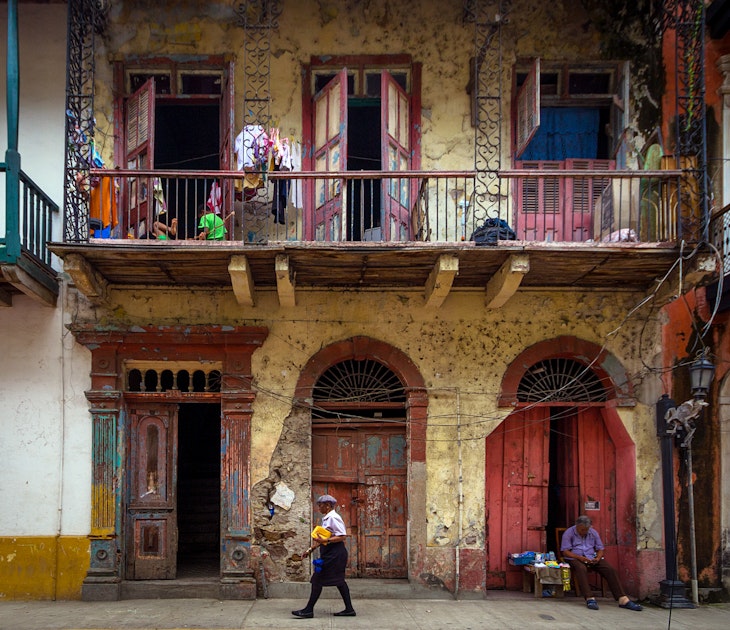
Aug 22, 2024 • 8 min read
Colonial cities, adventure treks, scuba diving, surfing: all there is to do in Central America can be overwhelming. Here’s our guide to the region’s best.
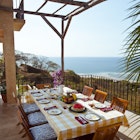
Aug 16, 2024 • 5 min read

Aug 15, 2024 • 10 min read

Aug 1, 2024 • 7 min read

Aug 1, 2024 • 11 min read
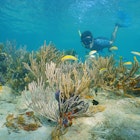
Jul 31, 2024 • 5 min read

Jul 31, 2024 • 4 min read

Jul 30, 2024 • 8 min read

Jul 11, 2024 • 9 min read

Search Smartraveller

Latest update
Exercise a high degree of caution in Nicaragua due to the threat of violent crime.
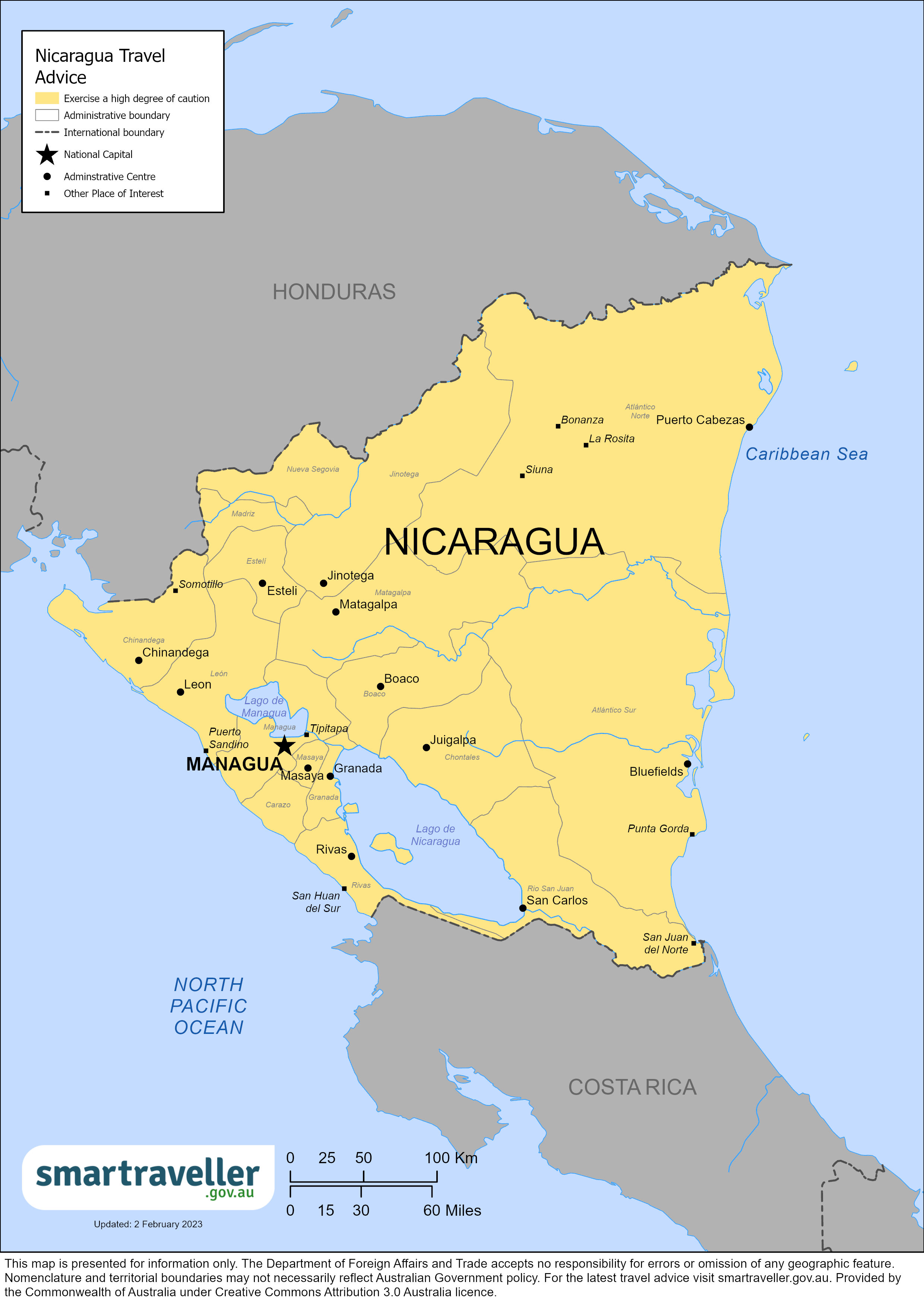
Nicaragua (PDF 238.12 KB)
Americas (PDF 3.29 MB)
Local emergency contacts
Fire and rescue services, medical emergencies.
Call 128 or go to the hospital.
Call 101 for the tourist police, or go to the nearest police station.
Advice levels
Exercise a high degree of caution in Nicaragua.
- Nicaragua has a high crime rate, including armed robbery, assault and express kidnapping. There aren't many police outside major urban areas. Avoid remote locations. Don't go out alone or at night. Only travel to tourist areas. Violent crime occurs in unofficial taxis. Use only official taxis with a red number plate, or radio-dispatched taxis. Avoid public transport.
- Armed gangs operate along the Honduran border. Only use highways that cross the border at Guasaule, El Espino or Las Manos.
- Hurricane season is from June to November. Hurricanes can cause flooding and disrupt services. Know your hotel or cruise ship's evacuation plan. Find your nearest shelter.
- Nicaragua has 3 active volcanoes. Don't hike near volcanoes or visit remote areas without an experienced guide.
- Protests against the Nicaraguan Government may occur. Take care not to appear to support anti-government activity. Avoid protests and political gatherings, authorities may arrest or imprison you.
Full travel advice: Safety
- Malaria is a risk in rural areas, including the outskirts of Managua. Consider taking anti-malaria medication.
- Insect-borne diseases, including dengue, chikungunya, chagas disease and leishmaniasis, are widespread. Ensure your accommodation is insect-proof. Use insect repellent.
- Zika virus is also widespread. If you're pregnant, discuss your travel plans with your doctor.
- Foodborne, waterborne and other infectious diseases are common. These include tuberculosis, typhoid, hepatitis and rabies. Drink only boiled or bottled water. Avoid raw or undercooked food. If you're bitten or scratched by an animal, get immediate medical help.
- Medical facilities are good in Managua but very limited elsewhere. There are no emergency ambulance services. If you're seriously ill or injured, you may need medical evacuation out of the country. Ensure your travel insurance covers this.
Full travel advice: Health
- Don't use or carry illegal drugs. Penalties for drug offences are severe. They include long prison sentences.
- It's illegal to photograph official buildings. Check with officials before taking photos.
- Take care when driving. If you kill or injure someone in an accident, officials may detain you until your court case finishes.
Full travel advice: Local laws
- Entry and exit conditions can change at short notice. You should contact the nearest embassy or consulate of Nicaragua for the latest details.
You'll need to purchase a tourist card at the airport. This permits you to visit Nicaragua for up to 90 days.
- Have multiple ways to access money. The only foreign currency you can exchange is US dollars. ATMs have low daily withdrawal limits.
- Driving can be dangerous. Travel only during daylight hours. Don't leave main roads in the northern border region, as there are unmarked landmines.
Full travel advice: Travel
Local contacts
- The Consular Services Charter details what the Australian Government can and can't do to help you overseas.
- The Office of the Embassy of Canada to Nicaragua provides consular assistance for Australians in Nicaragua. Australia doesn't have an Embassy in Nicaragua. You can also get consular assistance from the Australian Embassy in Mexico .
- To stay up to date with local information, follow the embassy's social media accounts.
Full travel advice: Local contacts
Full advice
Violent crime.
Nicaragua has a high risk of crime. This includes:
- armed robbery
- express kidnapping , where criminals force you to withdraw cash from an ATM
Highest rates of violent crime occur in:
- Granada and San Juan del Sur
- La Rosita Siuna
- Corn Island
Gang violence can happen at major hotels, bus terminals, beaches and markets.
Illegal drug smuggling occurs in the Caribbean coastal area.
Policing is limited outside major urban areas. You may not find police in:
- remote beach communities on the Pacific Coast
- Atlantic Coast autonomous regions
Drug traffickers and other criminals use these areas.
Kidnapping occurs across the world with political, ideological and criminal motives. Foreigners, including Australians, have been kidnapped overseas while travelling. Kidnaps can happen anywhere, anytime, including in destinations that are typically at lower risk.
Incidents of kidnapping occur in Nicaragua. Small criminal gangs motivated by financial gain are responsible for the vast majority of kidnaps. Express kidnappings are a problem.
The Australian Government's longstanding policy is that it doesn't make payments or concessions to kidnappers.
More information:
Assaults and robberies occur in unlicensed taxis or when a stranger offers to call a taxi for you. To reduce your risks:
- don't use a taxi if a stranger organised it
- use official taxis with a clearly visible red number plate
- use radio-dispatched taxis at the international airport and larger hotels
Take note of the taxi's registration and phone numbers.
While it is a common local practice to share taxis with strangers, we recommend you don't. If you must, agree on a fare for a solo journey before you set off.
There is a risk of ‘express kidnapping’ if you use an unauthorised taxi. You could be taken hostage and forced to pay cash for your release.
Road-based crime
Armed gangs carry out kidnappings, robberies and extortion in the northern border region.
For safer travel to the Honduran border, only use highways that cross the border at:
Criminals have attacked vehicles, including hotel-run buses, along:
- Managua to León highway (Route 12/CA-3)
- Tipitapa to Masaya highway (NIC-11A)
- Somotillo to Chinandega highway (NIC-24)
To protect yourself from violent crime:
- don't discuss your travel plans with strangers or in public
- don't travel at night
- only travel in tourist areas
- avoid isolated locations
- avoid walking alone, particularly on remote beaches
Avoid public transport. If you must use it, be cautious of anyone offering help. They may rob you.
Pickpockets and bag snatchers are a risk:
- on public transport
- in tourist areas
- at hotels and markets
- when your vehicle is stopped in traffic
Take care of your valuables:
- in markets near the old cathedral in Managua
- near the Tica Bus Station terminal
- at public transport terminals
Use reputable tour operators. Thieves posing as tour guides may rob you, particularly on the island of Ometepe.
Only use ATMs at banks and in busy areas, like shopping centres.
Be alert when using your credit card. Credit card fraud is on the increase.
If you're attacked or robbed, don't resist. Many criminals carry weapons.
Cyber security
You may be at risk of cyber-based threats during overseas travel to any country. Digital identity theft is a growing concern. Your devices and personal data can be compromised, especially if you’re connecting to Wi-Fi, using or connecting to shared or public computers, or to Bluetooth.
Social media can also be risky in destinations where there are social or political tensions, or laws that may seem unreasonable by Australian standards. Travellers have been arrested for things they have said on social media. Don't comment on local or political events on your social media.
- Cyber security when travelling overseas
Civil unrest and political tension
Demonstrations and protests.
Protests against the Nicaraguan Government may occur.
Take care not to appear to support anti-government activity. Authorities may arrest or imprison you.
Public protests and events that draw large groups of people can turn violent.
During periods of unrest:
- avoid protests as they may turn violent
- monitor local media reports of unrest
- don't cross roadblocks
- follow the advice of local authorities
Boundary disputes occur in the Caribbean coastal waters between Nicaragua and Honduras. Authorities have detained and impounded boats and fishing vessels.
- Demonstrations and civil unrest
Terrorism is a threat worldwide.
Tourism safety
The town of San Juan del Sur has a lively party scene. If you plan to join in, see Partying safely .
Swimming safety
Strong currents and undertows occur on the Pacific coast beaches. Check the safety conditions. There may not be lifeguards or warning signs.
Climate and natural disasters
Nicaragua experiences natural disasters and severe weather , including:
- flash flooding
- earthquakes
- volcanic activity
If there's a natural disaster:
- always carry your passport in a waterproof bag
- keep in touch with family and friends
- check the media and local sources for information
- Global Disaster Alert and Coordination System
Hurricanes, landslides and flash flooding
Severe weather may occur at any time. This can cause landslides and flash flooding.
Hurricane season is from June to November. During this time, you may encounter landslides, mudslides, flooding and disruption to essential services.
The direction and strength of hurricanes can change suddenly.
In the event of a hurricane:
- you may get stuck in the area
- flights could be delayed or suspended
- available flights may fill quickly
- adequate shelter may not be available
If you travel during hurricane season:
- know the evacuation plan for your hotel or cruise ship
- keep your travel documents somewhere safe and waterproof
- contact your tour operator for an update on your destination
If a hurricane is approaching:
- identify your local shelter
- monitor alerts and advice from authorities
Severe weather may also affect:
- access to ports
- road travel
- essential services, such as communication, water and electricity
To get weather alerts, register with either the:
- National Hurricane and Tropical Prediction Center
- Caribbean Disaster Emergency Management Agency
Earthquakes, tsunamis and volcanoes
Earthquakes and large, destructive tsunamis can happen in Nicaragua. It is in an active earthquake zone.
The country has 3 active volcanoes:
- Santiago Volcano, about 25km south of Managua
- San Cristobal Volcano
- Cerro Negro Volcano
Don't hike near volcanoes or visit remote areas without an experienced guide.
If a natural disaster happens, follow the advice of local authorities.
Travel insurance
Get comprehensive travel insurance before you leave.
Your policy needs to cover all overseas medical costs, including medical evacuation. The Australian Government won’t pay for these costs.
If you can't afford travel insurance, you can't afford to travel. This applies to everyone, no matter how healthy and fit you are.
If you're not insured, you may have to pay many thousands of dollars up-front for medical care.
- what activities and care your policy covers
- that your insurance covers you for the whole time you’ll be away
Physical and mental health
Consider your physical and mental health before you travel, especially if you have an existing medical condition.
See your doctor or travel clinic to:
- have a basic health check-up
- ask if your travel plans may affect your health
- plan any vaccinations you need
Do this at least 8 weeks before you leave.
If you have immediate concerns for your welfare, or the welfare of another Australian call the 24-hour Consular Emergency Centre on +61 2 6261 3305 or contact your nearest Australian Embassy, High Commission or Consulate to discuss counselling hotlines and services available in your location.
- General health advice
- Healthy holiday tips (Healthdirect Australia)
Not all medication available over the counter or by prescription in Australia is available in other countries. Some may even be considered illegal or a controlled substance, even if prescribed by an Australian doctor.
If you plan to bring medication, check if it's legal in Nicaragua. Take enough legal medicine for your trip.
Carry a copy of your prescription or a letter from your doctor stating:
- what the medication is
- your required dosage
- that it's for personal use
Health risks
Insect-borne diseases.
Malaria is a risk in rural areas of Nicaragua, including the outskirts of Managua.
Dengue and chikungunya are widespread.
The risk of other insect-borne diseases increases in the rainy season, from April to November. This includes:
- Chagas disease
- Leishmaniasis
Widespread transmission of zika virus occurs in Nicaragua.
If you're pregnant, the Australian Department of Health recommends that you:
- discuss travel plans with your doctor
- consider deferring non-essential travel to affected areas
To protect yourself from diseases spread by insects:
- make sure your accommodation is insect-proof
- use insect repellent
- wear long, loose, light-coloured clothes
Consider taking medicine to prevent malaria.
Other health risks
Waterborne, foodborne, parasitic and other infectious diseases are common.
These include:
- tuberculosis
- leptospirosis
Serious outbreaks sometimes occur.
More information
- Infectious diseases
Medical care
Medical facilities.
Facilities are good in Managua but are very limited in smaller towns and rural areas.
Expect to pay cash upfront before doctors, and private hospitals treat you, even in an emergency.
There are no emergency ambulance services in Nicaragua. Access to certain types of medical equipment, medication and treatments is limited.
If you become seriously ill or injured, you may need evacuation to another country. This can be very expensive.
You're subject to all local laws and penalties, including those that appear harsh by Australian standards. Research local laws before travelling.
If you're arrested or jailed, the Australian Government will do what it can to help you under our Consular Services Charter . But we can't get you out of trouble or out of jail.
Penalties for drug offences are severe and include long prison sentences in local jails.
- Carrying or using drugs
It's illegal to take photos of official buildings. Check with local authorities before taking photos.
There are strict restrictions on the use of drones. Do not use drones for photography or any other reason unless you have written permission from Nicaraguan authorities.
If you drive a car and injure or kill someone in an accident, authorities may arrest or detain you. The local courts will need to determine who was responsible. This can take weeks or months.
Australian laws
Some Australian criminal laws still apply when you’re overseas. If you break these laws, you may face prosecution in Australia.
- Staying within the law and respecting customs
Dual citizenship
Dual nationality is recognised in Nicaragua. Should you be arrested, you may be treated only as a Nicaraguan citizen and denied access to consular services.
Children with single or dual Nicaraguan nationality may need specific documents to leave the country without both parents.
Contact the Nicaraguan authorities before you travel.
- Dual nationals
- Advice for people travelling with children
Visas and border measures
Every country or territory decides who can enter or leave through its borders. For specific information about the evidence you'll need to enter a foreign destination, check with the nearest embassy, consulate or immigration department of the destination you're entering.
Tourist card (CA-4 visa)
Nicaragua is a member country of the Central American Border Control Agreement (CA-4), along with:
- El Salvador
With a CA-4 tourist visa, you can travel freely by land between member countries within a 90-day period.
Your tourist card is dated from the first point of entry in any member country.
You can apply to extend the CA-4 visa at Nicaraguan Immigration (Spanish) before it expires.
If you overstay the visa without an extension, you may be:
- forced to leave
- unable to enter other CA-4 member countries
If you're not a tourist or you plan to stay longer, you'll need a visa.
Entry and exit conditions can change at short notice. Contact the Nicaraguan Embassy in Japan for details about visas, currency, customs and quarantine rules.
Travel via the United States
If you're travelling through the US , ensure you meet all current US entry and transit requirements. If you're arriving in or transiting through the US, you'll need to show onward flight tickets from not only the US but also any country that borders the US (i.e. Mexico and Canada) if that's your next destination.
- Travel advice for the US
Travel via Canada
If you're travelling via Canada, you'll need an ETA (Electronic Travel Authorisation) for Canada. Transit requirements for Canada are strictly enforced.
- Visit Canada
- Canadian High Commission
- Travel advice for Canada
Travel via Chile
If you’re travelling via Chile, ensure you meet all current entry or transit requirements.
- Travel advice for Chile
Other formalities
Yellow fever vaccination.
You may need a valid yellow fever vaccination certificate to enter Nicaragua. Some airlines may want to see one when you leave.
- Yellow fever risk and certification requirements
Arrival and departure taxes
There's an arrival tax, which you need to pay in cash.
Your airline ticket usually includes the airport departure tax from the Augusto Sandino Airport in Managua. Confirm this with your travel agent.
Some countries won’t let you enter unless your passport is valid for 6 months after you plan to leave that country. This can apply even if you’re just transiting or stopping over.
Some foreign governments and airlines apply the rule inconsistently. Travellers can receive conflicting advice from different sources.
You can end up stranded if your passport is not valid for more than 6 months.
The Australian Government does not set these rules. Check your passport’s expiry date before you travel. If you’re not sure it’ll be valid for long enough, consider getting a new passport .
Lost or stolen passport
Your passport is a valuable document. It's attractive to people who want to use your identity to commit crimes.
Some people may try to trick you into giving them your passport. Always keep it in a safe place.
If your passport is lost or stolen, tell the Australian Government as soon as possible:
- In Australia, contact the Australian Passport Information Service .
- If you're overseas, contact the nearest Australian embassy or consulate .
Passport with ‘X’ gender identifier
Although Australian passports comply with international standards for sex and gender, we can’t guarantee that a passport showing 'X' in the sex field will be accepted for entry or transit by another country. Contact the nearest embassy, high commission or consulate of your destination before you arrive at the border to confirm if authorities will accept passports with 'X' gender markers.
- LGBTI travellers
The local currency is the Nicaraguan Córdoba (NIO).
You won't be able to use Australian dollars or traveller's cheques in Nicaragua.
The only foreign currency you can exchange is US dollars.
ATMs have low daily withdrawal limits.
Local travel
Remote areas.
If you're an adventure traveller, use an experienced local guide. This includes trekking to volcanoes or other remote areas.
Make sure you take enough supplies.
Driving permit
To drive in Nicaragua, you'll need either:
- an International Driving Permit (IDP)
- an Australian driver's licence
You must get the IDP before arriving in Nicaragua.
You also need to carry your current passport and tourist card.
Road travel
Driving in Nicaragua can be dangerous. Hazards include:
- narrow roads in poor condition
- lack of signage
- dangerous local driving practices
You're more likely to die in a motor vehicle accident in Nicaragua than in Australia.
If you're involved in an accident, don't move your vehicle until a police officer permits it.
If you plan to drive or travel by car:
- only travel during daylight hours
- travel in groups where possible
- don't hitchhike
- lock doors and keep windows up, even when moving
- don't leave main roads in the northern border region, as there are unmarked landmines
- Driving or riding
It's a common local practice to share taxis with strangers. To avoid this, agree on a fare for a solo journey before you set off.
Assaults and robberies happen in unlicensed taxis or when a stranger offers to call a taxi for you. Don't take a taxi if you don't know the person who called it.
DFAT doesn't provide information on the safety of individual commercial airlines or flight paths.
Check Nicaragua's air safety profile with the Aviation Safety Network.
Emergencies
Depending on what you need, contact your:
- family and friends
- travel agent
- insurance provider
Always get a police report when you report a crime.
Your insurer should have a 24-hour emergency number.
Consular contacts
Read the Consular Services Charter for what the Australian Government can and can’t do to help you overseas.
Australia doesn’t have an Embassy in Nicaragua.
The Office of the Embassy of Canada to Nicaragua provides consular assistance for Australians in Nicaragua. Australian provisional travel documents can be issued at this office.
More information:
- Special travel documents (Australian Passport Office)
You can also get consular assistance from the Australian Embassy in Mexico City.
Office of the Embassy of Canada to Nicaragua
De Los Pipitos, 2 blocks West,
El Nogal, Street No. 25, Bolonia
Managua, Nicaragua
Phone: (505) 2268 0433, 2268 3323
Email: [email protected]
Website: https://www.international.gc.ca/country-pays/nicaragua/managua.aspx?lan…
Australian Embassy, Mexico City
Ruben Dario #55 Corner of Campos Eliseos, Polanco Colonia Bosque de Chapultepec 11580 CDMX Mexico Phone: +52 55 1101 2200 Email: [email protected] Website: mexico.embassy.gov.au Facebook: Australian Embassy Mexico X: AusEmbMex
See the Embassy website for details about opening hours and any temporary closures.
24-hour Consular Emergency Centre
In a consular emergency, if you can't contact an embassy, call the 24-hour Consular Emergency Centre on:
- +61 2 6261 3305 from overseas
- 1300 555 135 in Australia

Travelling to Nicaragua?
Sign up to get the latest travel advice updates..
Be the first to know official government advice when travelling.
Nicaragua Travel Restrictions
Traveler's COVID-19 vaccination status
Traveling from the United States to Nicaragua
Open for vaccinated visitors
COVID-19 testing
Not required
Not required for vaccinated visitors
Restaurants
Recommended in public spaces.
Documents & Additional resources
Ready to travel, find flights to nicaragua, find stays in nicaragua, explore more countries on travel restrictions map, destinations you can travel to now, dominican republic, netherlands, philippines, puerto rico, switzerland, united arab emirates, united kingdom, know when to go.
Sign up for email alerts as countries begin to open - choose the destinations you're interested in so you're in the know.
Can I travel to Nicaragua from the United States?
Most visitors from the United States, regardless of vaccination status, can enter Nicaragua.
Can I travel to Nicaragua if I am vaccinated?
Fully vaccinated visitors from the United States can enter Nicaragua without restrictions.
Can I travel to Nicaragua without being vaccinated?
Unvaccinated visitors from the United States can enter Nicaragua without restrictions.
Do I need a COVID test to enter Nicaragua?
Visitors from the United States are not required to present a negative COVID-19 PCR test or antigen result upon entering Nicaragua.
Can I travel to Nicaragua without quarantine?
Travelers from the United States are not required to quarantine.
Do I need to wear a mask in Nicaragua?
Mask usage in Nicaragua is recommended in public spaces.
Are the restaurants and bars open in Nicaragua?
Restaurants in Nicaragua are open. Bars in Nicaragua are .

Is Nicaragua Safe To Visit In 2024? Safety Tips From My First-Hand Experience
- Post author: Nicoletta
- Reading time: 47 mins read
- Post last modified: February 10, 2024
- Post comments: 0 Comments

Nicaragua is one of the least explored countries in Central America. Before visiting, I heard different stories and people telling me how dangerous it was and that I should’ve been careful. So, I went to travel to Nicaragua to experience it by myself.
After spending a month in the country , I can say Nicaragua is safe to travel . While you have to be more cautious and use your common sense, it’s one of the safest countries in the Americas.
In this article, I’ll give you top safety tips from my first-hand experience.
✈ Travel Resources For Your Trip ✈
Here are some of my favorite travel resources I use for my travel adventures.
Can I Travel To Nicaragua Right Now?
Yes, you can travel to Nicaragua right now. And I highly recommend you do so. Nicaragua is a stunning country with friendly people, incredible nature, and interesting culture. It’s one of my favorite countries I’ve visited. It’s less crowded than the neighboring Costa Rica and very unique.
General Statistic For Safety In Nicaragua
To help you understand how safe Nicaragua really is, I’ve got some statistics and official world safety rankings for you.
Nicaragua is ranked #123 on the Global Peace Index among all countries in the world (e.g., safer than the US, Mexico, Brazil, Israel, Turkey , and other popular travel destinations).
While it’s not the safest country to travel to (well, it’s not Iceland), I felt safe; locals are friendly, and using your common sense will keep you safe.
Is Nicaragua Safe For Solo Female Travelers?
Yes , Nicaragua is safe for solo female travelers. But if you decide to travel individually, you should follow these 2 simple rules : don’t walk alone at night, and be aware of taxi scams (don’t take a taxi at night, especially in Managua).
Taking this advice and using your common sense will keep you safe as a solo female traveler in Nicaragua. I met two women traveling solo in Nicaragua , and they told me they felt safe most of the time. So you shouldn’t be afraid too much.
Is Nicaragua Safe For American Tourists?
Yes, Nicaragua is safe for American tourists. You’ll especially feel safe in cities such as Granada , Leon , and San Juan del Sur . I recommend asking your hotel to call a taxi and not walking alone at night. These two things will keep you extra safe in Nicaragua.
Safety For Backpackers In Nicaragua
Yes, Nicaragua is safe for backpackers. I was backpacking in Nicaragua with my boyfriend for a month and felt mostly safe . We took taxis, buses, and boats, and everything went fine. My general advice is not to walk outside or take a taxi anywhere at night.
Otherwise, Nicaragua is a beautiful country, perfect for backpackers to explore.

👉 READ ALSO: Best Of Nicaragua Itinerary: 7 Days With Map & Tips
9 Safety Tips For Traveling Nicaragua: My Experience
As I mentioned above, I traveled to Nicaragua for a month with my boyfriend. Thanks to the time, I’ve gathered some of the best safety tips and got a whole experience in the country.
With that said, here are my top 9 safety tips for you if you want to experience this beautiful country.

1. Don’t Walk Outside At Night Alone
Walking outside at night, especially as a solo female traveler, is unsafe in Nicaragua. Make sure you join a group of travelers if you want to go out.
It also depends on the place where you’re at. For instance, I felt safe walking around at night in Granada and Leon . I didn’t feel safe at night in Managua and Bluefields . So always plan accordingly.
💡 PRO SAFETY TIP: Avoid walking in places such as Bluefields and Managua or hidden neighborhoods at night.
2. Don’t Take A Taxi At Night
Taking a taxi at night can be dangerous in Nicaragua. I’m not saying not to take it, but you should be cautious. Tell the taxi driver even 5 times where you want to go and make sure he understands. While driving to your destination, check Google Maps to see if he is driving you where you told him.
Generally, I didn’t have any issues with taxi drivers in Nicaragua. You usually also get a feeling of the person before entering the taxi, whether the driver is fair or looks a bit suspicious.
💡 PRO SAFETY TIP: If you need to take a taxi at night, get a taxi driver recommended by local friends or tell your hotel to call a taxi for you . You can trust these and avoid any dangerous situations.

3. Avoid Taking A Night Bus
This is something to do if you want to be extra safe . If it’s a night bus from bigger companies such as Tica Bus, it’s fine to take it . I’m talking about the local buses in Nicaragua , especially on the route to and from Bluefields .
I took a night bus from Bluefields to Managua , and while I felt safe throughout the journey, this route is famous for drug traffic . The story goes that police stopped our bus 15 minutes after departing Bluefields and held us there for almost 2 hours. They found drugs in a local’s luggage and detected her.
Only after I thought about what would happen if someone stuck drugs into my backpack without me knowing, I would’ve been in trouble and perhaps don’t leave Nicaragua for a decade. That woman was imprisoned for 12 years .
💡 PRO SAFETY TIP: Always watch your stuff when taking local buses, and don’t take the night bus from Bluefields for extra safety.
4. Don’t Walk Around With Valuables
Avoid walking around with too many valuable things. If you have a phone, that’s fine, sure. But be sure to have it in your pocket or hold it tight. Always watch your belongings and keep your backpack closed all the time.
💡 PRO SAFETY TIP: Don’t wear expensive jewelry & expensive clothes – this makes you stand out, and you’ll be like a magnet for thefts.
5. Don’t Leave A Lot Of Cash Inside Your Hostel/Hotel Room
Luckily this didn’t happen to me, but I’ve heard stories from other travelers that they left cash in their room, and after they came back, it was gone. Housekeeping staff took advantage of seeing the cash and just took it while cleaning their room.
So either tell the reception you don’t want your room cleaned. Or my advice would be to hide the cash as well as you possibly can . If you put the cash into a rare place , nobody will find it. The housekeeping also only has a little time to look for it. So it’s just a matter of hiding your cash well.
💡 PRO SAFETY TIP: Store your cash in a bunch of clothes, in your hygiene purse, or a book and hide that book in a suitcase stuffed with clothes.
6. Don’t Leave Your Stuff Unattended On The Beach
Similarly, don’t leave your belongings unattended on the beach. I’ve also heard stories of travelers leaving a book with cash on the beach and going for a swim. After 10 minutes, when they came back, the book was there, and the cash was gone.
But come on; this is a bad idea to leave your cash in a book standing alone and walking away. Be smart ; either don’t take much cash with you or none at all . After all, you’re going for a swim and don’t need a lot of cash or many belongings with you.
💡 PRO SAFETY TIP: Ask fellow travelers to watch your stuff if you want to leave it on the beach alone for a while.

7. Don’t Believe Everything What You Hear To Avoid Scams
Locals are clever, sometimes too smart. And they’re very good at scamming people. Always double-check and think twice when you get some information from locals.
I was at the bus terminal in Rivas , traveling from Ometepe to San Juan del Sur. I came to Rivas in a taxi and wanted to change to Rivas and take a bus to San Juan del Sur.
After arriving at Rivas bus terminal, I didn’t even properly stand on the ground with both feet, and locals started yelling at me , offering me a taxi ride to San Juan del Sur and other locations. When I told some I wanted to go to San Juan, they said there was no bus . They claimed the last bus left 5 minutes ago, and the last possible bus only left at night around 10:00 pm (it was 4:00 pm).
I just ignored them and walked towards the buses to double-check . After walking around and asking individual buses and people waiting there whether there was a bus to San Juan del Sur, I found a bus with passengers about to leave in 3 minutes. So I took it.
💡 PRO SAFETY TIP: Locals take advantage of you being new in the country and not knowing things . So don’t listen to everyone . Always double-check first whether it’s true what they’re saying. Take your time to think, and only after taking action.
8. Think Twice Before You Take Action
As I’ve mentioned, take your time to think and re-evaluate a situation before you take action . This applies to everything you do in Nicaragua. If a taxi driver tells you a price that seems too high for you, either negotiate or walk away and find another one.
If somebody wants to exchange your dollars for Nicaraguan Cordoba (local currency) on the street, think before you do so. First, ask him how much would you get and then double-check online at XE.com if the amount is correct.
In case anyone tells you there is no bus to your destination, double-check first . Perhaps it’s not true, and they tell you because they can charge you more for the ride.
💡 PRO SAFETY TIP: People sometimes put pressure on you to make a decision right away. You don’t have to. Take as much time as you need , think first, evaluate whether it’s the right thing to do, and only then take action .
9. Use Common Sense
I know this sounds cliche, but it’s my most important advice when traveling to any country, not just Nicaragua. Listening to yourself and your feelings and using common sense will tell you something is wrong.
We, as human beings, are naturally careful when it comes to our safety . So your body will tell you. You might naturally feel less safe in Bluefields because some people might have that scary or unsafe vibe . You’ll know somebody is lying to you because they put too much unnecessary pressure on you.
💡 PRO SAFETY TIP: So think and use your common sense. It’ll keep you safe while traveling to Nicaragua.
General Safety Tips For Traveling Nicaragua
Now that you have my insights into safety when traveling in Nicaragua let’s talk about general safety tips such as entry requirements, getting around, health risks, scams and crime in Nicaragua, and money safety.
All these tips will keep you safe while traveling in Nicaragua and help you avoid all possible troubles and scams . So keep reading.
Nicaragua Entry Requirements
First of all, check if you need Visa to travel to Nicaragua. You can do so by clicking this link and seeing all the necessary documents and visas you need for Nicaragua. Or click on the box below and see what you need to enter Nicaragua from your country of residence.
Furthermore, there are general entry requirements to enter Nicaragua, except for Visa:
- Fill Out Online Entry Form
- Entrance fee of $14
- Valid Passport
- Confirmation of your hotel/hostel stay
To enter Nicaragua, you must complete this form online before traveling. It asks you for your personal information, and it’s for the government to track who is entering the country and when is your approximate time you’ll leave.
You’ll also have to pay $14 to enter the country (as of 2023). Everyone must pay this general entry fee when crossing the border or arriving at an international airport in Managua.
Additionally, you need a valid passport (make sure it’s not going to expire in the next 6 months) and a confirmation of your hotel/hostel stay .
👉 READ ALSO: How To Get From Costa Rica To Nicaragua – further tips for border crossing
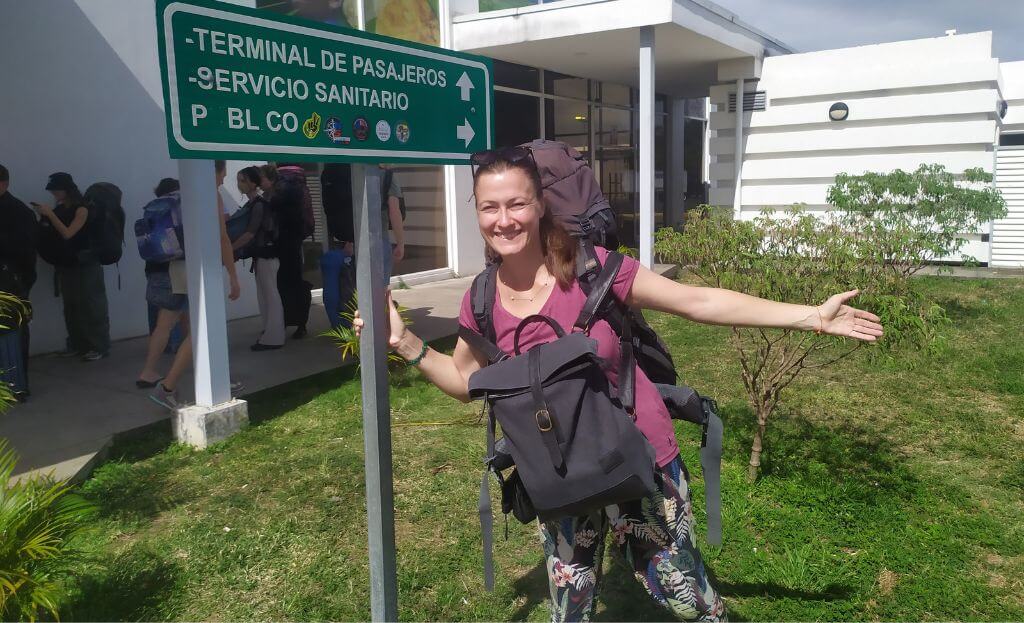
Getting Around Nicaragua – Taxis & Buses
MEDIUM RISK
Taking a taxi in Nicaragua is safe . Don’t Uber ; it can be subject to many scams . Instead, take a regular taxi . The safest is to let your hotel or hostel reception staff call a taxi for you. They work with particular taxi drivers, so you know you can rely on them, and they’ll drive you safely to your destination.
If you’re in a city taking a taxi on your own, tell the driver even 5 times where you want to go . Then check Google Maps while driving to see if he’s going in the right direction.
💡 PRO TIP: Make sure to negotiate the price before hopping into the taxi . Agree on the exact price you’ll make and try to make it lower (negotiate). Once you agree on a specific price with the driver, get into the taxi. Only enter a taxi knowing/agreeing on the price before. Otherwise, the drivers will take advantage of it and charge you more .
Is Public Transportation Safe In Nicaragua?
Public transportation is generally safe in Nicaragua . You should know, though, that the bus drivers drive like crazy . They drive very fast , and the road isn’t in the best condition, so it gets bumpy (I’m mainly talking about the bus route Managua – Bluefields). Yet, don’t worry, it’s safe.
If you take ferries and boats , it might look unsafe , too. These ferries and boats don’t have extra safety measures; they give you a lifevest, that’s it. The sea gets rough , so take a pill against sea sicknesses if you need. But generally, captains check the weather , and they often cancel the boat rides if the weather conditions are bad. So you shouldn’t be worried.
💡 PRO TIP: Be aware of drug traffic on the Carribean coastline of Nicaragua. Watch your backpack and belongings all the time when taking public transportation.
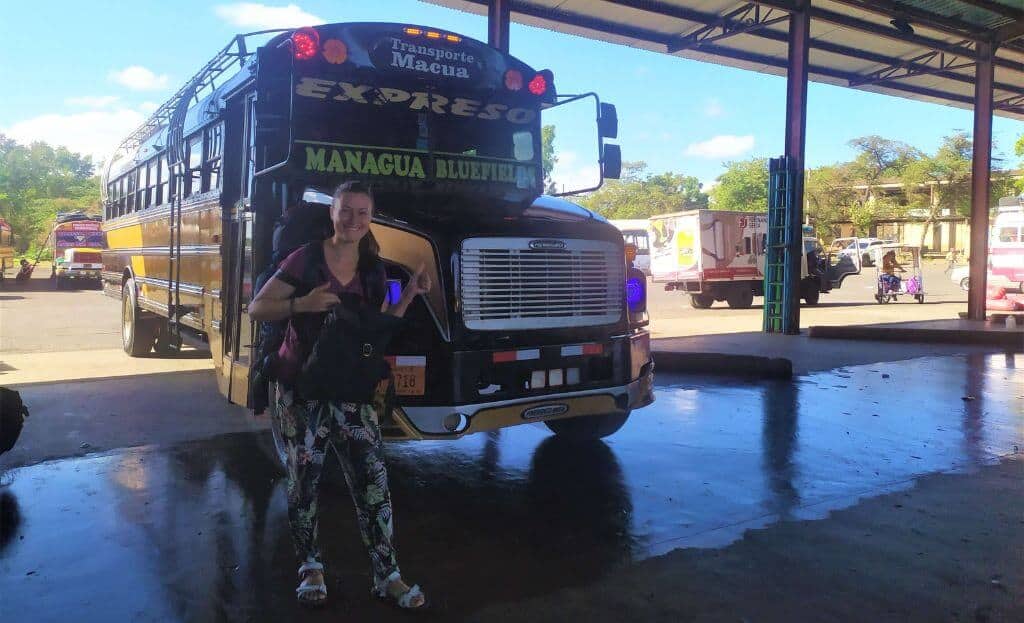
Risk Of Natural Disasters In Nicaragua
There is a number of potential natural disasters in Nicaragua. The main ones are:
- Volcano eruptions
The hurricane season in Nicaragua is between June and November . Some hurricanes have caused a lot of damage, while some were of minor importance. So check the weather forecast and news before traveling to avoid this natural disaster.
Nicaragua is a land of volcanoes . There are 19 altogether, and 7 volcanoes are still active . The last volcano eruption in Nicaragua was in 2012. While it shouldn’t put you off visiting this beautiful country, you should be aware of it, too.
Too much rain and hurricanes can cause floods in the country. This might be an additional natural threat when traveling to Nicaragua.
Health Risks In Nicaragua
As for health risks, malaria is a common disease in Nicaragua. While it’s nothing to fear, you should be aware of it.
You might also face gut health issues , such as diarrhea and stomach sickness . Make sure to eat in clean spaces . Avoid drinking tap water and raw milk/dairy products.
As an experienced traveler, you know you sometimes can’t avoid feeling sick on the road. So if it happens, don’t panic . Stay calm and in bed for a day or two; relax your body , and it’ll be fine. If not, see a doctor.
Nicaragua has great medical services , and the hospital in Managua (capital city) is amazing. Many people travel here specifically to get cheaper treatments and surgeries.
Is It Safe To Drink Tap Water In Nicaragua?
Tap water in Nicaragua isn’t safe to drink . Honestly, I didn’t even try it and always bought water bottles. Drinking tap water in Nicaragua may cause gut problems and diarrhea , so avoid it.
Crime In Nicaragua
MEDIUM – HIGH RISK
You should be aware of the high crime risk in Nicaragua. But again, please don’t let it put you off visiting this stunning country. The danger is everywhere globally; the best precaution is to know about it and behave accordingly.
The most common crime cases in Nicaragua are:
- drug smuggling
- express kidnapping
Drug smuggling is widespread on the Caribbean coast of Nicaragua . Bluefields is the drug hub where all the drug traffic occurs. That’s why I told you to avoid taking the night bus from there. Also, it’s dangerous walking at night on the streets of Bluefields. Throughout the day, I felt safe.
Theft is also common in Nicaragua. But if you use your common sense and follow the safety tips I gave you earlier in this article, you’ll be fine.
Assault and express kidnapping may also occur. Avoid walking in hidden streets without people and tourists. Stay in the common areas of any city and generally avoid walking/traveling around at night in Nicaragua.
Armed gangs are common in northern Nicaragua , the border with Honduras. So be aware of that, too. You’ll be fine if you cross the border with a local travel supplier or an official bus company.
Pickpockets & Scams In Nicaragua
There is a high risk of pickpockets in Nicaragua, too. But again, follow the safety tips I gave you from my experience and use your common sense . You’ll be fine this way. I believe pickpocketing happens when people don’t care and walk around with an open backpack or leave their phone/belongings unattended.
The most common scams in Nicaragua are:
- money scams
A taxi scam happened to me. A taxi driver charged us 10 times more for a ride because he claimed it was more expensive at night to drive, and he also had to wait for us to arrive on a ferry. We got this taxi driver recommended by our friends, so I didn’t even negotiate the price before as I believed our friends recommended us a fair driver. But, well, things happen regardless.
💡 PRO TIP: Always negotiate the price before entering a taxi. This way, you’ll avoid any taxi scams.
Another common scam in Nicaragua is a money scam . Think of people giving you a bad exchange rate in an office, fake bank notes , or on the street or giving you a wrong change . Keep reading the section below for money scams if you want to learn more.
Money Safety In Nicaragua
Nicaragua’s most common money scams are fake bank notes and wrong exchange rates .
Fake Bank Notes When Exchanging Cash
Random people are standing/sitting on the streets that will offer you local cash in exchange for your dollars. Be very careful. I saw people doing these money exchanges, and I did it once, too.
We were in a taxi driving to our hotel in Managua and needed to change money to pay the taxi driver. We trusted this guy as he drove us before, and he pulled over on the street and helped us exchange the money with the guy standing there. But I think I wouldn’t do this cash exchange alone.
💡 PRO TIP: I would avoid exchanging cash on the streets as the bank notes might be fake . If you exchange money, make sure it’s an official exchange place . Also, check the rate online on XE.com before and then count whether they gave you the exact cash it was supposed to be.
ATM Withdrawals & Cash
It’s safe to use ATMs in Nicaragua. I recommend withdrawals from ATMs in bigger shopping malls or safer cities such as Granada and Leon. If you plan to travel to remote areas such as the Carribean Coast and the Corn Islands, withdraw cash before.
💡 PRO TIP: Calculate how much you need to explore the country for the number of days you’ll spend there. Exchange the appropriate amount . Avoid carrying too much cash around.
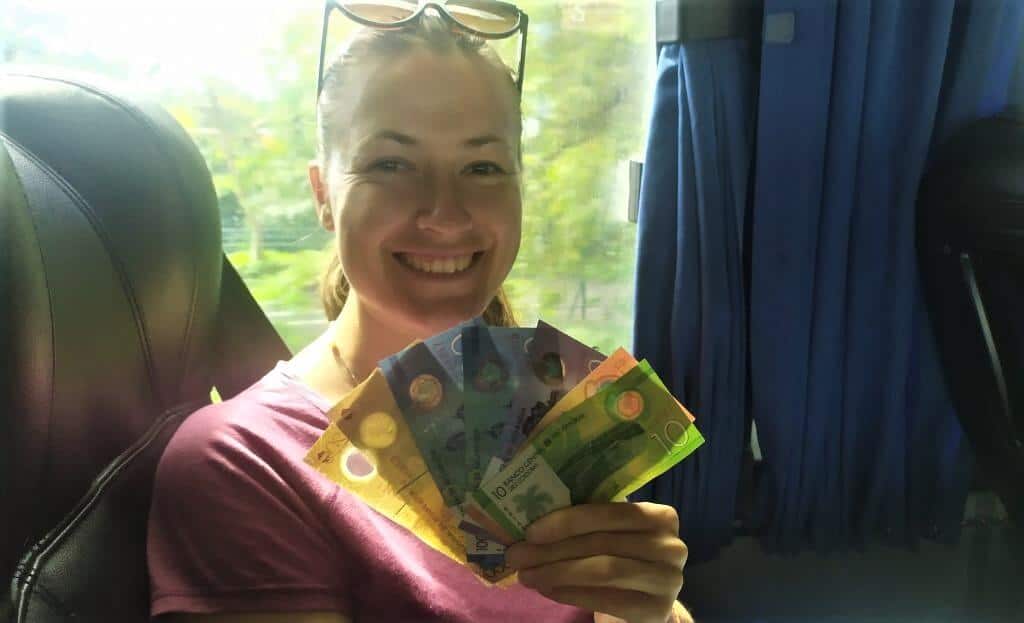
What Is The Safest Part In Nicaragua? Safest Places In Nicaragua
As with all countries, Nicaragua has its safe places and not-so-safe ones. If you want to be extra safe and avoid any trouble while traveling in the country, I recommend visiting the safe places.
The safest part of Nicaragua is the western part of the country , the Pacific coastline, and cities such as Leon, Granada, Popoyo, San Juan del Sur, and Ometepe Island.
Here is a list of the safest places in Nicaragua . I visited all of them and felt super safe throughout my stay.
✅ GRANADA – Granada is a stunning, rather small colonial town, and I consider it to be the safest place in Nicaragua. It’s a beautiful town with many facilities, beautiful hotels, great cafes, and many attractions, and it always feels safe. The people are super friendly and engaging, and the community helps each other.
👉 READ ALSO : Where To Stay In Granada Nicaragua
✅ LEON – Leon, located in the northern part of Nicaragua, is another safe place to visit. It’s the second biggest city in the country (after Managua), and while it has its sketchy neighborhoods, staying in the city center is very safe.
👉 READ ALSO : Where To Stay In Leon Nicaragua
✅ POPOYO – Popoyo is a small village on the Pacific coast of Nicaragua. It’s the main surfing hub and a great destination to relax and enjoy the quietness. It’s a very remote place, slightly difficult to get to, and one of the country’s safest places.
👉 READ ALSO : Where To Stay In Popoyo Nicaragua – one of the best surfing destinations worldwide
✅ SAN JUAN DEL SUR – San Juan is another touristy area, and most people visit it when traveling in Nicaragua. It’s a main beach destination and a great place to try surfing, too.
✅ OMETEPE – Another super-safe place in Nicaragua is Ometepe Island. As with Granada, I felt the safest in Ometepe. The locals are nice and friendly, and I didn’t feel danger at any corner. It’s a great destination to experience adventure, go hiking, and spend time in beautiful nature.
👉 READ ALSO : Where To Stay In Ometepe & 11 Unique Things To Do On Ometepe Island
✅ CORN ISLANDS – Corn Islands in the Caribbean Sea are a true paradise. Little Corn Island is by far the most beautiful island I’ve visited (that’s not a joke). Locals are super friendly, always smiling; it’s another world, calm and relaxing. So if you want a proper beach vacation, visit the Corn Islands as one of the safest places in Nicaragua.
Disclaimer: I do have to mention that there is some drug traffic around these islands and Bluefields, but it didn’t affect me in any way when I was there.
👉 READ ALSO : How To Get To Corn Island From Managua

What Should You Avoid In Nicaragua? Less Safe Places In Nicaragua
You should avoid two things in Nicaragua: walking outside (especially alone) and taking a taxi at night.
With that said, there are less safe places in Nicaragua. I wouldn’t say you should specifically avoid these places. But I consider them less safe than the places I mentioned above. You have to be more careful when visiting the following places in Nicaragua.
📍 BLUEFIELDS – Bluefields is commonly known as the drug hub in Nicaragua. There is a lot of drug traffic not just in Bluefields but the entire Caribbean coast. With that, some danger arises naturally. I felt safe in Bluefields during the day. But it’s really dangerous walking around at night. So please don’t do it; even locals don’t do so.
👉 READ ALSO: How To Get From Managua To Bluefields
📍 MANAGUA – The capital city of Nicaragua, Managua, is quite controversial. While getting around in the city center is safe, some parts can be dangerous. But as a traveler, you rarely end up in these hidden and dangerous areas. So if you stay within the city center and avoid walking around at night, you’ll be fine.
👉 READ ALSO : How To Get From Costa Rica To Nicaragua (Managua)
📍 SAN CARLOS – I have yet to go to San Carlos myself, but I’ve heard from many travelers that it’s less safe than other areas. It still is common to visit it while traveling in Nicaragua. It’s a jungle area, so be aware of potential health risks and theft in remote areas. But again, if you use your common sense, you’ll be fine.

I’ve also answered some of the most frequently asked questions below to give you even more information. So check them out.
Is Costa Rica Safer Than Nicaragua?
Costa Rica is slightly safer than Nicaragua because it’s a major tourist country in Central America. Generally, Costa Rica and its moto ‘Pura Vida’ has welcomed tourists and kept them safe. While Nicaragua is a safe country, there are things to consider that Costa Rica handles better, such as walking at night or taxi services.
Is It Safe To Live In Nicaragua?
Yes, Nicaragua is safe to live in. Generally, it depends on where you choose to live and the people you’re surrounded by. Nicaragua’s safest places to live are Leon, Granada, San Juan del Sur, and the Corn Islands.
I’ve met a Canadian couple who moved to and lived in Nicaragua for about 2 years. They told me they were the happiest there and always felt safe. Despite a hurricane, they stayed there and could sustain their lives.
Is Managua Nicaragua Safe?
Yes , Managua is safe in the center . The outskirts of Managua are pretty sketchy , so I recommend avoiding these places. To be honest, Managua felt the most unsafe of all places in Nicaragua to me. But the center was fine.
WRAP-UP: Safety In Nicaragua
Taking all of this advice into consideration, Nicaragua is a safe destination to travel to . While it has some crime rate and dangerous parts, if you follow these safety tips from my article, you’ll be fine whether you travel the country as a backpacker or a solo woman traveler. Most importantly, use your common sense, and you’ll be fine.
If you have any questions or need a customized travel itinerary, contact me at info(at)voicesoftravel.com . I’ll gladly help you.
Happy Travels!
More Tips For Nicaragua Travel
Looking to visit more places in Nicaragua? Check out my related articles:
Nicaragua Backpaking Itinerary For 7 Days
11 Unique Things To Do On Ometepe Island Nicaragua
Where To Stay In Ometepe Nicaragua
Where To Stay In Granada Nicaragua
Where To Stay In Leon Nicaragua
How To Get From Costa Rica To Nicaragua
How To Get To Corn Island From Managua
Is It Safe To Fly From Lima To Cusco? Revealed!

About the author: Nicoletta is a travel enthusiast and passionate language learner. While traveling, she loves to connect with locals using her language skills to learn about new cultures. Look for her skiing, hiking in the mountains, or exploring new destinations as she designs travel itineraries for her clients.
NICARAGUA : Interested in more articles for Nicaragua? Check out my Nicaragua Travel Page .

You Might Also Like
![nicaragua travel hazards Read more about the article 3 Days In Switzerland: 11 Itineraries For All Travelers & Seasons [2024]](https://voicesoftravel.com/wp-content/uploads/2023/12/3-days-in-switzerland-itinerary-11-300x213.jpg)
3 Days In Switzerland: 11 Itineraries For All Travelers & Seasons [2024]
![nicaragua travel hazards Read more about the article Where To Stay In Cappadocia: BEST Areas & Hotels [2024]](https://voicesoftravel.com/wp-content/uploads/2023/09/Where-to-stay-in-Cappadocia-Turkey-1-300x213.jpg)
Where To Stay In Cappadocia: BEST Areas & Hotels [2024]
![nicaragua travel hazards Read more about the article 13 Best Things To Do In Ohrid North Macedonia [2024]](https://voicesoftravel.com/wp-content/uploads/2024/01/best-things-to-do-in-ohrid-north-macedonia-lake-ohrid11-1-300x213.jpg)
13 Best Things To Do In Ohrid North Macedonia [2024]
Leave a reply cancel reply.
You must be logged in to post a comment.
Cookies on GOV.UK
We use some essential cookies to make this website work.
We’d like to set additional cookies to understand how you use GOV.UK, remember your settings and improve government services.
We also use cookies set by other sites to help us deliver content from their services.
You have accepted additional cookies. You can change your cookie settings at any time.
You have rejected additional cookies. You can change your cookie settings at any time.
Safety and security
There is a high threat of terrorist attack globally affecting UK interests and British nationals, including from groups and individuals who view the UK and British nationals as targets. Stay aware of your surroundings at all times.
UK Counter Terrorism Policing has information and advice on staying safe abroad and what to do in the event of a terrorist attack. Find out how to reduce your risk from terrorism while abroad .
Terrorism in Nicaragua
Although there is no recent history of terrorism in Nicaragua, attacks cannot be ruled out.
Political situation
Demonstrations and gatherings can turn violent. It is illegal for foreigners to take part in any sort of political activity in Nicaragua. You can be arrested and detained or deported for:
- taking part in a protest
- breach of the peace
- any activity seen as acting against the government, including political meetings and campaigns
- using Nicaragua’s national flag or colours (blue and white) for campaigning or protesting
Demonstrations can also lead to travel disruption. Check local information before travelling.
Violent crime
Foreigners have been affected by violent crime in Nicaragua. Criminals often carry out attacks on people in vehicles. To reduce the risk to yourself and your belongings:
- keep the windows of your car closed and the doors locked
- avoid public transport after dark
Take care when walking around markets, bus stations, around the old cathedral in Managua and in the poorer areas of towns. Do not visit these areas after dark on foot.
If you are robbed, do not resist, as many criminals carry weapons. If you report the incident to the police, get a signed and stamped copy of the police report.
Taxi safety and ‘express kidnapping’
There is a risk of ‘express kidnapping’ if you use an unauthorised taxi. You could be taken hostage and forced to pay cash for your release.
Reduce the risk by:
- using a radio-dispatched taxi or an authorised taxi with red plates
- making sure the driver’s ID number, name and photograph are clearly visible on the dashboard
- making a note of the colour and number of the vehicle before you get in
It is a common local practice to share taxis with strangers, but tourists have been robbed when taking taxis called by strangers. Do not take a taxi if it has been called for you by someone you do not know well. You should also avoid using ‘colectivos’ (minibuses).
Sexual assault
If you’re a woman, use hotels that have staff at the front desk 24 hours a day and have adequate security measures. Read the advice for women travelling abroad .
Risks when exchanging money
There is a risk when exchanging money on the street that you could be assaulted or targeted by muggers. There are often money changers with official identification at the front of banks, where there is likely to be better security. You can also withdraw cash in US dollars or Nicaraguan cordobas from ATMs.
Laws and cultural differences
Illegal drugs and prison sentences.
Do not become involved with drugs of any kind. Possession of even small quantities can lead to imprisonment.
Flying drones
There are strict restrictions on the use of drones. Do not use drones for photography or any other reason, unless you have written permission from the Nicaraguan authorities.
Outdoor activities and adventure tourism
Swimming safety.
There are strong currents off sections of Nicaragua’s Pacific coast and people have drowned. There are no warning signs or lifeguards, and rescue equipment is not readily available.
Scuba diving
There have been fatalities from scuba diving off Nicaragua’s Caribbean coast. If you want to dive, contact a reputable diving company to find out about Nicaraguan waters. Nicaragua’s only hyperbaric chamber is in Puerto Cabezas, a 5-hour speedboat ride from Corn Island.
Transport risks
Road travel.
If you’re planning to drive a car, see information on driving abroad . You cannot drive or import right-hand-drive vehicles into Nicaragua.
You can use a UK photocard driving licence to drive in Nicaragua. If you still have a paper driving licence, you may need to update it to a photocard licence.
Driving standards and road conditions
The standard of driving is low and the condition of vehicles, particularly taxis and buses, is poor. There’s a risk of drivers failing to give way and driving dangerously, including under the influence of alcohol.
Road conditions are generally poor. There is no street lighting on the main highways between major cities and only minimal street lighting in towns. Avoid driving at night.
If you’re involved in a serious or fatal road traffic accident, you’re likely to be detained while it is investigated.
Boat and ferry travel
Although local law requires operators of water transport to have insurance, some still do not carry recognised insurance. Check the operator’s insurance cover before beginning your journey.
Extreme weather and natural disasters
See extreme weather and natural hazards for information about how to prepare, and how to react if there is a warning.
The hurricane season normally runs from June to November. Monitor the National Hurricane Center forecasts and the World Meteorological Organization warnings . Follow the advice of local authorities and obey evacuation orders.
Volcanic eruptions
A group of volcanoes, several of which are active, stretches the length of the country, in particular San Cristóbal, Masaya, Cerro Negro, and Telica and Concepción on Ometepe Island. Follow media reports and listen to local authorities if you intend to visit the area.
Do not hike on volcanoes without an experienced guide.
Earthquakes
There is a risk of earthquakes. The US Federal Emergency Management Agency has advice about what to do before, during and after an earthquake or tsunami .
Related content
Is this page useful.
- Yes this page is useful
- No this page is not useful
Help us improve GOV.UK
Don’t include personal or financial information like your National Insurance number or credit card details.
To help us improve GOV.UK, we’d like to know more about your visit today. Please fill in this survey (opens in a new tab) .
Please note that creating presentations is not supported in Internet Explorer versions 6, 7. We recommend upgrading to the latest Internet Explorer, Google Chrome, or Firefox. If you are using IE 8 or later, make sure you turn off "Compatibility View".
Virtual Nicaragua
Explore, Experience, Enjoy: Nicaragua
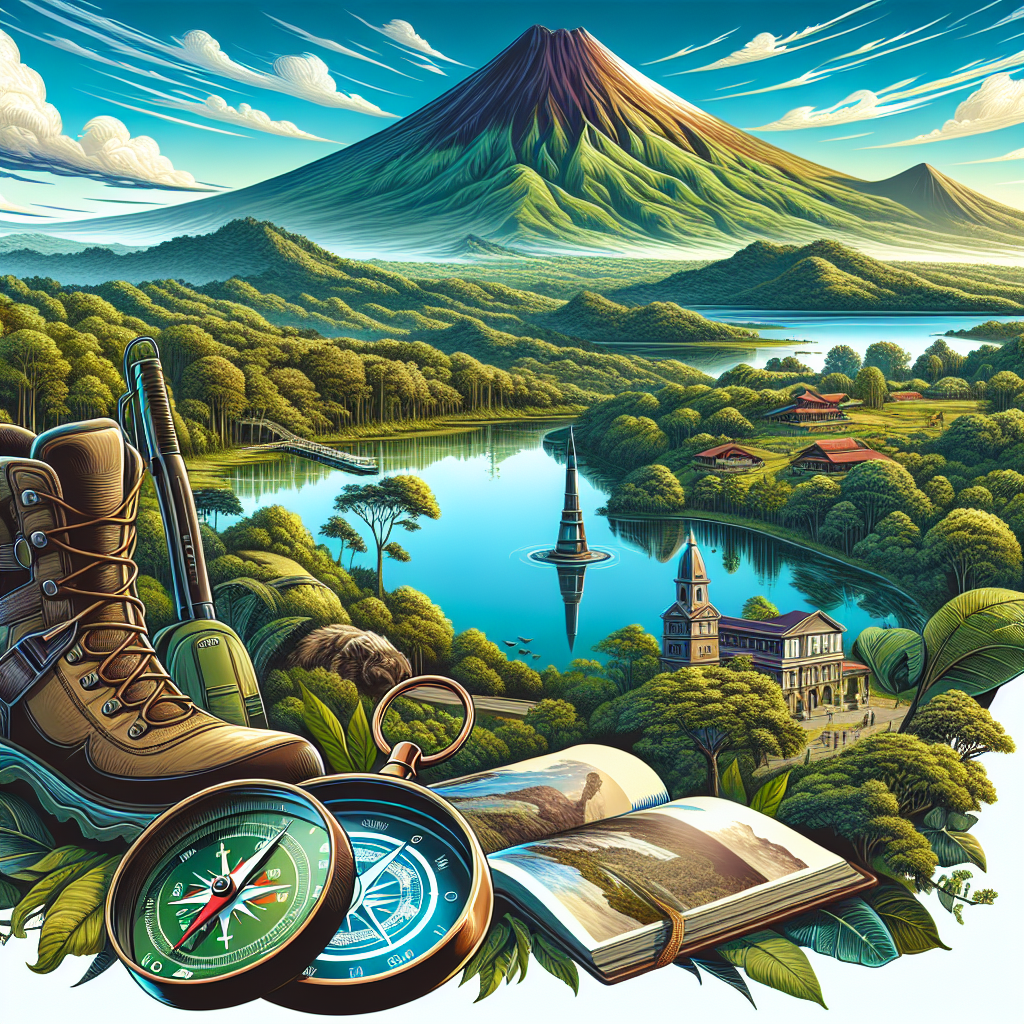
Are There Any Specific Travel Advisories For Nicaragua?
Planning a trip to Nicaragua? Wondering about any specific travel advisories for this beautiful Central American country? Look no further! This article will provide you with all the essential information you need to know before embarking on your adventure. From safety precautions to current travel alerts, we’ve got you covered. So pack your bags, grab your passport, and let’s explore Nicaragua together!
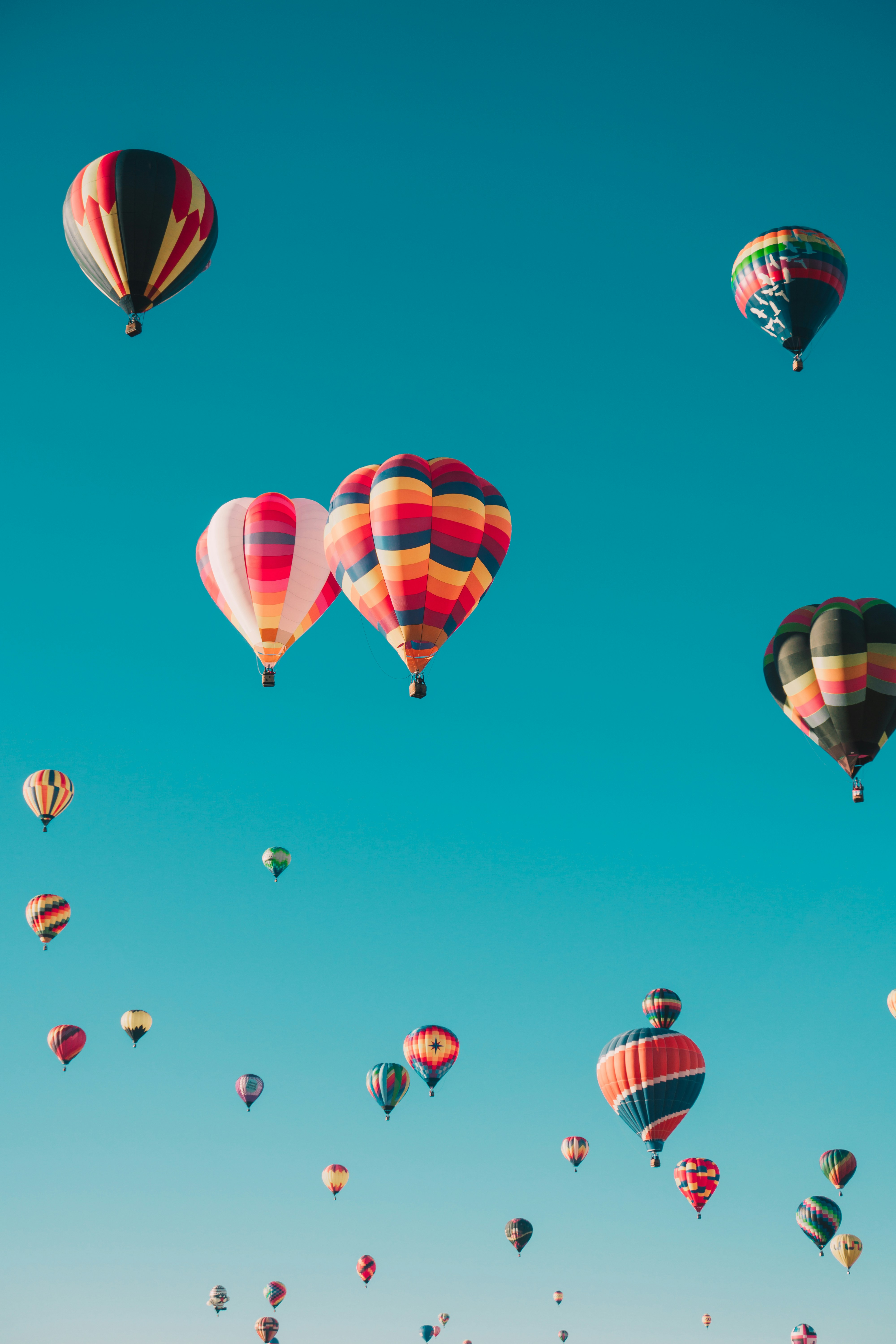
Table of Contents
Overview of Travel Advisories
General travel advisory for nicaragua.
If you are planning a trip to Nicaragua, it is important to stay informed about the current situation and be aware of any potential risks. While Nicaragua is known for its beautiful landscapes and rich culture, there are certain considerations that you should keep in mind to ensure a safe and enjoyable trip.
Political and Social Unrest
Political demonstrations.
Nicaragua has experienced periods of political unrest and demonstrations in recent years. These demonstrations can be intense and may turn violent. It is advisable to avoid participating in or being present at any political demonstrations to minimize your risk of harm. Keep in mind that the situation can change rapidly, so it is essential to stay updated on the current political climate.
Civil Unrest and Protests
In addition to political demonstrations, civil unrest and protests can occur throughout Nicaragua. These events can lead to road closures and disruptions in public services. It is best to avoid areas where protests are taking place and to stay away from any large gatherings or crowds to maintain your safety.
Avoidance of Large Gatherings
To safeguard your well-being, it is recommended to avoid large gatherings, rallies, or other public events. These gatherings can be unpredictable and may escalate into confrontations or violence. By keeping a safe distance and steering clear of such situations, you can reduce the likelihood of encountering any potential risks.
Stay Informed about the Current Situation
It is crucial to stay updated on the current situation in Nicaragua by regularly monitoring news sources and travel advisories. Familiarize yourself with the local laws, regulations, and customs to ensure that you are aware of any changes or potential risks. Being informed will empower you to make informed decisions and take necessary precautions during your travels.

Violent Crime and Safety
Street safety and pickpocketing.
Like in any country, it is important to be conscious of your surroundings and take precautions to avoid becoming a victim of street crime. Petty theft, including pickpocketing, can occur in busy tourist areas, crowded markets, and public transportation. Keep your valuables secure, be mindful of your belongings at all times, and avoid displaying signs of wealth to minimize the risk of being targeted.
Armed Robbery and Express Kidnapping
While violent crime rates in Nicaragua are relatively low compared to some other countries, armed robberies and express kidnappings can still occur. These incidents typically target both locals and tourists, and they may involve the use of weapons. Ensure that you take appropriate measures to protect yourself, such as avoiding poorly lit or isolated areas and not displaying expensive items or large amounts of cash.
Criminal Gangs and Drug Violence
Nicaragua, like many other countries, has criminal gangs involved in drug trafficking and other illicit activities. These gangs can be involved in violence and should be avoided. Stay away from areas known for drug-related violence and exercise caution when interacting with strangers. It is always recommended to maintain a low profile and be aware of your surroundings to minimize any potential risks.
Precautions for Solo Travelers and Women
While Nicaragua can be a great destination for solo travelers, it is important to take extra precautions. Solo travelers, especially women, should be aware of their surroundings and avoid walking alone at night. It is also advisable to inform someone of your travel plans and regularly check in with them for added security. Consider using reputable transportation services and staying in well-reviewed accommodations to ensure your safety.
Avoid Travel at Night
To reduce the risk of encountering unsafe situations, it is recommended to avoid traveling at night. Many areas, particularly in rural regions, may lack proper lighting and infrastructure, making them more prone to accidents or criminal activities. Plan your journeys accordingly, allowing ample time to reach your destination before dark, or consider staying overnight in a secure location if necessary.
Road Travel and Transportation
Road conditions and driving standards.
When using the road network in Nicaragua, be aware that road conditions may vary, especially in rural areas. Some roads may be poorly maintained, lacking proper signage and lighting. It is advisable to drive cautiously, adhere to local traffic laws, and be prepared for unexpected obstacles or hazards. It may be helpful to familiarize yourself with the route and have a reliable map or navigation system for guidance.
Public Transportation Safety
Public transportation options, such as buses, are commonly used in Nicaragua. However, exercise caution when using these services, especially in crowded or unfamiliar areas. Keep an eye on your belongings at all times and be vigilant for any suspicious activity. If possible, consider using taxis or other reputable private transportation services for added safety and convenience.
Renting Vehicles and Motorcycles
Renting a vehicle or motorcycle can provide flexibility and independence while exploring Nicaragua. If you plan to rent, ensure that you select a reliable rental company with proper insurance coverage. Familiarize yourself with local driving regulations and road signage, as they may differ from your home country. Always wear a helmet if riding a motorcycle and understand the risks associated with two-wheeled transportation.
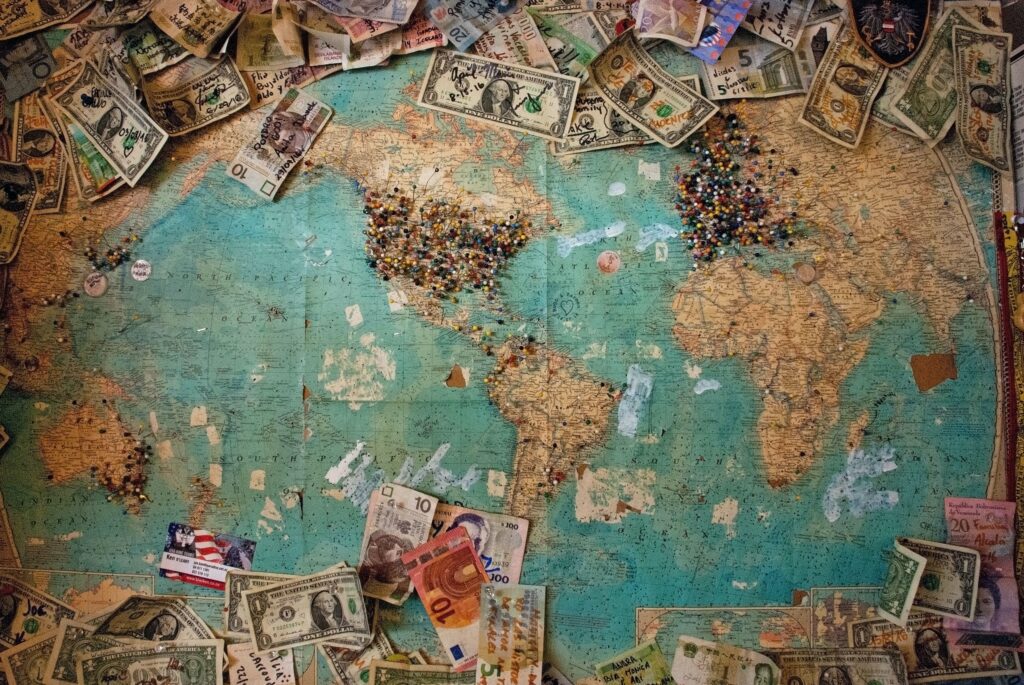
Natural Disasters and Climate
Hurricane season and tropical storms.
Nicaragua is susceptible to hurricanes and tropical storms, particularly from June to November during the hurricane season. These weather events can result in heavy rainfall, flooding, strong winds, and potential damage to infrastructure. Stay informed about weather updates and heed any warnings or evacuation notices issued by local authorities. If traveling during this season, consider purchasing travel insurance that covers trip interruptions or cancellations due to severe weather conditions.
Volcanoes and Earthquakes
Nicaragua is home to several active volcanoes, and earthquakes are not uncommon due to its location along the Pacific Ring of Fire. Stay updated on volcanic activity and be prepared for the potential impact it may have on your travel plans. Additionally, earthquakes can occur with little warning. Familiarize yourself with safety procedures in the event of an earthquake and follow any instructions provided by local authorities.
Health Risks and Disease Prevention
As with any travel destination, it is important to be aware of potential health risks and take necessary precautions. Ensure that you are up to date on routine vaccinations and consider additional vaccinations recommended specifically for Nicaragua. Mosquito-borne diseases, such as dengue fever and Zika virus, are prevalent in the country, so use appropriate insect repellents, wear long sleeves and pants, and sleep under mosquito nets when necessary. It is also advisable to drink bottled or filtered water and practice good hygiene to prevent food and waterborne illnesses.
Border Areas and Remote Regions
Border security and violence.
Nicaragua shares borders with Honduras and Costa Rica, and there have been occasional security concerns in these border areas. It is advisable to cross the borders at official checkpoints and during daylight hours. Stay alert, keep your important documents secure, and follow instructions from border officials. Avoid any involvement with smuggling or illegal activities that can lead to serious consequences.
Restricted Access Areas
Certain regions in Nicaragua may have restricted access due to ongoing conflicts, land disputes, or other safety concerns. Pay attention to any travel warnings or advisories that have been issued by local authorities or foreign embassies. It is strongly recommended to respect these restrictions and avoid entering restricted areas to ensure your safety and maintain good relations with local communities.
Safety in Remote Regions
If you plan to explore remote regions of Nicaragua, it is important to take extra precautions. These areas may lack basic infrastructure, including medical facilities and reliable communication networks. Plan your itinerary carefully, inform someone of your travel plans, and consider traveling with a reputable guide or tour operator who is familiar with the area. Additionally, ensure that you have sufficient supplies, including water, food, and any necessary equipment for your journey.
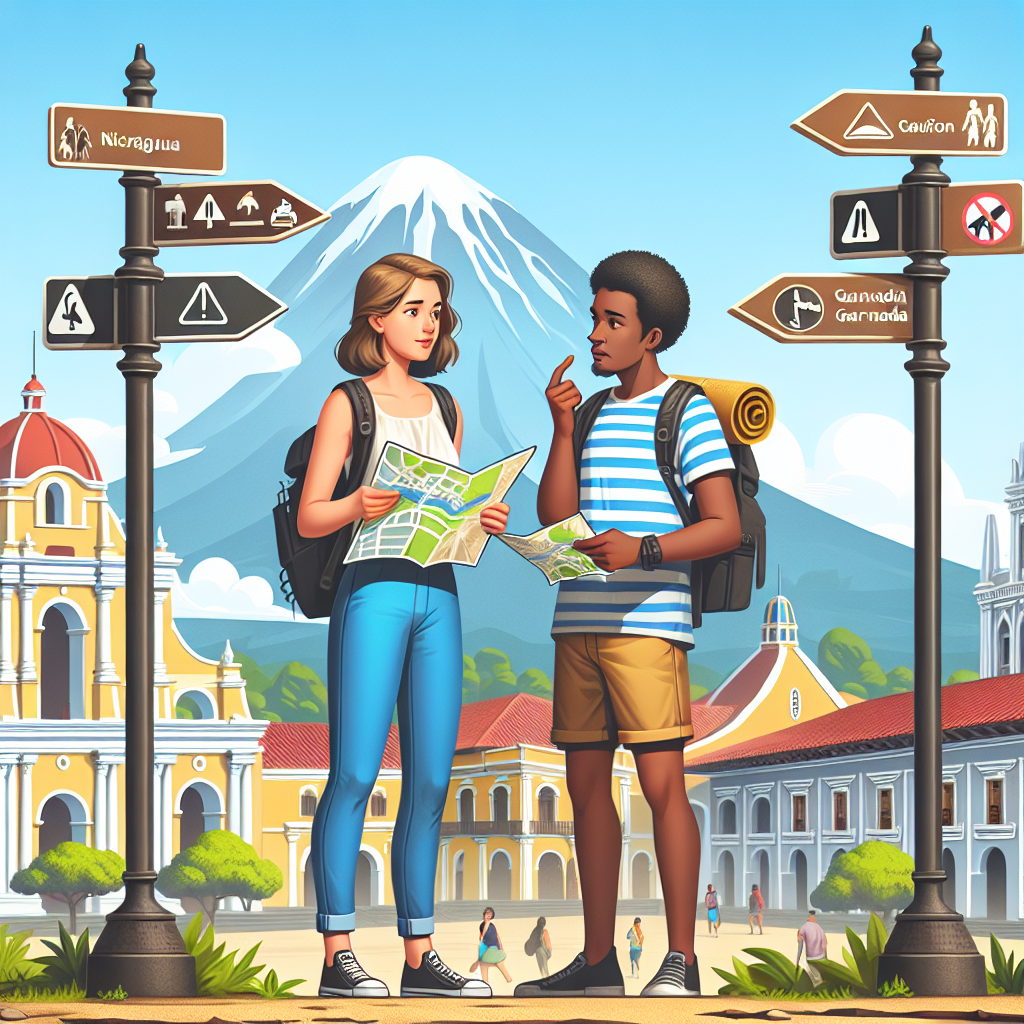
Terrorism Threats
No known terrorism threats.
Nicaragua is not currently experiencing any known terrorism threats. However, it is always important to remain vigilant and report any suspicious activities or individuals to local authorities. Stay informed about the security situation in the country by monitoring official travel advisories and maintaining regular contact with your embassy or consulate.
COVID-19 Travel Advisory
Covid-19 entry requirements and restrictions.
Due to the ongoing global COVID-19 pandemic, Nicaragua has implemented various entry requirements and restrictions. These measures aim to protect public health and minimize the spread of the virus. Ensure that you are familiar with the latest entry requirements, such as required testing, vaccination certificates, and quarantine protocols, before planning your trip. Check with your airline or travel agent for specific information regarding COVID-19 travel restrictions.
Health and Safety Measures
To protect yourself and others from COVID-19 while traveling in Nicaragua, it is important to follow recommended health and safety measures. This includes practicing good hand hygiene, wearing face masks in public areas, maintaining physical distance from others, and avoiding crowded places. Stay updated on the local situation regarding COVID-19 and comply with any regulations or guidelines set forth by the Nicaraguan health authorities.
Travel Insurance Coverage
Given the uncertainties surrounding travel during the pandemic, it is advisable to obtain travel insurance that provides coverage for COVID-19-related disruptions. This may include trip cancellations or interruptions due to illness, quarantine requirements, or other unforeseen circumstances. Review the terms and conditions of your travel insurance policy to ensure that it meets your needs and provides adequate coverage for potential COVID-19-related incidents.
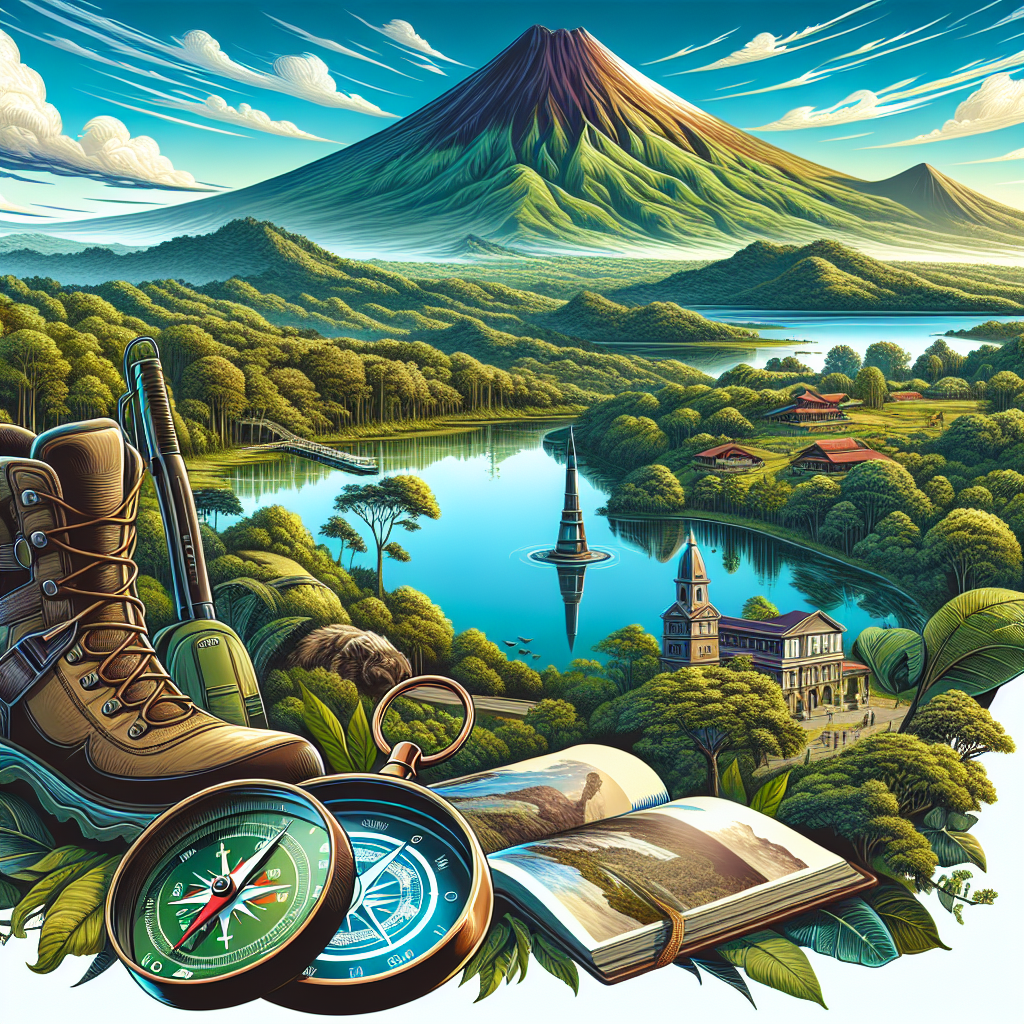
Travel Advisory Sources
Government travel advisories.
Government travel advisories are an important source of information for travelers. Various countries, including the United States, Canada, the United Kingdom, and Australia, provide travel advisories specifically tailored to Nicaragua. These advisories offer up-to-date information on security risks, health concerns, and other important travel considerations. It is recommended to consult the travel advisories issued by your government before and during your trip.
Embassy and Consulate Information
Embassies and consulates can provide valuable assistance and support to citizens traveling abroad. Ensure that you have the contact information for your country’s embassy or consulate in Nicaragua in case of emergencies or if you require consular services. They can offer guidance regarding local laws and regulations, provide assistance in case of lost or stolen documents, and offer support during unforeseen circumstances.
Local Authorities and Tourist Offices
Local authorities and tourist offices can be excellent sources of information for travelers. They can provide insights into local safety and security matters, offer recommendations for tourist attractions, and provide guidance on cultural norms and customs. Take advantage of the resources available through local authorities and tourist offices to enhance your travel experience and ensure your safety.
When traveling to Nicaragua, it is essential to stay informed and follow travel advisories to mitigate potential risks. Personal safety should be a priority, and taking necessary precautions can help ensure a safe and enjoyable trip. Be mindful of your surroundings, avoid risky situations, and stay updated on the current situation in the country. By practicing responsible travel and respecting local customs, you can have a positive experience while exploring the beauty and culture of Nicaragua.
Winter is here! Check out the winter wonderlands at these 5 amazing winter destinations in Montana
- Plan Your Trip
- Safety & Insurance
Is Nicaragua Safe To Travel?
Published: September 5, 2023
Modified: January 3, 2024
by Harriet Moeller
- Central & South America
- Travel Destinations
- Travel Guide
Introduction
Welcome to Nicaragua, a country known for its rich history, vibrant culture, and breathtaking landscapes. As you plan your trip to this Central American gem, it’s natural to have concerns about your safety. In this article, we will delve into the safety situation in Nicaragua and provide you with the information you need to make an informed decision about whether it is safe to travel there.
Nicaragua offers a unique travel experience, from exploring colonial cities like Granada and Leon to lounging on the pristine beaches of the Pacific and Caribbean coasts. However, like any destination, it’s important to be aware of the potential risks and take necessary precautions to ensure a safe and enjoyable trip.
Before we delve into the safety situation, it’s important to note that travel advisories and safety conditions can change over time. It is crucial to stay up-to-date with the latest information from reputable sources such as your country’s foreign affairs office or embassy.
Now, let’s take a closer look at the current safety situation in Nicaragua to help you make an informed decision about your travel plans.
Safety Situation in Nicaragua
When it comes to safety, Nicaragua has seen significant improvements in recent years. However, it is essential to stay informed about the current situation before traveling to the country. Nicaragua is generally considered safe for tourists, but it is crucial to exercise caution and be aware of potential risks.
Crime Rate:
Nicaragua has a relatively high crime rate, especially in urban areas and tourist hotspots. Petty theft and pickpocketing are common, so it is important to be vigilant with your belongings at all times. Avoid displaying valuable items and be cautious in crowded places, such as markets and public transportation.
Political Stability:
Nicaragua experienced significant civil unrest in 2018, which affected the country’s political stability. The situation has since improved, but periodic protests and demonstrations may still occur. It is essential to stay informed about the current political climate and avoid participating in any potentially volatile gatherings.
Natural Disasters:
Nicaragua is prone to natural disasters, including earthquakes, hurricanes, and volcanic activity. Before your trip, familiarize yourself with the emergency procedures and evacuation routes specific to the areas you plan to visit. Stay updated on weather conditions and heed any warnings or advisories issued by local authorities.
In rural areas, access to healthcare facilities may be limited. It is advisable to have travel insurance that covers medical emergencies and evacuation if needed. Additionally, make sure to have a contingency plan in place in case of any unforeseen circumstances.
By staying informed, being cautious, and taking necessary precautions, you can minimize the risks and enjoy a safe and memorable trip to Nicaragua.
When visiting Nicaragua, it’s important to be aware of the country’s crime rate, as it can vary depending on the location and time of day. Petty theft and pickpocketing are the most common crimes targeting tourists, particularly in crowded areas such as markets, bus stations, and popular tourist attractions.
To reduce the risk of becoming a victim of theft, take the following safety measures:
- Avoid wearing flashy jewelry or displaying expensive electronic devices.
- Keep your belongings close to you, preferably in a secured bag or backpack.
- Be cautious when using ATMs and avoid carrying large sums of cash.
- Use reputable transportation services or designated taxis, especially at night.
- Be vigilant in crowded areas and be aware of your surroundings at all times.
It is also important to note that armed robberies and violent crimes can occur, although they are less common. In the event of a robbery or any threatening situation, it is recommended to comply with the perpetrator’s demands to ensure personal safety.
It’s advisable to stay in well-established accommodations that have security measures in place, such as gated entrances, security guards, and in-room safes. These precautions provide an added layer of protection for your valuables.
When exploring the city, consider joining a guided tour or hiring a reputable local guide who can provide valuable insights and ensure your safety. Traveling in numbers is also a good idea as it deters potential criminals.
Lastly, it’s prudent to familiarize yourself with the emergency contact numbers and addresses of your country’s embassy or consulate in Nicaragua. In the event of any incident or emergency, they can provide assistance and support.
By taking these precautions and remaining alert, you can minimize the risk of falling victim to crime while visiting Nicaragua and enjoy your trip with peace of mind.
Political Stability
Nicaragua experienced a period of civil unrest in 2018 that affected the country’s political stability. While the situation has improved since then, it is essential to stay informed about the current political climate and any potential gatherings or protests that may occur during your visit.
Periodic protests and demonstrations still take place in some areas, and they can sometimes turn violent. It is advisable to avoid participating in any political gatherings or public demonstrations. Instead, focus on enjoying the cultural and natural attractions that Nicaragua has to offer.
Before traveling, consult reliable sources such as your country’s foreign affairs office or embassy for updated information on the political situation in Nicaragua. Registering with your embassy or consulate is also beneficial as they can provide you with important safety advisories and assistance in case of any emergencies.
In general, it is recommended to exercise caution, remain alert to your surroundings, and avoid engaging in any discussions or activities that may be seen as politically sensitive. Respect the local customs and traditions, and be mindful of any cultural sensitivities to maintain a positive and safe travel experience.
It should be noted that the vast majority of visitors to Nicaragua experience no problems related to political instability. However, staying informed and prepared can help ensure a smooth and enjoyable trip.
Rest assured, Nicaragua offers incredible sights, warm hospitality, and a chance to immerse yourself in its vibrant cultures. By staying informed and making informed choices, you can have a memorable and safe visit to this beautiful country.
Natural Disasters
Nicaragua is located in a region prone to various natural disasters, including earthquakes, hurricanes, and volcanic activity. It is important to be aware of these potential hazards and take necessary precautions to ensure your safety during your visit.
Earthquakes:
Nicaragua lies on the Pacific Ring of Fire, making it susceptible to seismic activity. While major earthquakes are rare, smaller tremors can occur. It’s a good idea to familiarize yourself with earthquake safety procedures, such as finding shelter under a sturdy piece of furniture or in a doorway, and staying away from windows and objects that could potentially fall.
Hurricanes:
During the hurricane season, which typically runs from June to November, Nicaragua can be susceptible to tropical storms and hurricanes. Pay close attention to weather forecasts and any warnings or advisories issued by local authorities. If a hurricane is approaching, follow evacuation orders and seek shelter in designated areas away from coastal regions.
Volcanic Activity:
Nicaragua is home to several volcanoes, including the highly active Momotombo and Masaya volcanoes. It is advisable to monitor the latest reports from the Nicaraguan Institute of Territorial Studies (INETER) as well as local authorities for any volcanic activity updates. Avoid venturing too close to volcanic areas unless accompanied by experienced guides and observing safety guidelines.
In addition to these specific natural hazards, Nicaragua also experiences heavy rains, which can lead to flash floods and landslides, especially in mountainous areas. Stay informed about the weather conditions and heed any warnings or advisories issued by local authorities to ensure your safety.
It’s recommended to have travel insurance that covers natural disasters and provides medical evacuation if necessary. Make sure to research and choose a policy that suits your needs and includes coverage for unforeseen events.
By staying informed about potential natural hazards and following the guidance of local authorities, you can have a safe and enjoyable visit to Nicaragua while experiencing the stunning natural beauty that the country has to offer.
Safety Tips for Traveling in Nicaragua
While Nicaragua offers incredible experiences for travelers, it is important to prioritize your safety during your trip. Here are some essential safety tips to keep in mind:
- Research and plan your itinerary in advance. Familiarize yourself with the areas you will be visiting and the safest ways to get around.
- Stay informed about the current safety situation in Nicaragua by checking official travel advisories and consulting reliable sources such as your country’s foreign affairs office or embassy.
- Be cautious with your belongings. Keep your valuables secure, be mindful of your surroundings, and avoid displaying expensive items.
- Use reliable transportation services and official taxis. If possible, book transportation in advance or arrange it through reputable tour operators.
- Keep a copy of your important documents, such as your passport and travel insurance information. Leave another set of copies with a trusted person at home.
- Respect the local culture and customs. Be aware of and follow any dress codes or traditions, especially when visiting religious or sacred sites.
- Take precautions against mosquitos. Nicaragua is a tropical country, so ensure you have appropriate mosquito repellent, use mosquito nets if necessary, and wear long sleeves and pants in high-risk areas.
- Stay hydrated and protect yourself from the sun. Nicaragua can have high temperatures, so drink plenty of water, wear sunscreen, and seek shade when needed.
- Stay updated on weather conditions. Nicaragua experiences various weather patterns, so be prepared for changes and follow any advisories or warnings related to hurricanes, tropical storms, or other severe weather events.
- Consider joining organized tours or hiring local guides who are familiar with the area and can provide valuable insights and additional safety measures.
- Trust your instincts. If a situation or location feels unsafe, it is best to remove yourself from it and seek assistance.
Remember, these tips are meant to enhance your safety, but they should not discourage you from exploring and enjoying all that Nicaragua has to offer. With proper preparation and awareness, you can have a memorable and safe trip to this beautiful country.
As you plan your trip to Nicaragua, it is natural to have concerns about safety. However, by staying informed, taking necessary precautions, and being mindful of your surroundings, you can have a safe and enjoyable experience in this beautiful country.
While Nicaragua has seen improvements in its safety situation in recent years, it is important to be aware of potential risks. Crime, political stability, and natural disasters are factors to consider when evaluating the safety of your travel plans.
It is recommended to research and stay updated on the latest travel advisories from credible sources such as your country’s foreign affairs office or embassy. Registering with your embassy or consulate is also a prudent step to receive important safety alerts and support in case of emergencies.
When in Nicaragua, take precautions such as being vigilant with your belongings, using reliable transportation, respecting local customs, and staying informed about weather conditions. By doing so, you can reduce the risk of falling victim to crime, navigate potential political events, and prepare for natural disasters.
Remember, no destination can guarantee absolute safety, and risks can change over time. It is crucial to exercise common sense, trust your instincts, and stay informed throughout your trip.
Ultimately, Nicaragua offers incredible experiences and natural wonders that make it a worthwhile destination to explore. By balancing adventure with caution, you can create lasting memories while prioritizing your safety.
So go ahead, pack your bags, and embark on an exciting journey in Nicaragua, knowing that you have taken the necessary steps to ensure your well-being. Bon voyage!

- Privacy Overview
- Strictly Necessary Cookies
This website uses cookies so that we can provide you with the best user experience possible. Cookie information is stored in your browser and performs functions such as recognising you when you return to our website and helping our team to understand which sections of the website you find most interesting and useful.
Strictly Necessary Cookie should be enabled at all times so that we can save your preferences for cookie settings.
If you disable this cookie, we will not be able to save your preferences. This means that every time you visit this website you will need to enable or disable cookies again.
10 Safest Cities in Nicaragua
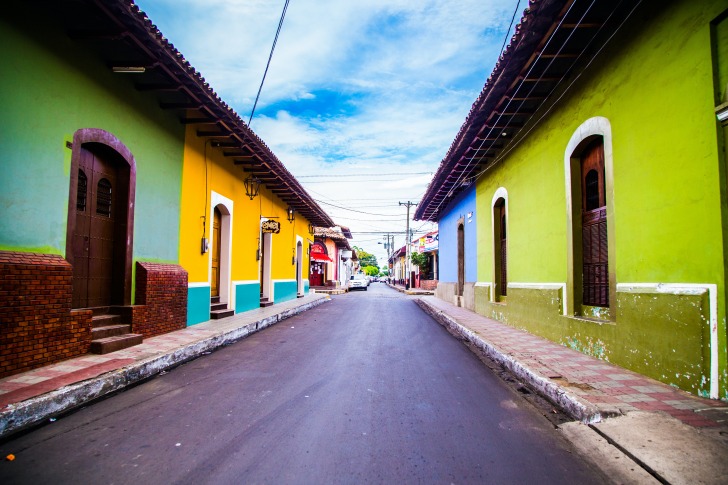
I found mixed results when trying to find out if Nicaragua is safe.
Some sources say it’s one of the least dangerous places in the world, but the government says to “reconsider traveling here.”
Even in what I found out is supposedly the 10 safest cities in Nicaragua, there are problems.
However, you can still enjoy visiting here in some locations with minimal threats.
2. Leon
3. matagalpa, 4. san juan del sur, 5. las penitas , 6. popoyo beach, 7. el transito, 8. the corn islands , 9. ometepe island , 10. jinotega, 1. don’t hike on volcanoes or remote areas alone. , 2. beware of remaining landmines. , 3. avoid traveling after dark if at all possible. , 4. swim in dangerous waters at your own risk. , 5. use life preservers if you do swim. , nicaragua safety overview, what cities should you avoid in nicaragua, is nicaragua a safe country overall, is any part of nicaraqua’s capital city safe.
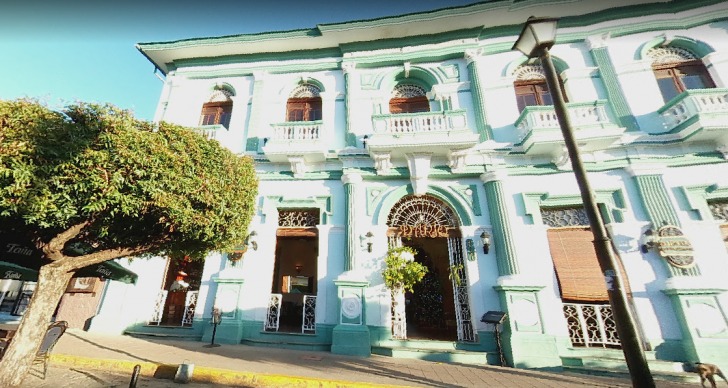
Violent crime rates, such as assault and armed robbery, are rated “low” according to Numbeo.
You also won’t have to worry as much about mugging or robberies, as that risk is low too.
If you bring your car, you won’t have to worry too much about people stealing it.
The overall Granada safety index is approximately 57.61 out of 100.
The major crime you may concern yourself with while here is corruption and bribery.
I take that to mean you won’t have many problems here if you mind your own business.
Just appreciate Granada for what it offers.
For instance, it has its own Central Park, and it even has carriage rides like New York Central Park has.
A historic site you might appreciate is the Old Railway Station. Of course, it also has 73 kilometers (45 miles) of beaches.
Some places you’ll find coastal relaxation spots in Granada include Almuñécar, Motril, La Herradura, and Salobreña.
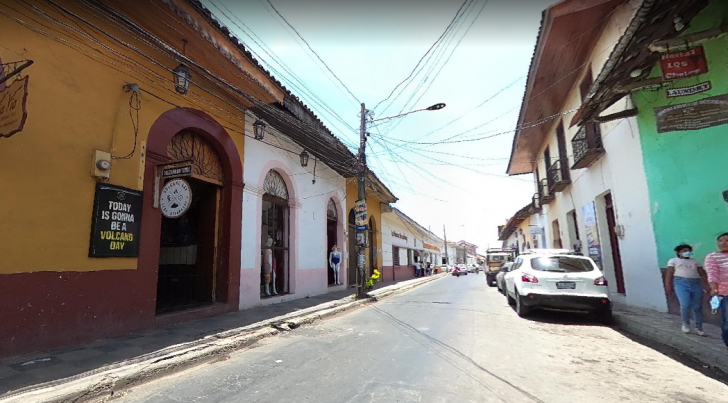
The safety index in Leon is lower than in other locations, including Granada.
However, you won’t have to worry about physical attacks because of your ethnic origin, religion, gender, or skin color.
The crime rate for this specific offense is near zero (very low, 5%).
People come to Leon, Nicaragua to enjoy both the active downtown life and the beaches.
For example, you can shuttle to Las Peñitas and Poneloya coastal locations and back.
This area also has the Illiom Club, Hotel Santa Rosa , and La Esquina.
At these nightclubs, you can enjoy dining and entertainment.
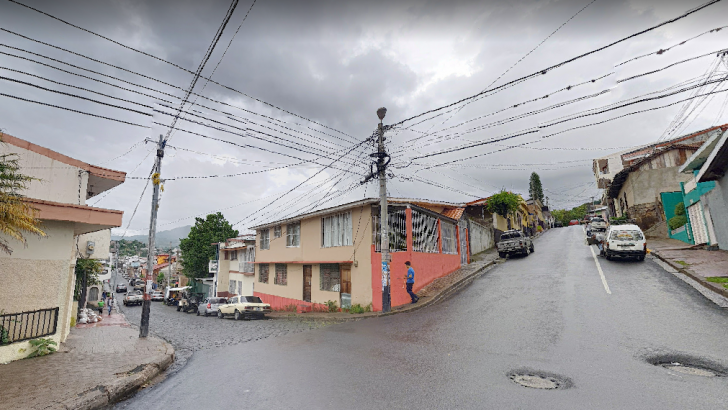
I included Matagalpa because it’s a popular destination and a capital city with a history you can’t avoid.
After further review, I recommend The Aquila Biological Farm right outside of the city, which one visitor regarded as “lovely and clean and safe.”
It’s only about a 15-minute walk from the city center.
I’m not sure how crime-free the Mirador El Calvario and Cerro Apante lookout points are.
However, my experience with nature is that it seems that fewer crimes occur in them than in densely populated areas.
As long as no one has the motive to hurt you, you should be fine here.
Aside from that, the Matagalpa safety index measures about 65.69 out of 100, which means a high percentage of crime occurs here.
Physical attacks because of how you worship/what you believe and your gender are very low (15%) though.
You also don’t have to worry as much about violence because of your ethnic origin or skin color either.
This area, for some reason, also doesn’t like to insult people.
Violent crimes are fairly low (35% of 100).
Muggings, robberies, and car thefts do occur, but the likelihood is at least fairly low (35%).
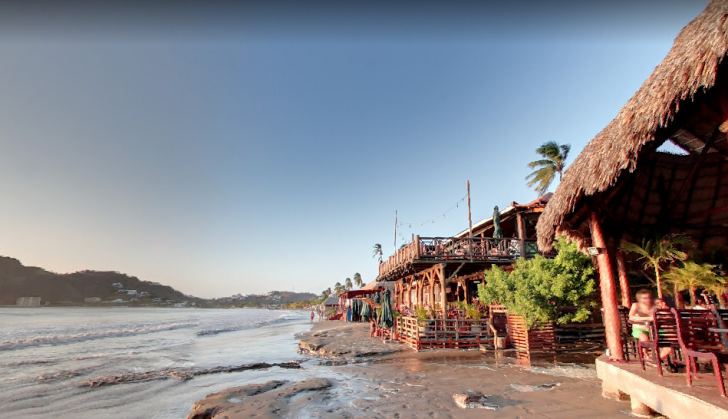
Where there are people, there’s always bound to be some crime.
However, there’s also some chance of safety in numbers.
Never go anywhere alone if at all possible.
Never fear asking for help if you need it either.
If you are traveling solo, keep a distance from people, and don’t underestimate your instincts about who to trust.
There’s nothing wrong with making new friends, but don’t go anywhere alone with anyone you’re not sure you know that well.
If you want to stay safe in San Juan, stick with the simplest activities.
For instance, I have seen pictures of the sunset on the beach.
However, note that other people who have been to this location’s beach will suggest traveling by motorbike away from town to another beach.
I don’t know which ones are the safest, but here’s a guide on some of the best ones.
That’s one place I’d like to be instead of a crowded nightclub, although I do admit to having been out dancing a time or two in my life too.
If I were to go to a bar these days, it would be to sing karaoke, which I love to do.
You can do that at Dorado’s Bar & Grill
Other bars, such as the El Timon, or the Carreta Bar, play live music.
I did find out, however, that most of the entertainment takes place right on the beach, so look there for a show.
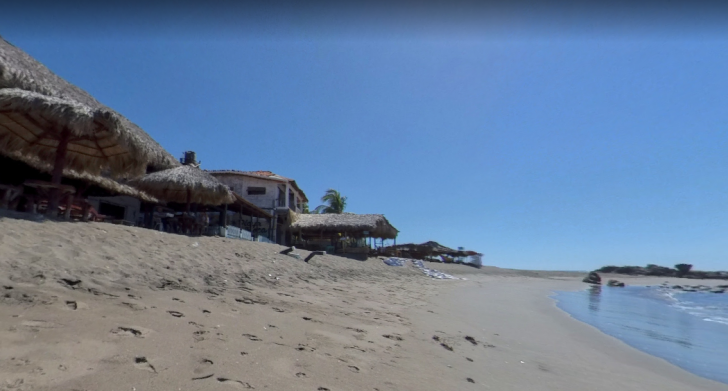
Las Penitas sounds like a nice place according to the way I just had it described to me.
Dusty Roads describes it as a place for people who aren’t a fan of staying in urban centers.
It’s quieter here than in Leon, so it may work for you.
Quiet doesn’t always mean less crime.
However, I would typically take a chance on a small community like this.
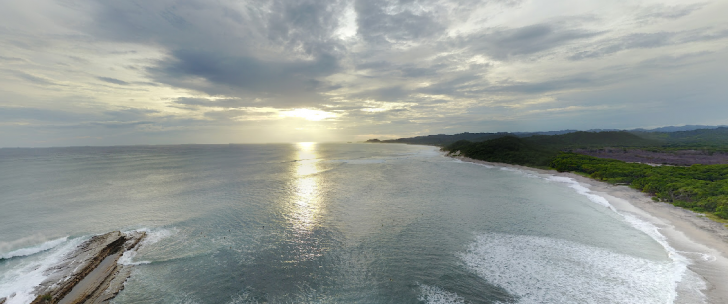
Popoyo Beach has earned a reputation for its “best surfing” spots, at least unofficially.
I wouldn’t suggest going to some of this location’s shores past sunset by yourself though.
You won’t find many lights in some locations.
If you’re with a group that feels adventurous, you might need a flashlight.
Don’t bring your phone down to the beach though, if you don’t want to risk theft.

Located about an hour’s drive from Managua , El Transito is considered an “innocent, safe, and wholesome” community.
That’s what the Nicaragua Initiative for Community Advancement (NICA) says about it.

The Corn Islands sound to me like one of the safest places you can visit in Nicaragua.
Little Corn might have more violence on it than Big Corn.
I suggest looking at where you’re going and planning your visit according to local safety maps.
What’s more, be careful with whom you share your GPS location.
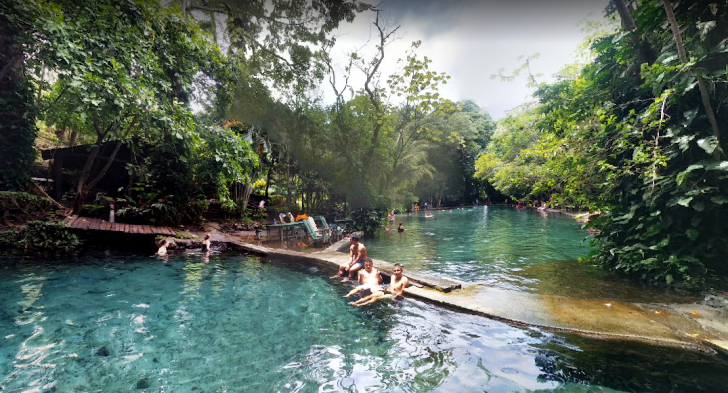
Ometepe Island is known as one of the safest places to swim in Nicaragua.
It may seem more remote than some travelers prefer.
I personally don’t mind a secluded spot at least temporarily.
I eventually would like to return to civilization, however.
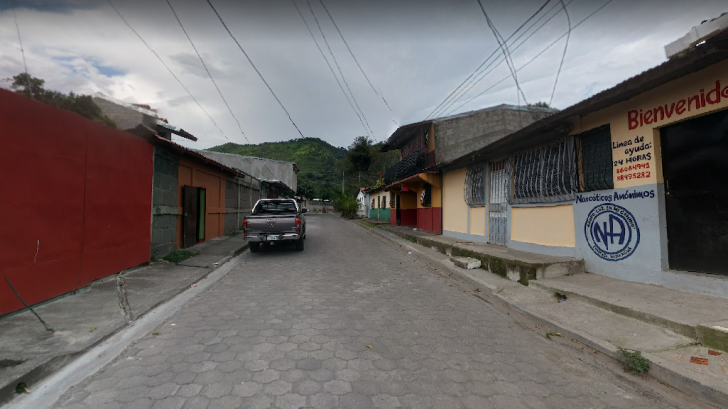
It has quite a few hiking trails around it.
For instance, you could try out the Cordillera Isabelia, a nature preserve, or the Pena De La Cruz, a mountain that reaches 800 meters.
Apparently, the “most adventurous time” to visit Jinotega is December through February.
5 Safety Tips for Traveling to Nicaragua
Much of the Nicaragua travel safety advice pertains to the land and using safety when in remote areas.
It’s to avoid injuries from accidents in most cases. You can heed these instructions in open areas too.
One area you shouldn’t explore by yourself is the North Atlantic Autonomous Region (RAAN).
It’s quite remote.
Even dormant volcanoes can erupt at any time, so beware.
Whether dormant or not, you probably have heard of the Masaya volcano.
Visitors do not seem to have much of a problem accessing this one but stay alert.
Whether it be that one, San Cristobal, or another, be careful.
Attend guided tours if you’re traveling alone.
Nicaragua has dismantled some of the landmines that used to occur in some rural locations.
Regardless, it’s best to still use caution when veering off primary driving routes.
Some may still exist in certain locations.
Armed groups may show up when you least expect it.
That’s one reason.
Some roads also don’t have street lights between the larger cities.
Small towns may have streetlights, but they’re not as bright as in the main metro areas.
Overall, road conditions in Nicaragua are also poor.
People often ignore traffic signals too.
Watch out, and driving with alcohol in the system is also common here too.
Some of Nicaragua’s beaches don’t have signs warning people of the strong coastal winds.
You’re on your own when participating in swimming or water sports here.
I wouldn’t bother if I were you unless you’re trained to watch for danger like the Coast Guard is.
If you hear of a designated swimming area that people call “safe,” use a life preserver anyway.
You can never be too sure.
READ THE FULL REPORT: Nicaragua Safety Review
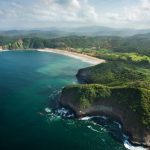
- OVERALL RISK: MEDIUM
- TRANSPORT & TAXIS RISK: MEDIUM
- PICKPOCKETS RISK: HIGH
- NATURAL DISASTERS RISK: MEDIUM
- MUGGING RISK: HIGH
- TERRORISM RISK: LOW
- SCAMS RISK: HIGH
- WOMEN TRAVELERS RISK: MEDIUM
Frequently Asked Questions
Unfortunately, I found out that many sections of Managua aren’t safe.
If you want to visit because of this location’s history and culture, I suggest an organized walking or riding tour when walking around this location’s metro areas.
Tourism safety is quite high.
That’s because you don’t have to deal with corrupt people if you’re not there every day.
Not everyone is “bad” here though.
Just be careful who you talk to and associate with (like I already said before).
You won’t have much of a problem near most tourist landmarks.
Guided tour groups can provide you with extra security.
In any case, use common sense and watch who you associate with if you veer away from typical tourist activities in Managua.
Additional Resources
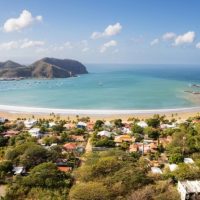
5 Comments on 10 Safest Cities in Nicaragua
i lived in san juan del sur for about 10 years. no problems. I use the airport in liberia. CR. I don’t go to Managua.
Nicaragua may have some safety concerns, but there are still many enjoyable and safe places to visit, as long as you use caution and common sense in your travels.
Granada is a hidden gem and it is a safe place too. I spent a week there and was impressed by the place and friendly locals, making it a top choice for travelers.
Masaya is often overlooked, but it’s one of the safest cities I’ve explored in Nicaragua. The markets and cultural sites felt secure, and I enjoyed the authenticity of the local experience.
Managua has its charm, and safety was never a concern during my stay. The city’s efforts to enhance security make it an increasingly popular destination for those looking to discover Nicaragua.
Leave a Comment Cancel reply
Popular destinations.

Safety Index
Recent reviews & comments.
- Rodrigo on Zihuatanejo
- Mike on Nevada
- Anonymous on 17 Pros and Cons of Living in the UK
- Christian Lowe on Grand Junction
- Andrew Lang on Grand Junction
Popular US States
- Pennsylvania
We’re sorry, this site is currently experiencing technical difficulties. Please try again in a few moments. Exception: request blocked

Travel Guide
- Things to Do
- Getting Around
- Special-Interest Vacations
- Sustainable Travel & Ecotourism
- Health & Safety
- Getting There
- Tips for Families
- Entry Requirements & Customs
- Tips for Gay and Lesbian Travelers
- Tips for Single Travelers
- Tips for Travelers with Disabilities
- Staying Connected
- Volunteering
- Active Pursuits
- Suggested Itineraries
Health & Safety in Nicaragua
Contaminated water and food, as well as mosquitoes, are the usual sources of discomfort in Nicaragua (and El Salvador). Always be careful about what you eat and insist on bottled water. As for those pesky mosquitoes, a good repellent with DEET should be enough to keep off bugs that bear unwanted gifts such as dengue fever and malaria. Go to www.cdc.gov for more specific info on malaria hot spots (usually rural areas). Vaccinations in general are not required, unless you are traveling from a yellow-fever zone. Nevertheless, you should always have up-to-date jabs for diphtheria, measles, tetanus, mumps, rubella, and polio. The CDC also advises travelers to vaccinate against Hepatitis A and B.
Before You Go
It can be hard to find a doctor you can trust when you're in an unfamiliar place. Try to take proper precautions the week before you depart to avoid falling ill while you're away from home. Amid the last-minute frenzy that often precedes a vacation, make an extra effort to eat and sleep well.
Pack prescription medications in their original labeled containers in your carry-on luggage. Also, bring along copies of your prescriptions in case you lose your pills or run out. Carry written prescriptions in generic form, in case a local pharmacist is unfamiliar with the brand name. If you wear contact lenses, pack an extra pair or your glasses.
If you worry about getting sick away from home, you may want to consider medical travel insurance .
If you suffer from a chronic illness, consult your doctor before your departure. For conditions such as epilepsy, diabetes, or heart problems, wear a MedicAlert identification tag (tel. 888/633-4298; www.medicalert.org), which will immediately alert doctors to your condition and give them access to your records through MedicAlert's 24-hour hot line.
Contact the International Association for Medical Assistance to Travelers ( IAMAT; tel. 716/754-4883, or 416/652-0137 in Canada; www.iamat.org) for tips on travel and health concerns in the countries you're visiting, and lists of local, English-speaking doctors.
General Availability of Healthcare
Not surprisingly, most of Nicaragua's and El Salvador's best hospitals and healthcare centers are in the capitals, but service varies widely. If you do get sick, it's best to contact your home country's consulate or embassy. They all have health departments with staff who can recommend the best English-speaking doctors and hospitals in the area.
Common Diseases & Ailments
Dietary Distress -- It's unfortunate, but many travelers to Central America do suffer from some sort of food or waterborne illness. Most of this is just due to tender northern stomachs coming into contact with slightly more aggressive Latin American intestinal flora. Symptoms vary widely -- from minor cases of diarrhea to debilitating flulike illnesses. To minimize your chances of getting sick, be sure to always drink bottled or boiled water and avoid ice. In high altitudes, you will need to boil water for several minutes longer before it is safe to drink. If you don't have access to bottled water, you can treat it with iodine or chlorine, with iodine being more effective. You can buy water purification tablets at pharmacies and sporting-goods stores. You should also be careful to avoid raw food, especially meats, fruits, and vegetables. If you peel the fruit yourself, you should be fine.
If you do suffer from diarrhea, it's important to keep yourself hydrated. Many pharmacies sell Pedialyte, which is a mild rehydrating solution. Drinking fruit juices or soft drinks (preferably without caffeine) and eating salted crackers are also good remedies. In extreme cases of diarrhea or intestinal discomfort, it's worth taking a stool sample to a lab for analysis. The results will usually pinpoint the amoebic or parasitic culprit, which can then be readily treated with available over-the-counter medicines.
Typhoid fever is a food- or waterborne illness that occurs throughout Central America and is caused by salmonella. Long-term travelers should seriously consider getting a typhoid-fever vaccine before setting off, as the malaria-like symptoms are very unpleasant.
Hepatitis A is another viral infection acquired through water and food (it can also be picked up from infected people), this time attacking the liver. Usually the symptoms of fever, jaundice, and nausea will pass, but it can in some cases cause liver damage. There is an effective vaccine that you can take before the trip.
Tropical Illnesses -- Yellow fever is no longer a problem in Central America. However, if you are traveling from yellow-fever zones in South America or Africa you will require a vaccination certificate to enter Nicaragua and El Salvador.
Malaria does exist in Nicaragua and El Salvador, especially in rural areas. To protect yourself, use mosquito repellent with DEET, wear long-sleeved shirts and pants, and use mosquito nets. You can also take anti-malarial drugs before you go; consult your doctor about the pros and cons of such medications. Be sure to ask whether a recommended drug will cause you to be hypersensitive to the sun; it would be a shame to come down here for the beaches and then have to hide under an umbrella the whole time. Because malaria-carrying mosquitoes usually come out at night, you should do as much as possible to avoid being bitten after dark. Also, be aware that symptoms such as high fever, chills, and body aches can appear months after your vacation.
Dengue fever, transmitted by an aggressive daytime mosquito, is a risk in tropical environments and densely populated urban areas. As with malaria, the best prevention is to avoid mosquito bites; there is no vaccine available. Dengue is also known as "bone-break fever" because it is usually accompanied by severe body aches. The first infection with dengue fever will make you very sick but should cause no serious damage. However, a second infection with a different strain of the dengue virus can lead to internal hemorrhaging and could be life-threatening. If you are unfortunate enough to get it, take some paracetamol and lots of fluids.
Bees, Bugs & Bites -- Snakes, scorpions, and spiders rarely bite without provocation. Keep your eyes open and never walk barefoot. If you're in the jungle or rainforest, be sure to shake your clothes and check your shoes before putting them on. Africanized bees (the notorious "killer bees" of fact and fable) are common in this region, but there is no real danger of being attacked unless you do something silly like stick your hand into a hive. Other than mosquitoes, the most prevalent and annoying biting insect you are likely to encounter, especially along the coast, is sand flies. These tiny biting bugs leave a raised and itchy welt, but otherwise are of no significant danger. They tend to be most active around sunrise and sunset, or on overcast days. Your best protection is to wear light long-sleeved shirts and long pants.
The chances of contracting rabies while traveling in Nicaragua and El Salvador are low, but it's not completely impossible. Most infected animals live in rural areas. If you are bitten by an infected dog or bat, wash the wound and get yourself to a hospital as quickly as possible. There is a pre-vacation vaccine that requires three injections, but you should only get it if you are planning a high-risk activity such as cave exploring. Treatment is effective but must be given promptly.
Riptides -- Many of the Pacific coast beaches have riptides, strong currents that can drag swimmers out to sea. A riptide occurs when water that has been moved toward the shore by strong waves forms a channel back out to open water. These channels have strong currents. If you get caught in a riptide, you can't escape the current by swimming toward shore; it's like trying to swim upstream in a river. To break free of the current, swim parallel to shore and use the energy of the waves to help you get back to the beach. Note: Lifeguards are a rarity both here and in El Salvador.
Sunstroke -- Do not be a mad dog, nor an Englishman, for that matter. Do as the locals do and stay out of the midday sun. Your proximity to the equator means you burn much faster, and it's no accident that everybody escapes indoors between 10 a.m. and 2 p.m.. Hats and a SPF 30 (or higher) sunscreen are wise accessories, and if you do manage overdo it on the beach, drink lots of water and treat burns with aloe vera.
Nicaragua is the safest country in Central America and has somehow avoided the chronic gang violence so prevalent in Honduras and El Salvador. Nevertheless, there are some dangerous neighborhoods to avoid, especially in Managua and if you choose to get around on public buses; in frequently crowded places such as markets, watch your stuff, as pickpockets and bag snatchers might be tempted.
Staying safe is generally a case of common sense. Stay alert and be aware of your surroundings; don't walk down dark, deserted streets; and always keep an eye on your personal belongings. Keep your passport and credit cards on your person (but not stuffed in your back pocket). It's a good idea to keep separate money amounts, so if you are unlucky, you do not lose everything. Theft at airports and bus stations is not unheard of, so be sure to put a lock on your luggage.
Always report crime to the nearest police station or call tel. 118. It may take up some precious time, but your insurance claim will be useless without an official police report. The police are, in general, honest but poorly paid, so you may be solicited for some sort of multa (fine) or even just a simple contribution to pay for their gas. Taxis are the way to go at night, especially in Managua. However, single women travelers should avoid getting into cabs that have multiple passengers.
Note : This information was accurate when it was published, but can change without notice. Please be sure to confirm all rates and details directly with the companies in question before planning your trip.

- All Regions
- Australia & South Pacific
- Caribbean & Atlantic
- Central & South America
- Middle East & Africa
- North America
- Washington, D.C.
- San Francisco
- New York City
- Los Angeles
- Arts & Culture
- Beach & Water Sports
- Local Experiences
- Food & Drink
- Outdoor & Adventure
- National Parks
- Winter Sports
- Travelers with Disabilities
- Family & Kids
- All Slideshows
- Hotel Deals
- Car Rentals
- Flight Alerts
- Credit Cards & Loyalty Points
- Cruise News
- Entry Requirements & Customs
- Car, Bus, Rail News
- Money & Fees
- Health, Insurance, Security
- Packing & Luggage
- -Arthur Frommer Online
- -Passportable
- Road Trip Guides
- Alaska Made Easy
- Great Vacation Ideas in the U.S.A.
- Best of the Caribbean
- Best of Mexico
- Cruise Inspiration
- Best Places to Go 2024

Nicaragua Travel Guide
Last Updated: September 1, 2023
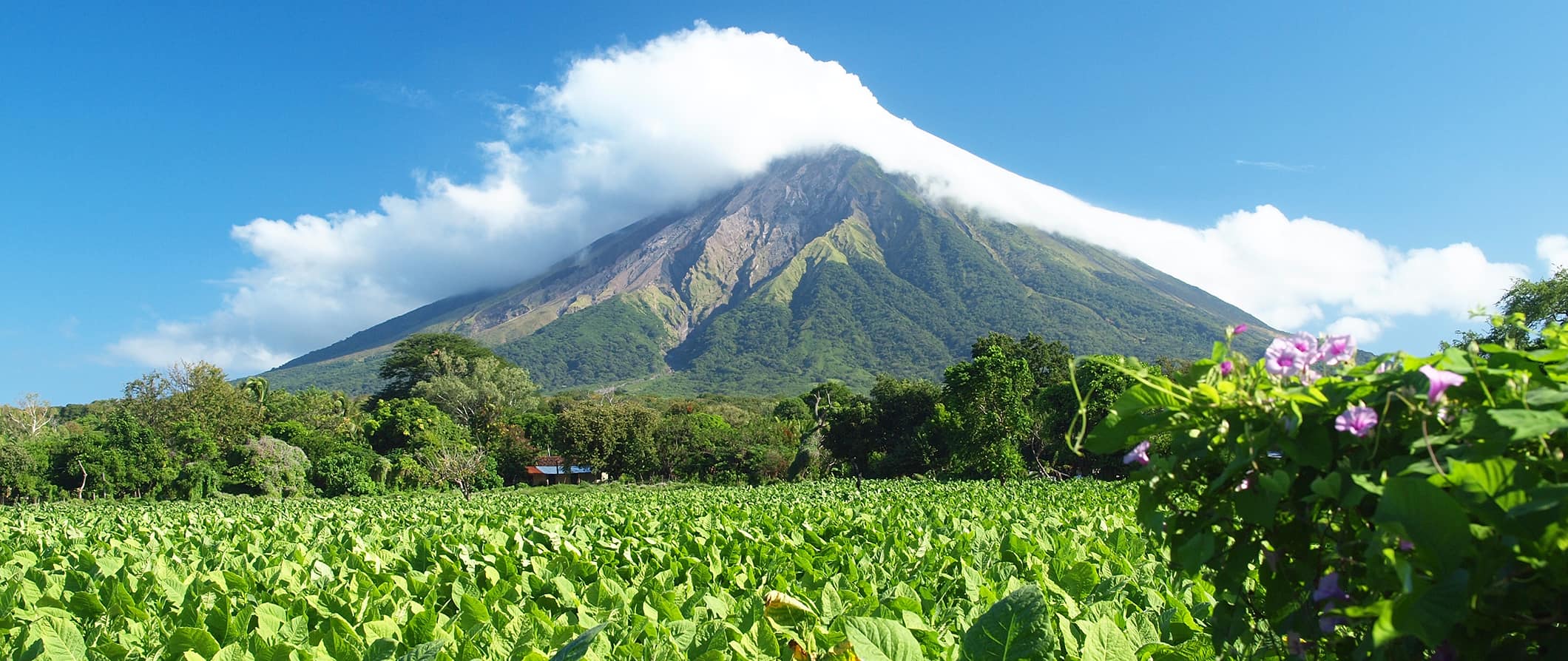
Known as the “Land of Lakes and Volcanoes,” Nicaragua is the largest country in Central America. Home to Lake Nicaragua (Central America’s largest lake), beautiful islands, expansive volcanic terrain, mangrove swamps, ethereal cloud forests, and tropical rainforests, Nicaragua is a stunning destination with tons of things to see and do — no matter your interests.
In fact, I loved my visit to Nicaragua so much I ended up extending my visit!
While Granada, León, and San Juan del Sur tend to pull in the crowds, if you leave the main southern cities and get a little off the tourist trail, you can discover even more varied landscapes, friendly locals, and little explored towns and national parks.
This travel guide to Nicaragua shows you how to visit on a budget, save money, and make the most of your trip.
Table of Contents
- Things to See and Do
- Typical Costs
- Suggested Budget
- Money-Saving Tips
- Where to Stay
- How to Get Around
- How to Stay Safe
- Best Places to Book Your Trip
- Related Blogs on Nicaragua
Top 5 Things to See and Do in Nicaragua
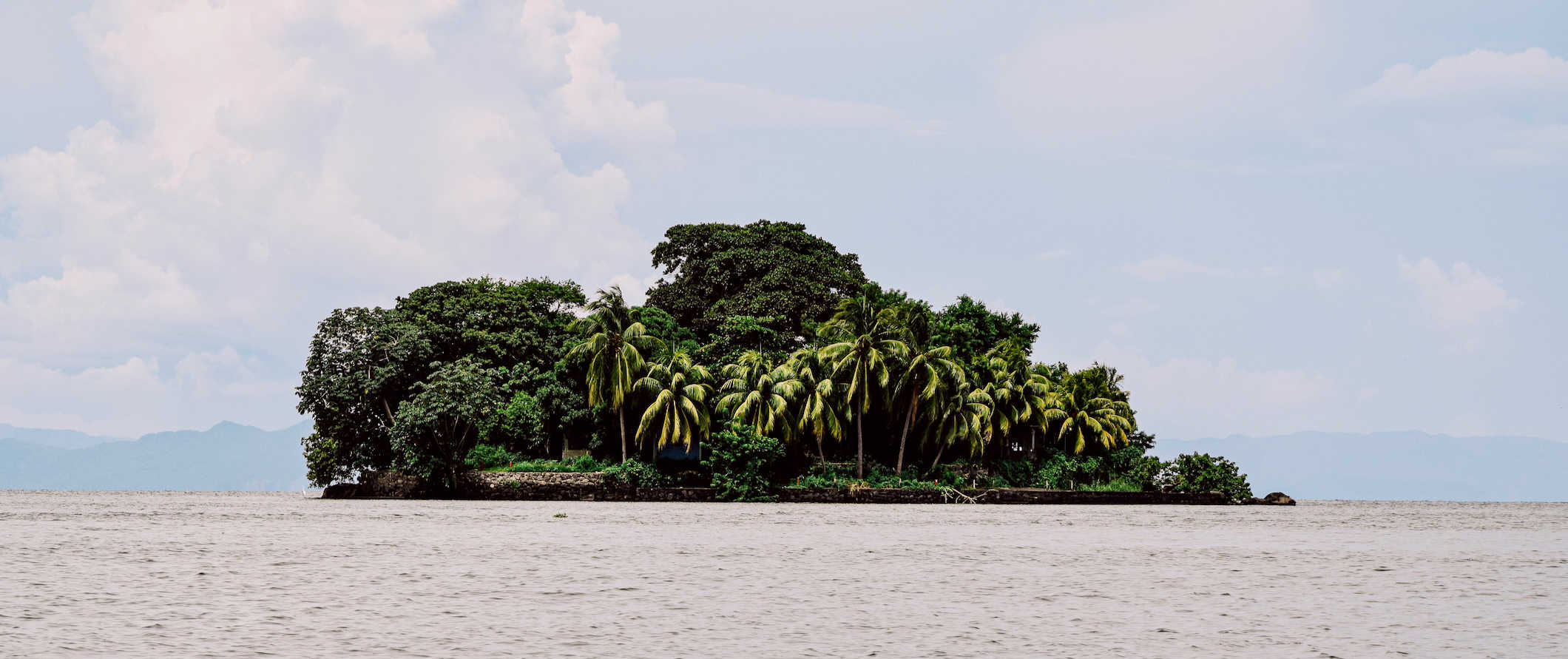
1. Visit Little Corn Island
This archipelago off the Caribbean coast is one of the best places to relax in the country. It boasts diving with hammerhead sharks and underwater caves, fresh seafood, and plenty of hammock downtime on deserted beaches (invest in a good hammock if you’re serious about your R&R). Don’t miss Otto’s Beach.
2. Relax in San Juan del Sur
This picturesque surfer paradise is fringed with prehistoric volcanic hills and was the first destination to put Nicaragua on the map. Backpackers flock here in droves to surf and party under the stars. It’s a must-visit destination in the country!
3. Admire colonial Granada
Nicaragua’s oldest city is revered as the colonial jewel of Central America. Many of the pastel-painted buildings have been meticulously restored. Bask in Granada’s historic grandeur as you weave through the cobblestone streets, visit local art galleries, and sip on a coffee in a plaza.
4. Tour León
From world-class museums, Central America’s largest cathedral, and other beautiful monuments to a lively party scene fueled by the ample student population, León is one of my favorite places in the country. Sample the best roadside quesillo and see the local artists who give the city its eccentric flavor.
5. Explore Ometepe Island
Spend your days hiking, kayaking, or cycling around the island, spotting howler monkeys and archeological ruins in the process. Two of the two volcanoes here (Concepción and Maderas) offer strenuous 8-10-hour hikes. Guides are mandatory and cost 530 NIO.
Other Things to See and Do in Nicaragua
1. hike miraflores.
Miraflores national park was the highlight of my entire trip. Located in Estelí in northern Nicaragua, this is a stunning cloud forest with rivers and waterfalls. You can take day-hikes or multiday treks to the park (the multiday trips enable you to stay with local host families in small communities) and there are also programs to help you learn to farm. The one-day trek that I did ran from 7am-4pm and cost 550 NIO which included two meals and a mandatory guide. An extra bonus that I loved is that all the money goes back into supporting the community and farmers.
2. Explore Rio San Juan
This river is a wonderful stopover for nature enthusiasts looking to go kayaking, fishing, and wildlife watching. Despite the surge in eco-tourism in the region, accommodation options are still no-frills and very low-key, with Wi-Fi and phone coverage being scarce. Most tours leave from San Carlos, which is located at the mouth of the river on Lake Nicaragua.
3. Hike a volcano
Nicaragua has 19 volcanos (9 of which are active). The two peaks on Ometepe –– Concepcion and Maderas –– are the two most popular day hikes in the country. Concepción, towering at 1,600 meters (5,249 feet) is a baking hot hike, so bring lots of sunblock and water. Maderas is easier but muddier, with a lake at the summit. Cerro Negro (near León) offers a comfortable sandy route from top to bottom and is also well-known for “volcano surfing.” Masaya Volcano is the most active volcano in Nicaragua and you can actually see the lava bubbling there (visits are limited to 10 minutes due to the fumes). For people wanting a challenge, try San Cristobal, Nicaragua’s highest volcano. If you’re hunting for scenic Insta-worthy views, hike to Telica (also within easy reach from León) for a spectacular sunset (you can actually camp at the top).
4. Relax at Lake Apoyo
Laguna de Apoyo is a breathtaking body of water that sits upon the Apoyo volcano crater near Granada. This 200-meter-deep lake is the perfect spot for swimming, kayaking, fishing, and sailing. Hostels offer day trips from Granada for around 300 NIO, which include a return shuttle and include use of another hostel’s facilities, kayaks, and tubes on the lagoon. You can also visit independently and stay overnight if you want a longer visit.
5. Tour a coffee plantation
Coffee is Nicaragua’s primary export and Jinotega, the misty and mountainous northern region, produces over 80% of the country’s output. You can organize a coffee tour in any of the eco-lodges/hostels dotted around the region. I particularly liked Eco Albergue La Fundadora. Even though I don’t drink coffee, it’s a fascinating and important industry in the country (and region) and worth learning about.
6. Relax at the Pearl Cays
The remote string of crescent-shaped playas that make up the Pearl Cays (pronounced “Pearl Keys”) offer some of the best Caribbean beaches in Nicaragua. Unfortunately, due to climate change, this stunning collection of white islands is steadily shrinking. Located near the Corn Islands, there are currently only 10 left from the original 18. Accommodation on the island is super exclusive and very pricey. However, day trips by shared speedboat can be easily arranged to make visits affordable. Private boats start from around 8,800 NIO and fit up to 10 people. Come here to snorkel, swim, and lounge away the day.
7. Visit the Bosawas Biosphere Reserve
Bosawas is the second-largest rainforest in the Western Hemisphere and is home to jaguars, tapirs, spider monkeys, harpy eagles, and more. A huge chunk of the country’s bird population — 600 out of 790 species — are located here, making it the prime spot for wildlife and bird watching. Multi-day trips, where you can truly immerse yourself in the wilderness, hike cloud forests, swim in waterfalls, and meet Mayangna and Miskito indigenous communities start at around 12,000 NIO per person.
8. Explore the Solentiname Archipelago
Isolated on the southwest tip of Lago de Nicaragua, the Solentiname Archipelago is a cluster of 36 islands revered for their pristine collections of primitive art, birdlife, and laid-back lifestyle. It’s best to base yourself in Mancarrón and organize day trips to other neighboring islands throughout your stay. It’s roughly a four-hour drive from Managua to San Carlos and then and then a two-hour boat ride to the dock in Mancarrón. There are no ATMs to be found on the islands so bring plenty of cash.
9. Shop at the Masaya Markets
Stock up on rum, coffee, hammocks, and ceramics at the Masaya Markets in Masaya National Park near Managua. Barter your way through the markets and soak up the colorful atmosphere. While there is a lot of tourist junk here, there are still plenty of artisanal handmade crafts as well. On Thursdays, a weekly ‘Night of Revelry’ features traditional dancing, local food, and music. The market is just thirty minutes from Managua.
10. Visit the stone carving hermit
Near Estelí in the north you can find Alberto the hermit. He’s been living here for almost 40 years, carving stone figures and sculptures in the jungle. He’s eccentric, kind, and incredibly knowledgeable about the flora and fauna in the region. Stop by to see his carvings and learn about his life in the jungle. Here’s a video of my visit .
11. Check out the Isletas de Granada
Southeast of the city of Granada in Lake Nicaragua, you can find the Isletas de Granada (Grenada Islets). There are around 365 of these volcanic islands, some of which are inhabited. A few have hotels on them or you can take a one-hour boat ride around them to admire their pristine beauty (it costs around 1,400 NIO for a boat that can take 8 people).
12. See Somoto Canyon
Dating back to the Miocene epoch (23-25 million years ago), Somoto Canyon is a relatively unexplored part of Nicaragua. Located near the border with Honduras, it was discovered by Czech and Nicaraguan scientists in 2004 and, since then, its spectacular walls and clear water have become a popular tourist destination. Activities here include hiking, boating, and scaling the canyon walls. The narrowest part of the canyon can only be reached by swimming or by tubing. Somoto Canyon Tours offers a variety of tours lasting from 3-6 hours with prices starting at 880 NIO.
13. Do a homestay/Learn Spanish
If you have a bit more time to spend in Nicaragua, there are lots of opportunities to volunteer, learn Spanish, and farm by taking part in a homestay (Estelí, Ometepe, and León are popular destinations for this). Hostels and tourist offices in any of the big cities can help you arrange it.
Nicaragua Travel Costs
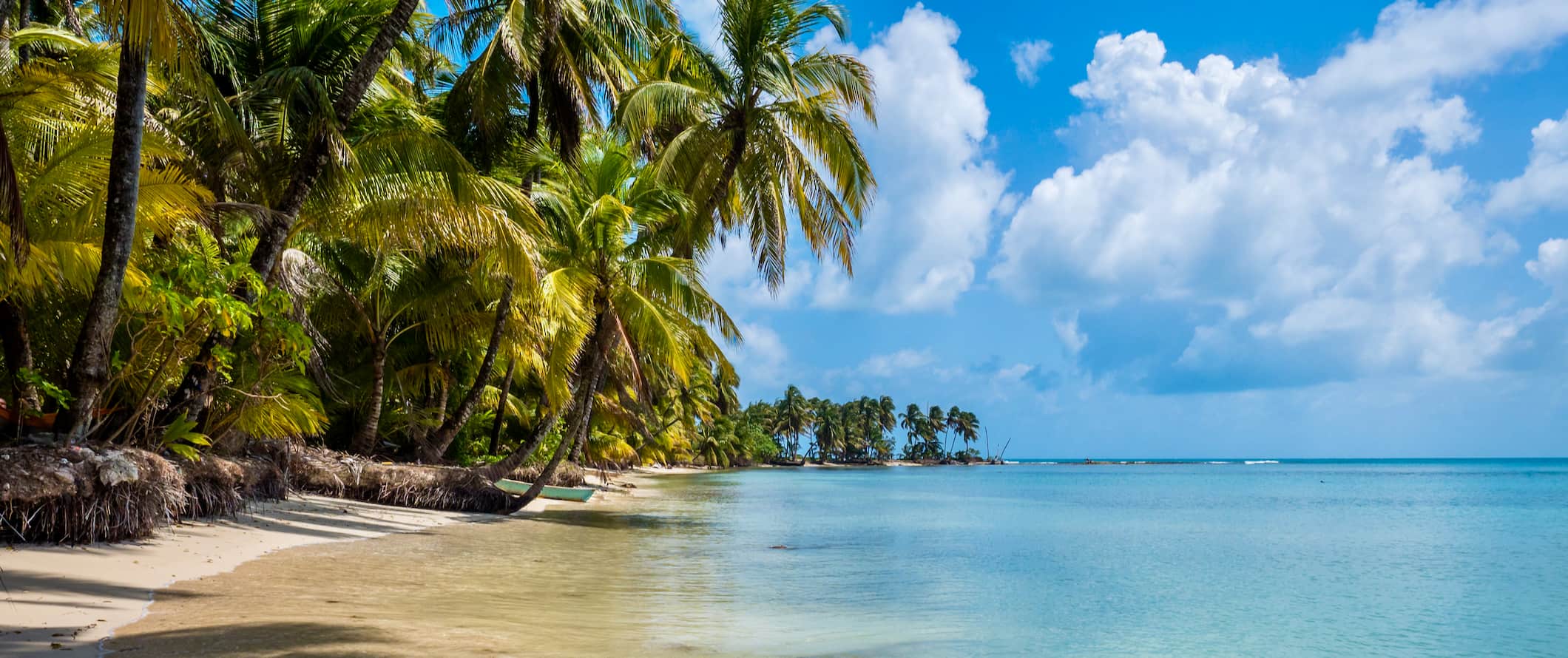
Accommodation – Small 6-8-bed dorms generally cost around 250-350 NIO per night, with private rooms costing between 700-1,700 NIO. Free Wi-Fi and free breakfast are common and many hostels also have a swimming pool.
For a budget two-star hotel, expect to pay between 1,000-2,600 NIO for a double room including breakfast. Expect basic amenities such as Wi-Fi, A/C, a TV, and sometimes a swimming pool.
Airbnb is available on Nicaragua’s Pacific coast as well as in Grenada and Managua (there are no rentals on the Atlantic side). You can score a great beachfront property from 2,800-4,200 NIO depending on group size and house style. For a private room, expect to pay at least 880 NIO per night.
Food – Beans, rice, and meat are the backbone of most meals in Nicaragua. Grilled chicken, pork, and beef are common options (especially for street food). Gallo pinto (fried rice and beans) is the go-to breakfast and dinner meal, with an egg often being added for the breakfast option. Be sure to try the popular quesillo , a tortilla wrapped around white cheese smothered cream, and nacatamales , a tamale made from maize dough stuffed with pork and potato.
A typical lunch, eaten in a comedor (local eatery serving tradition cuisine), or street stall costs between 100-175 NIO. Nicaraguans are more accustomed to dining out for lunch so travelers can expect to see fewer evening options available in non-touristy spots.
On the coast, seafood is the main staple so expect a lot of grilled fish. On the Caribbean side, the cuisine is heavily influenced by Caribbean culture as well.
A meal at a restaurant serving local cuisine costs around 345-520 NIO for a three-course meal with a drink.
The touristy towns and on the coast have more international cuisine options. Expect to pay 800-1,200 NIO for a three-course meal in a mid-range restaurant. A large pizza costs around 270-350 NIO. For fast food (think McDonald’s), expect to pay around 210 NIO for a meal.
A domestic beer or latte/cappuccino costs around 30-90 NIO.
If you’re buying a week’s worth of groceries, expect to pay between 1,100-1,300 NIO for basic staples like rice, beans, seasonal produce, and some meat or fish.
Backpacking Nicaragua Suggested Budgets
On a backpacking budget of 1,100 NIO per day, you can stay in a hostel dorm, use public transportation and chicken buses to get around, limit your drinking, cook all of your meals, and enjoy free and cheap activities like free walking tours and lounging on the beach.
On a mid-range budget of 2,800 NIO per day, you can stay in a private Airbnb or hostel room, eat out for most meals, enjoy a few drinks, take the occasional taxi or coach between cities, and do more paid activities like diving or guided day hikes.
On a “luxury” budget of 8,200 NIO per day or more, you can stay in a hotel, eat out anywhere you want, drink as much as you’d like take domestic flights to get around, and do whatever tours and activities you want. This is just the ground floor for luxury though. The sky is the limit!
You can use the chart below to get some idea of how much you need to budget daily, depending on your travel style. Keep in mind these are daily averages — some days you’ll spend more, some days you’ll spend less (you might spend less every day). We just want to give you a general idea of how to make your budget. Prices are in NIO.
Nicaragua Travel Guide: Money-Saving Tips
Nicaragua is one of the cheaper countries in the region but prices are rising quickly as it becomes more of the “it spot” to retire and work remotely from. Here are some of the best ways to save money during your trip:
- Take the chicken bus – Chicken buses (crowded local buses that make multiple stops) are the cheapest way to travel. You can save big time if you’re willing to trade A/C and cushioned seating to travel on a decommissioned school bus for a few hours. For example, the 3.5-hour trip from Granada to Rivas costs just 70 NIO!
- Refill your water bottle – The tap water here is not safe to drink so make sure you have a reusable bottle with you. To stay safe, bring a water filter like LifeStraw to ensure your water is clean and safe!
- Use the right currency – Pay with US dollars in bigger cities and save your córdobas for purchases at small businesses in rural areas and villages since they won’t have change for larger USD bills.
- Bring cash – Cards are accepted in major establishments and big cities. However, electricity can be fickle on the coast so it’s best to carry plenty of cash in case you’re caught out in a blackout.
- Learn some Spanish – Inflated tourist prices are common here. To avoid getting overcharged, learn some Spanish. Even just a few words and phrases can help you avoid being overcharged.
- Travel during the shoulder season – Prices are highest during the dry months (December-April). To avoid the crowds and save money, travel during the rainy season or shoulder season. You might get rained on, however, accommodation and activities are cheaper.
- Choose less-traveled routes – Prices for activities and accommodation plummet when you leave the tourist triangle (Granada, León, and San Juan del Sur). Nicaragua is the largest country in Central America so don’t be afraid to think outside the box and venture off the beaten path.
- Share private taxis – If you’re traveling in a small group, a taxi can often work out cheaper and more time-efficient than a bus or shuttle. Negotiate the price beforehand and ask your hostel for the normal rates so you have a reference.
Where to Stay in Nicaragua
If you’re looking for places to stay during your visit, here are some of my favorites:
- Hola Ola Hostel (San Juan del Sur)
- Viavia Leon (León)
- De Boca en Boca (Granada)
- Managua Backpackers Inn (Managua)
How to Get Around Nicaragua
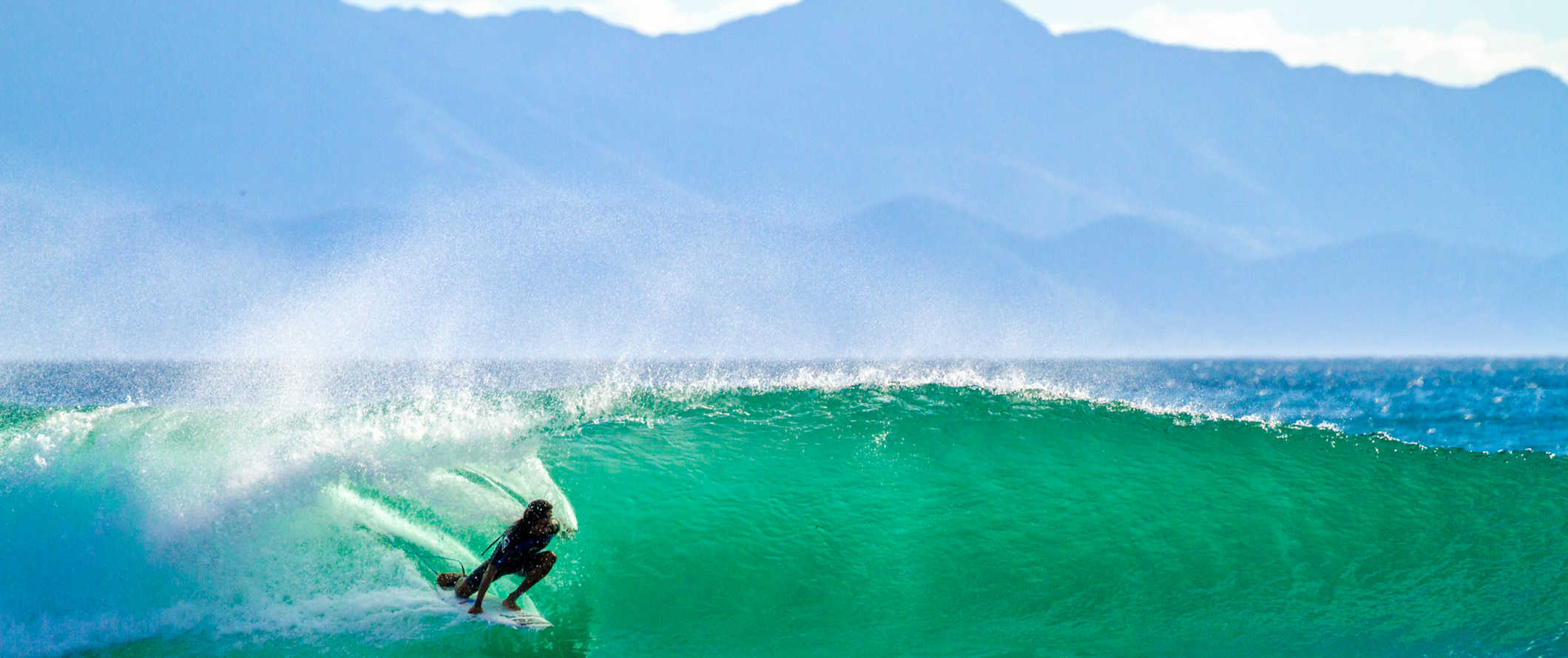
Bus – Chicken buses (i.e. converted school buses) are the cheapest way to get around. They are slow and stop often but have dirt cheap prices (around 35 NIO per hour of travel).
If you’re looking for a more comfortable journey, book with a coach company or private mini-shuttle, the latter of which are air-conditioned with cushioned seating and have storage room for your luggage.
For private mini-shuttles, expect to pay between 880-1,750 NIO per trip, however, you can try and buddy up with other hostel guests to drive down the price since it’s a private booking.
Most of the large cities have public transportation with local bus tickets costing under 6 NIO.
Air – La Costeña, Nicaragua’s domestic carrier, is based out of Managua and serves most of the country. Even if you’re keeping spending to a minimum, you have to take a flight if you want to visit the Corn Islands. Return tickets from Managua to the Corn Islands cost 5,700 NIO. For the 2.5-hour flight from Managua to Bluefields, expect to pay at least 4,500 NIO.
Train – There are no trains in Nicaragua.
Car Rental – A 4WD is recommended if you’re planning to visit rural areas as the roads here can be rough. Prices start from around 1,400 NIO per day for a multi-day rental. You’ll need an International Driving Permit (IDP) and you’ll definitely want to have extra insurance too.
When to Go to Nicaragua
There are two distinct seasons in Nicaragua: the dry season, which falls between November-April, and the green (rainy) season which is from May-October.
To avoid the crowds and peak prices, visit during the rainy season. The rainier months also offer ideal surfing conditions and deserted beaches to enjoy the waves. Just keep in mind the Caribbean coast sees more rain than the Pacific. Expect daily highs around 30°C (86°F).
The San Sebastian festival in Diriamba runs between January 17th-27th and is an amazing way to celebrate a local fiesta, with colorful parades, traditional music, and street-side buffets filling up every corner.
Easter (Semana Santa) is when you can find most locals hitting the mountains or beaches with family and friends. Buses and hotels, particularly on the coast, fill up fast so be sure to book in advance if you’re visiting during this time. Note that cities are much quieter during this period and many local businesses adapt their opening times/hours and events to celebrate the religious holiday.
How to Stay Safe in Nicaragua
Nicaragua is one of the safest countries in Central America, though petty theft and robberies are still relatively common. For that reason, keep your belongings secure and out of sight at all times — especially on crowded public transportation.
Solo female travelers should feel safe here when out during the day, however, they will want to avoid traveling alone after dark. Additionally, the usually standard precautions apply here as well (always keeping an eye on your drink at the bar, never walking home alone intoxicated, etc.).
If you rent a car, don’t leave any valuables in it overnight, and make sure to have suitable insurance just in case as break-ins can occur.
Scams are rare here, but they do happen. Be wary of random strangers asking for medicine or other financial assistance. Just politely decline and be on your way. You can read about common scams to avoid here .
Inflated tourist prices are common in Nicaragua. To avoid getting overcharged, learn some Spanish. Even just a few words and phrases can help you avoid being overcharged
Many people come to Nicaragua to party as drugs and alcohol are both cheap and abundant. However, the fines and penalties for drug use are steep. Police often expect bribes that can cost of hundreds — if not thousands — of dollars. Police won’t hesitate to strip search you if they suspect narcotics so avoid using drugs here to stay safe.
Moreover, the drug trade contributes to deaths, instability, and unrest in the region. Don’t contribute to that.
Protests and clashes in the major cities aren’t uncommon. Should a protest occur during your visit, avoid the area and return to your accommodation. While you’re unlikely to be hurt, it’s better to be safe than sorry.
As always, keep your wits about you at night time, particularly in the capital. Ask your hotel to call you a taxi in Managua (always negotiate the price before getting in the car), which can be an intimidating spot for travelers due to the lack of road names, tourists, and landmarks.
If you experience an emergency, dial 118 for assistance.
Always trust your gut instinct. Avoid isolated areas at night, and be aware of your surroundings at all times. Make copies of your personal documents, including your passport and ID, before you leave on your trip.
If you wouldn’t do it at home, don’t do it in Nicaragua!
The most important piece of advice I can offer is to purchase good travel insurance. Travel insurance protects you against illness, injury, theft, and cancellations. It’s comprehensive protection in case anything goes wrong. I never go on a trip without it as I’ve had to use it many times in the past.
Nicaragua Travel Guide: The Best Booking Resources
These are my favorite companies to use when I travel. They consistently have the best deals, offer world-class customer service and great value, and overall, are better than their competitors. They are the companies I use the most and are always the starting point in my search for travel deals.
- Skyscanner – Skyscanner is my favorite flight search engine. They search small websites and budget airlines that larger search sites tend to miss. They are hands down the number one place to start.
- Hostelworld – This is the best hostel accommodation site out there with the largest inventory, best search interface, and widest availability.
- Booking.com – The best all around booking site that constantly provides the cheapest and lowest rates. They have the widest selection of budget accommodation. In all my tests, they’ve always had the cheapest rates out of all the booking websites.
- Get Your Guide – Get Your Guide is a huge online marketplace for tours and excursions. They have tons of tour options available in cities all around the world, including everything from cooking classes, walking tours, street art lessons, and more!
- SafetyWing – Safety Wing offers convenient and affordable plans tailored to digital nomads and long-term travelers. They have cheap monthly plans, great customer service, and an easy-to-use claims process that makes it perfect for those on the road.
- LifeStraw – My go-to company for reusable water bottles with built-in filters so you can ensure your drinking water is always clean and safe.
- Unbound Merino – They make lightweight, durable, easy-to-clean travel clothing.
- Top Travel Credit Cards – Points are the best way to cut down travel expenses. Here’s my favorite point earning credit cards so you can get free travel!
Nicaragua Travel Guide: Related Articles
Want more info? Check out all the articles I’ve written on backpacking/traveling Central America and continue planning your trip:
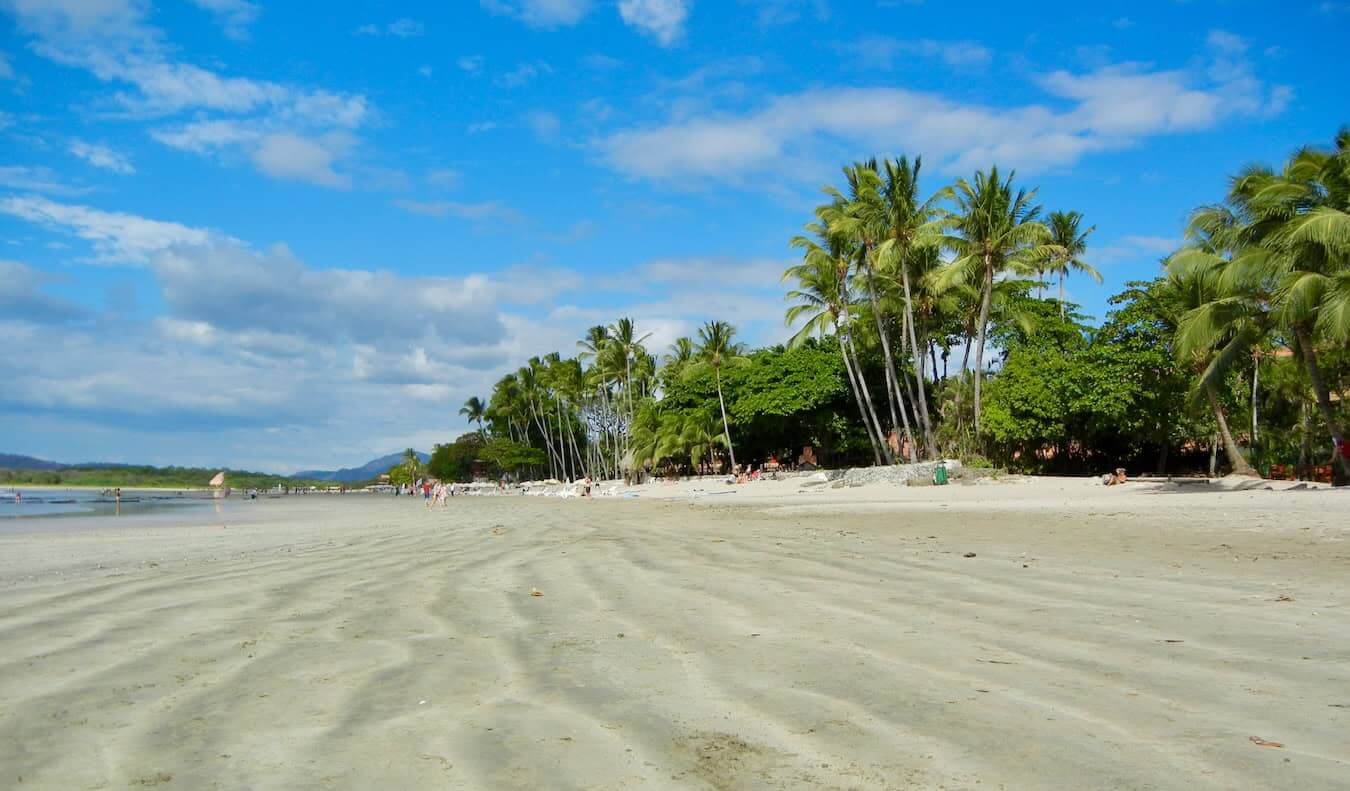
My 1 Week Costa Rica Road Trip Itinerary
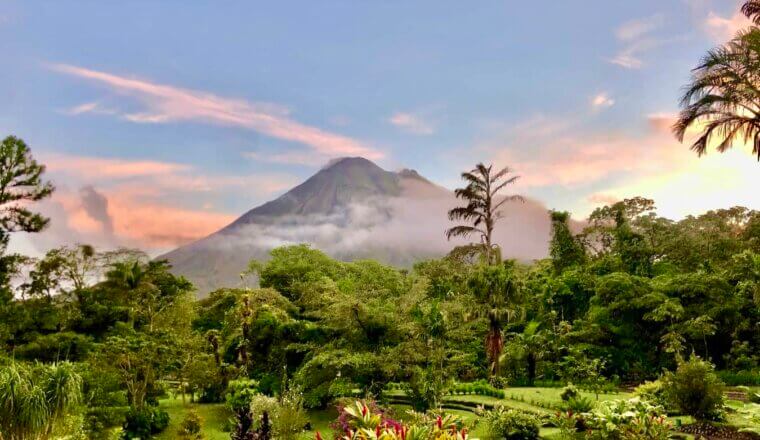
Do You Need Travel Insurance for Costa Rica?
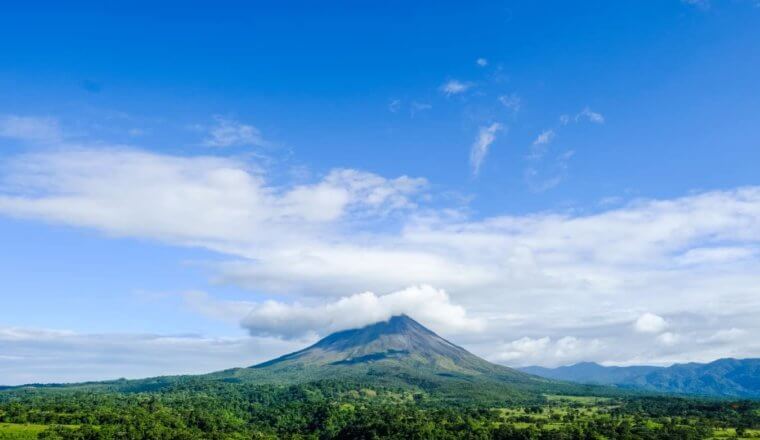
The Best Tour Companies in Costa Rica
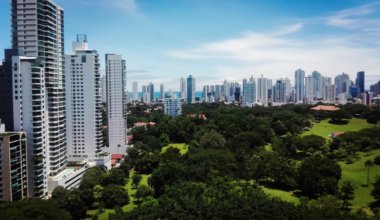
The 6 Best Hostels in Panama City, Panama
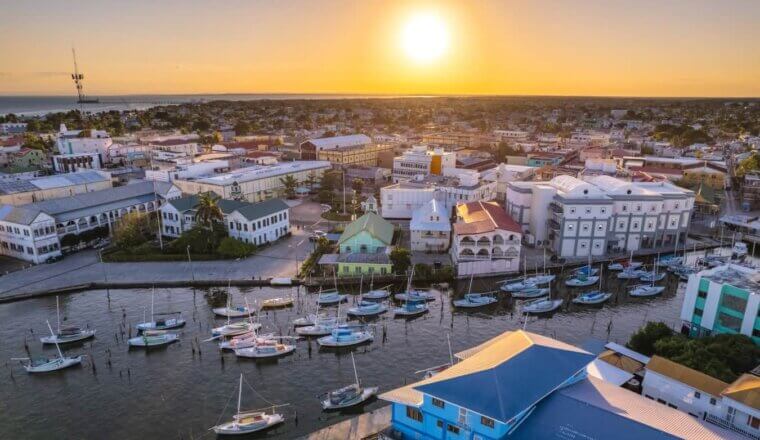
Is Belize Safe to Visit?
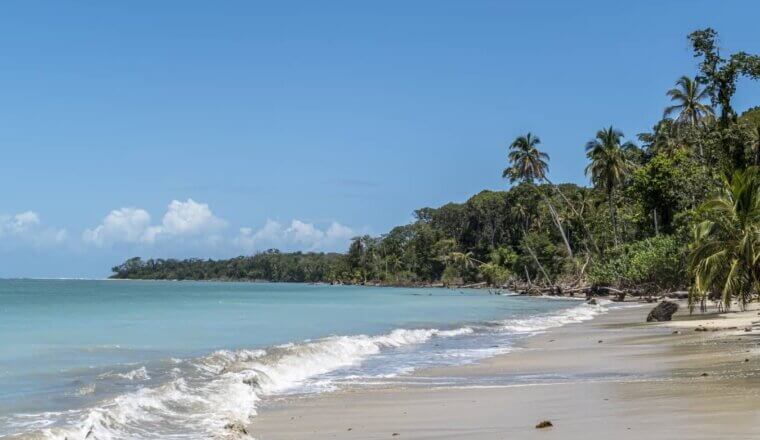
Is Central America Safe to Visit?
Get your free travel starter kit.
Enter your email and get planning cheatsheets including a step by step checklist, packing list, tips cheat sheet, and more so you can plan like a pro!

- Where To Stay
- Transportation
- Booking Resources
- Related Blogs

Is Nicaragua Safe for Travel?
Dec 27, 2023 | Nicaragua , Safety
Nicaragua, the lesser-known neighbor of tourist hotspots Costa Rica, Guatemala, and Panama, is an up-and-coming traveler’s gem. Lush jungles, active volcanoes, colonial cities, friendly locals, and secluded beaches offer a little something for everyone. Over the last decade, Nicaragua has finally made a name for itself on the traveler’s map but the country’s recent political unrest leaves many travelers wondering… is it a safe place to travel?
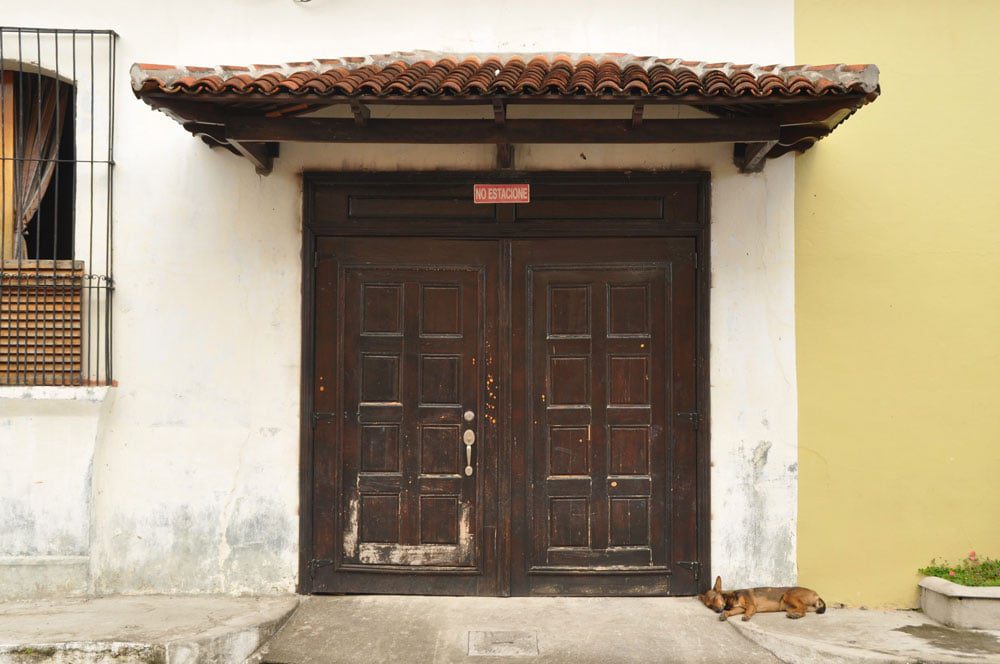
Compared to its heavily trafficked neighboring countries, Nicaragua has a far less violent crime rate. Although the country’s past turmoil may make it seem unsafe in a lot of ways, it is a relatively safe place for tourism and travelers.
That being said, it is not without crime and has dealt with its own issues. Just like many other developing countries, being aware of the dangers, knowing potential scams, and taking precautions to stay safe are all crucial insights to an enjoyable trip.
Here are the facts…
Nicaragua’s political past
Nicaragua has had a tough political history with long reigns of dictatorship. In the 1980s, the Central American country had an intense civil war that took the lives of over 30 thousand Nicaraguans. Although it is still recovering from its turbulent past over 2 decades ago, it remains one of the safest countries in Central America.
Last Civil unrest
In April 2018, protests started against social security reforms implemented by the government. The reforms increased taxes and decreased social security. These protests were instantly met with repression from authorities and from April 2018-February 2019, over 300 people were killed as a result.
Due to political and civil turmoil in the country, governments around the world have updated their travel advisories and recommended that tourists change their travel plans to avoid Nicaragua. This brought tourism to a halt in 2018 and many tourist-based businesses were closed for an extended period.
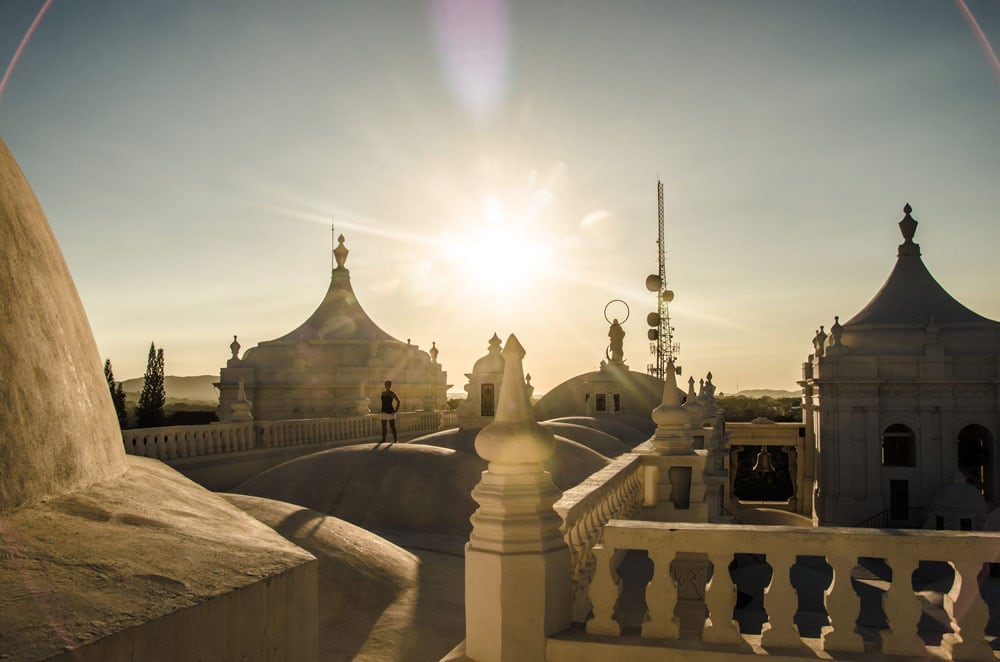
Since December 2018, civil unrest in the country has come to a halt and as a result of the gained stability, hotels and tourist areas started to reopen their doors. Since then, tourism has slowly returned and more people are catching on to visiting Nicaragua as a budget-friendly destination.
Even so, some major countries still have high travel advisories for Nicaragua and the country is still deemed unstable. (The United States still has a level 3 travel advisory on the country.)
These days, protests have since ceased and the country has calmed down. There is no serious threat to tourists. Being aware of the situation and staying out of political issues, and protests should keep you out of harm’s way during your travels in the country.
Petty crimes such as robbery and theft are the most common offenses in Nicaragua. These usually take place in the capital of Managua and larger cities such as Granada and Leon.
As with many developing countries, pickpocketing is especially common in public areas. Bus stations, public transport, markets, and anywhere heavily trafficked are hotspots for pickpockets. Especially in large cities.
To avoid being a potential target, you should keep minimal cash on you. The money you do bring should be kept in a secure place such as a travel money belt. Try not to have anything bulging from your pockets- as it can make you an easy target. It’s also a good idea not to wear expensive clothing or flashy jewelry, as this will attract attention to yourself.
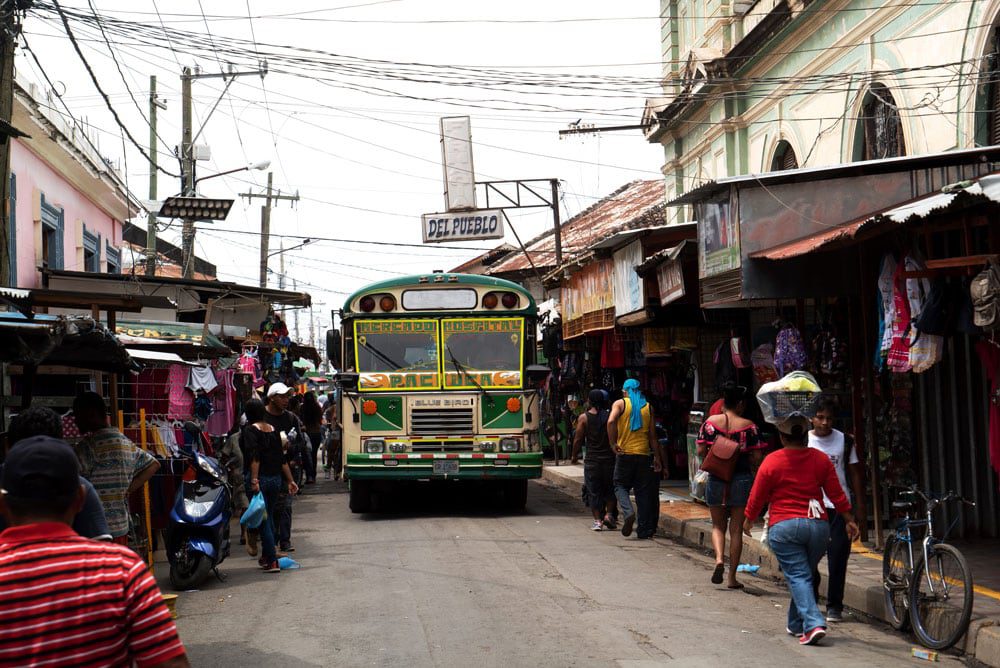
Another important action is to keep your phone hidden. Try not to pull it out and flash it on the street or anywhere in public. Look at your map and directions before you leave your room and don’t wander around staring at your expensive smartphone. It can easily be snatched from your hand by someone passing by.
You’ll notice that Nicaragua, like many developing countries, has different daily-life security measures than most Western countries. In cities and larger towns, houses are generally surrounded by high walls, the windows are barred, and a lot of people have some form of security system (usually loud dogs).
Most hotels, banks, shopping centers, and gated communities have around-the-clock security guards posted at entrances and in common areas. This is all for the general well-being and safety of locals and tourists alike.
It is a good idea to choose your accommodation wisely. Do your research and choose hotels with around-the-clock security in safe areas. You should also check if you have a safe or lockbox in your room for your valuables.
Online reviews about your accommodation’s security can be a comforting thing to look into before your trip.
Violent Crime
Nicaragua has the lowest violent crime rate in Central America with far less violent crime than the more popular tourist destinations of Costa Rica, Belize, Panama, Mexico, or Guatemala*. In fact, Nicaragua has a violent crime rate considerably lower than the average in urban areas of the USA**. But that doesn’t mean that it is non-existent. Here are a few things to be aware of and tips to stay safe if you are unfortunate enough to fall victim to these crimes while traveling.
Source * Wikipedia ** NYPOST
Although uncommon, armed robberies have been reported in the country. These generally occur in crime hotspots of larger cities.
If you are attacked by an armed robber, do not resist. It is best to simply hand over your valuables, listen to their demands, and be on your way. You can go to the police and file a report but don’t count on your stolen items being returned.
The best thing would be to make sure you have travel insurance before your trip and that it covers your valuables. Having a police report will support your claim and although the robbery might have brought your spirits down, you are safe and should receive compensation for your insured valuables.
More dangerous theft and armed robberies often occur at night or when people are under the influence of drugs or alcohol. Being a smart and aware traveler can help you avoid these situations.
Travel during the day and avoid walking alone at night with money or valuables on you. It is best to refrain from walking down unlit streets or passing through well-known heavy crime areas. If you are traveling by car in the city or at a stoplight, consider keeping your doors locked and windows up to be safe.
Issues on the Road
Express kidnappings from taxi drivers have also been reported in Nicaragua and although rare, it is important to be aware of the danger. They often drive stolen cars calling themselves taxis in areas around Managua and also in larger cities such as Granada, and Masaya.
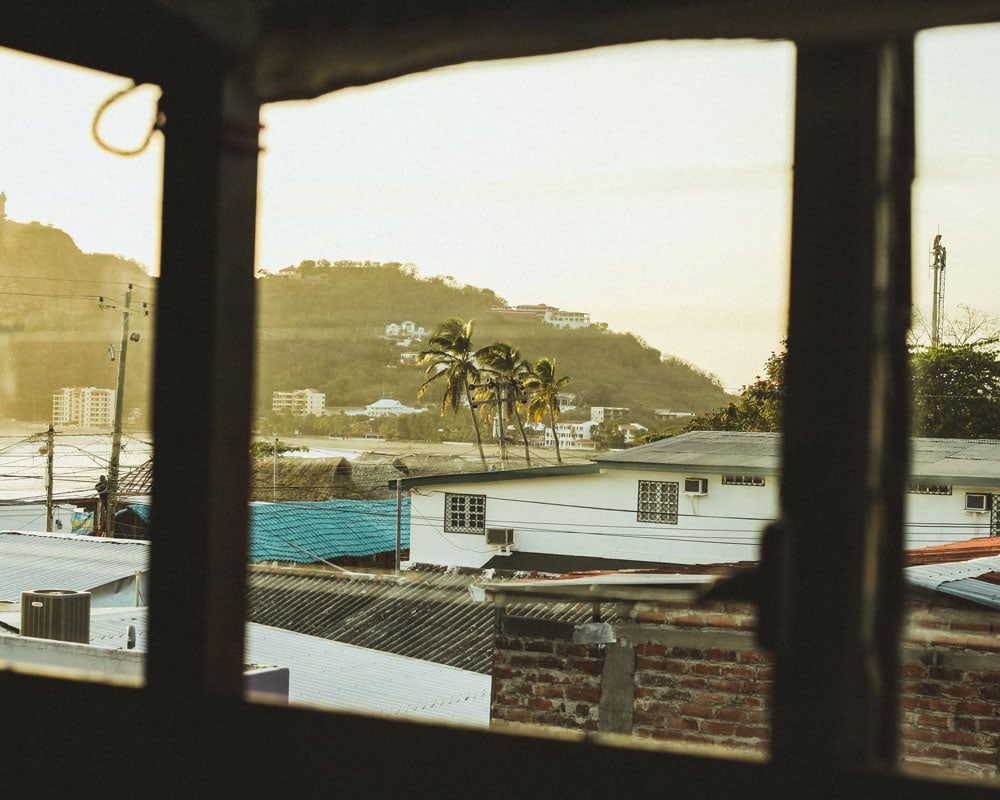
There have been cases of kidnappers threatening the victim, and forcing them to take out cash at various ATMs they are driven to.
It is important to be attentive when choosing a taxi. Here are some things to consider when choosing your driver.
- Make sure the taxi has a red border around the license plate and the number is clear
- Don’t share a cab with anyone you don’t know or trust
- When possible radio or call a cab from a reputable company or better yet, arrange reliable transport with your hotel.
- Make sure the car is labeled with the company name and logo and you note the driver’s name and registration.
Similar robberies have been reported on certain highways such as the Managua-Leon highway and the Tipitapa-Masaya highway that connects the international airport to Granada. These are usually fake police inspections that end in bribes or tourists having to go to various ATMs to withdraw cash for the “police”. It is best to avoid these areas at night and always ask for credentials if you are stopped by the police.
Women’s safety
Women traveling alone should take special caution, avoid drinking too much, and consider not walking alone (especially at night).
If you are traveling solo as a woman, look for comfortable accommodation in a safe area with hosts that are backed by a solid reputation. This is one of many major tips for solo female travelers to consider on the road.
It is not uncommon to have to pay the police to get out of a minor traffic infraction or for forgetting documentation in your hotel room. It is a good idea to keep a small amount of money with your driver’s license and hide the rest. You don’t want to end up paying more than they ask for after seeing a wad of cash in your wallet.
Scams to Avoid
Every developing country has its list of scams that locals have conjured up to score some extra cash from tourists. Nicaragua is no different, and although you will most likely not have to deal with this, it’s good to be aware of all possibilities before your trip.
Here is a list of the top scams on tourists.
- People asking you to help pay for medicine for a sick child or family member.
- Requests to support locals or their families on the street.
- Fake police: Always ask to see a police ID or credentials before handing over your passport or important documentation.
- Be careful when renting cars or motorbikes. Read the contract, take pictures, and check the vehicle over thoroughly before rental.
- Be aware of dodgy tour operators and only use reputable companies. You can find great operators by doing online research or by word of mouth from fellow travelers or friends.
- Be aware of the taxis and transport you choose and make sure you are using reputable drivers.
Overview of tips on staying safe.
Overall if you are smart, attentive, and you follow your traveler’s intuition, you should have an enjoyable experience in the country and remain safe. Here are the top tips on keeping safe while traveling in Nicaragua.
- Keep your valuables on you in transit or locked away in your room. You should only bring what you need on outings and be aware of pickpocketing.
- Avoid flashing valuables and expensive jewelry in public places.
- Don’t walk alone at night.
- Travel during the day as much as possible.
- Be cautious of the transport you choose.
- Choose reputable hotels outside of crime hotspots with 24-hour security.
- Don’t resist or fight back if attacked by an armed robber.
- Don’t get involved in politics and avoid participating in political gatherings or protests.
Coronavirus in Nicaragua
The government has done little to educate its people on the dangers of Coronavirus and has put no restrictive measures down during the entire process. But, the general public is aware of the seriousness of this global pandemic and has taken matters into their own hands for their health and safety.
Most people used to wear masks in public places, alcohol/sanitizer was graciously handed out when entering large shopping centers, and handwashing stations were placed in front of smaller shops and in front of some bus stops. However, these measurements are no longer taking place in the country.
It is up to you to be socially responsible during this global pandemic, wash your hands frequently, and choose your destinations and accommodations based on measures put in place for your health and safety.
Overall, Nicaragua is a generally safe and comfortable country for travel and tourism and has a greater success rate compared to other countries in Central America. Your safety comes down to having your head on your shoulders, researching the dangers and scams before you go, booking comfortable and safe accommodation away from crime hotpots, and being aware of yourself and your surroundings on your Journey.
A Stay at Costa Dulce Retreat
Here at Costa Dulce Surf & Yoga Retreat , we offer a safe and comfortable living space and would be happy to welcome you to our family at our bungalows overlooking the Pacific Ocean. We provide private transportation with people we know and trust and hold a safe space tucked away at an (almost) private beach 20 minutes south of San Juan del Sur. Learn more about our Yoga Retreats & Surf Camp or check out our retreat packages .
752 Comments
indian pharmacy online: reputable indian online pharmacy – indian pharmacy
http://edpillpharmacy.store/# cheapest ed pills
discount ed meds: Best ED pills non prescription – cheapest ed online https://edpillpharmacy.store/# affordable ed medication mexican pharmacy [url=https://mexicopharmacy.win/#]Best pharmacy in Mexico[/url] reputable mexican pharmacies online
https://mexicopharmacy.win/# mexico drug stores pharmacies
buying prescription drugs in mexico online: Best pharmacy in Mexico – medication from mexico pharmacy
online pharmacy india: Top mail order pharmacies – india pharmacy
buy prescription drugs from india: Online India pharmacy – top 10 online pharmacy in india http://edpillpharmacy.store/# ed treatment online ed medicines online [url=https://edpillpharmacy.store/#]cheap ed pills online[/url] buy ed meds online
online ed pills: Best ED meds online – where to buy ed pills
buying prescription drugs in mexico online: Best online Mexican pharmacy – mexican mail order pharmacies http://indiapharmacy.shop/# top 10 pharmacies in india reputable mexican pharmacies online [url=http://mexicopharmacy.win/#]Best online Mexican pharmacy[/url] mexican online pharmacies prescription drugs
buy erectile dysfunction treatment erectile dysfunction online or online ed prescription https://maps.google.com.kh/url?q=http://edpillpharmacy.store best online ed medication [url=https://clients1.google.co.zm/url?q=https://edpillpharmacy.store]where to buy erectile dysfunction pills[/url] online ed drugs and [url=http://www.1moli.top/home.php?mod=space&uid=6458]get ed meds today[/url] get ed prescription online
https://mexicopharmacy.win/# mexican mail order pharmacies
Submit a Comment Cancel reply
You must be logged in to post a comment.
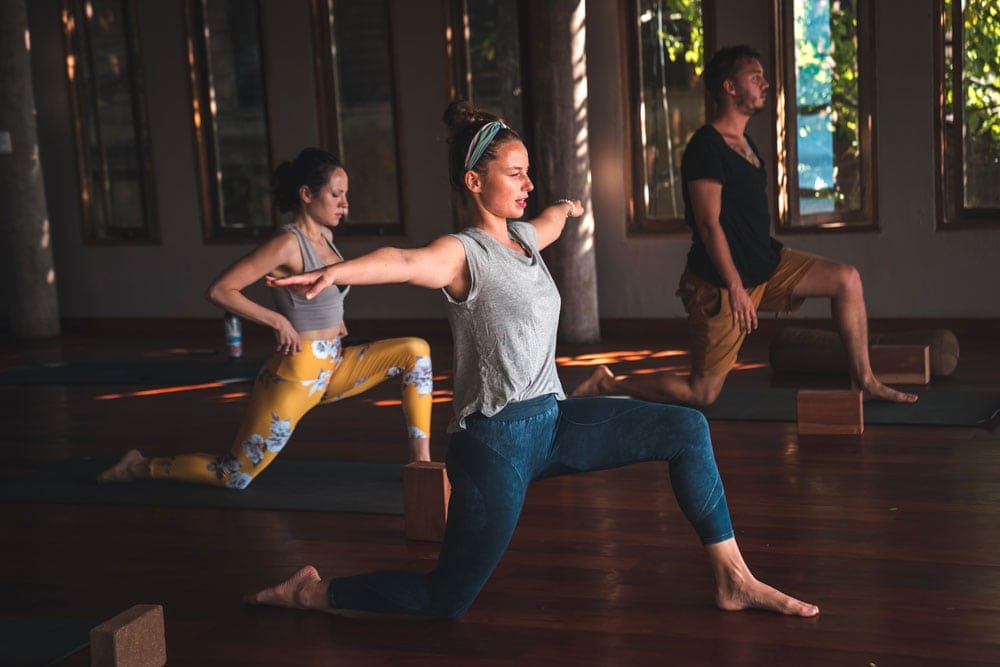
Yoga Retreat Packages
Yoga is a crucial element of our life here at Costa Dulce since it is the foundation of the holistic lifestyle we embody. Yoga and wellness is the key to take care of ourselves, our surroundings, and the people we love. Learn more about our Yoga Retreat Program .
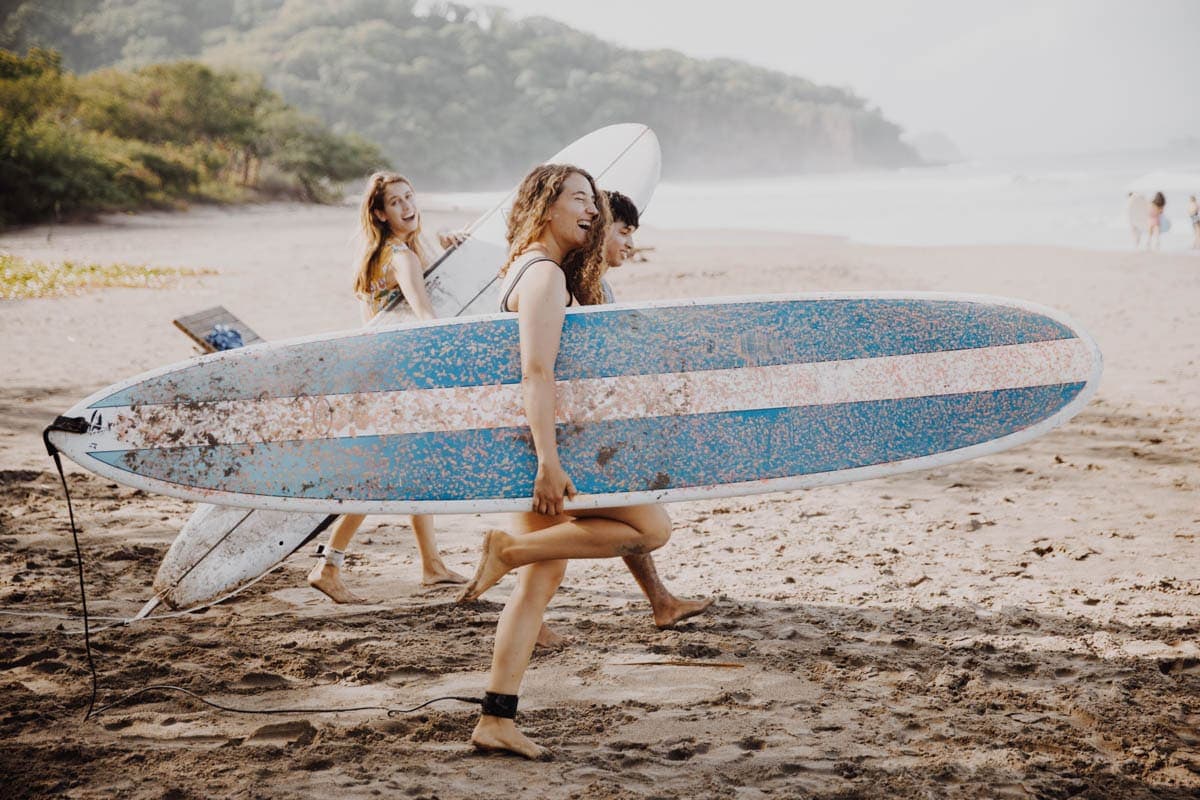
Surf in Private Paradise
Costa Dulce provides the perfect opportunity to learn how to surf. This is your chance! Nicaragua is a great place to learn but many try and do it at the crowded and more popular surf breaks. Learn more about our Surf Camp Program .
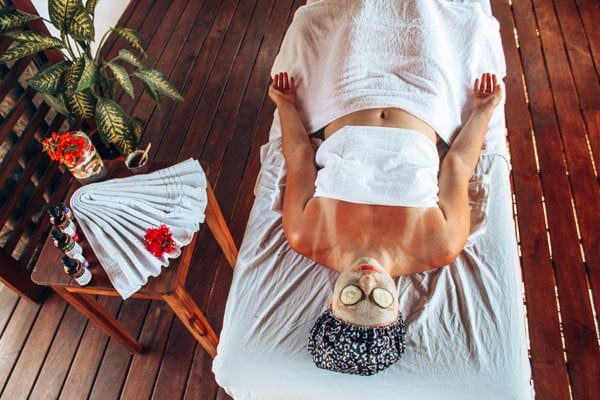
Relax with our Spa Treatment
Treat your body with a relaxing massage, nourish your body/face with a natural mask or energize your body and skin with our signature coffee/ coconut oil scrub, two of Nicaragua’s finest ingredients. Learn more about our Spa & Wellness services.
Recent Posts
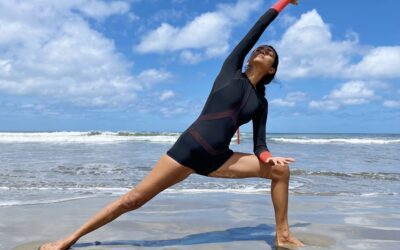
Surf and Yoga: A Match made in Tropical Heaven by Shruti Shah (@flowithshruti)
by Costa Dulce Team | Oct 28, 2022 | Surfing , Yoga
As a yoga teacher who surfs on occasion, I have realised that being on the surfboard out in the water gives me the same feeling that comes from being on my yoga mat. Surfing allows me to connect with nature and be truly present in the moment, the same way flowing with...
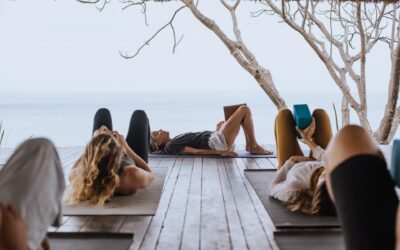
Holistic Wellness Center
by Costa Dulce Team | Mar 6, 2024 | Wellness , Yoga
Are you looking for a place to rejuvenate your mind, body, and soul? Holistic wellness centers have become increasingly popular as people seek a comprehensive approach to health and well-being. These centers focus on your overall well-being, catering to various...

Yoga Twice A Day: The Benefits & Why
by Costa Dulce Team | Feb 1, 2024 | Retreat , Yoga
Yoga Twice A Day: The Benefits & Why Yoga, an ancient practice with a history spanning thousands of years, has evolved into a holistic approach to well-being embraced by people worldwide in our modern age. Beyond a mere series of poses, yoga offers a path to...
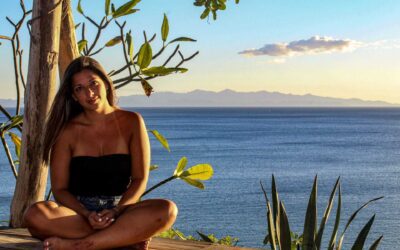
How To Get From Costa Rica to Nicaragua
by Costa Dulce Team | Jan 1, 2024 | Costa Rica vs Nicaragua , Ecotourism , Nicaragua , Safety , Travel Plans , Vacation
You’ve most likely done some research to get to this point, and yes it is better to travel through Costa Rica to get to Nicaragua. Liberia, Costa Rica, or in some cases San Jose, Costa Rica. Both have international airports with many more flight options, direct flights and in many cases cheaper prices.
Stay in touch
Sign up for our newsletter, stay in touch with the Costa Dulce family and get updates, news + discounts on your next stay.
Thank you for subscribing!
Pin it on pinterest.
- Search Please fill out this field.
- Manage Your Subscription
- Give a Gift Subscription
- Newsletters
- Sweepstakes
If you click on links we provide, we may receive compensation.
- Travel Products
- Travel Accessories
5 Unexpected Ways You Can Make Your Airbnb Instantly Safer — Starting at $12
Don't check in without these useful personal safety devices.
Alesandra Dubin is an LA-based lifestyle writer and editor. As a veteran digital journalist, she's covered travel, food, parenting, and more for over 15 years. Her work has appeared in Travel + Leisure, TripSavvy, and countless other online and print outlets. An avid traveler, she often trots the globe with her husband and their twins. Follow her on Instagram and Twitter at @alicedubin. Alesandra holds a master's degree in journalism with an emphasis on cultural reporting and criticism from NYU, and a bachelor's degree from UC Berkeley.
:max_bytes(150000):strip_icc():format(webp)/AlesandraDubin-67615307279641008729cb062b07fd3b-b63952818f6c4ba094f26d0bd29bb11a.jpg)
Travel + Leisure / Jaclyn Mastropasqua
Although Airbnb hosts must follow safety protocols and the platform publishes its own set of safety tips for Airbnb guests, booking a rental in a home or space someone else maintains can feel like a leap of faith. And since you won't find an on-site concierge or front desk staff, you'd be smart to establish a few preparation best practices of your own so you feel safe and secure whenever you book these accommodations.
Of course, that's not to say you should freak out or overpack in a panic. "Bringing your own door locks seems like overkill and prone to user error that could prohibit you from actually getting out if you need to," says Stephanie Rivera, who has been operating an Airbnb business in Southern California for four years. The same goes for bringing your a portable safe, she says: "Those are really just saying, 'Hey there, Mr. Bad Guy, all the stuff you want is right in here!'"
Instead of overdoing it, the best course of action is to be reasonable and practical. What it comes down to, Rivera explains, is "just how much extra stuff do you want to pack?" The sweet spot, she recommends, is a few key — small, lightweight, affordable — products that help contribute to your personal and your belongings' safekeeping and your peace of mind. Below, you'll find five foolproof personal safety travel essentials that deserve a spot on your Airbnb packing list. Bonus: Each item is available now at Amazon, with fast, free shipping for Prime members (so you can grab what you need before that next trip).
Lunarlipes Portable Carbon Monoxide Detector
Airbnb allows hosts to specify whether or not their property has a smoke or carbon monoxide detector on site. If the property doesn't have one of its own (or if you don't trust it works), Rivera says that "it's not a bad idea" to bring a carbon monoxide detector with you for safety. It's easier to operate than you'd think, given how small and portable some models are, like this one — which weighs just about 3 ounces and is about the size of a TV remote control.
Anker Power Bank
Carrying a backup power bank is good practice for any traveler, but you might not think you need one when staying in an Airbnb with plenty of wall outlets. Think again, advises Rivera, whose Airbnbs are located in a region of the country where natural disasters like fires are feasible eventualities (as are many areas of the world in the age of climate change ). "If the power goes out, you won’t be able to charge or use Wi-Fi," she says. "You’ll need your cell phone plan to stay up to date and out of danger. For the same reason, you might consider bringing along a small, portable flashlight , too, Rivera suggests.
Easytest Pool and Hot Tub Test Strip Kit
If you're staying at a rental with a pool or hot tub, consider traveling with your own test strip kit to get a sense of the water's chemical levels and any potential for waterborne hazards. But, Rivera warns, if you're going to the effort of traveling with them, make sure you take your time with the tests — and that you actually know how to read them accurately. "The problem is that you want them to be like a pregnancy test" — that is, unambiguous — "but they are notoriously hard to read. Like, what shade of purple is that?" Match the strip results to the guide printed on the container.
Amazon Basics Cable Lock
Whether you're traveling for business or leisure (or that hybrid known cheekily as "bleisure"), you want to make sure your most valuable tech tool is safe: your laptop. Rivera recommends bringing along a lightweight cable lock to keep your laptop right where you left it — and not in the hands of any would-be thieves — and beef up your peace of mind when you're on the go. This little tool is also handy if you have your laptop out at, say, a cafe or an airport.
First Aid Only 299-piece First-aid Kit
Many Airbnb hosts provide, at the very least, basic first-aid supplies in their rental locations. But that doesn't mean you should count on the one specific item you're looking for to actually be stocked in the rental home's inventory at the time you need it. "You won’t know what has already been spoken for" by a previous guest and not yet replaced in time for your stay, Rivera says. So it's always smart to bring a basic but well-stocked kit of your own, like this one that's equipped with 299 pieces of emergency first-aid supplies at the budget-friendly price of $21.
Love a great deal? Sign up for our T+L Recommends newsletter and we’ll send you our favorite travel products each week.
Shop More T+L-Approved Picks
:max_bytes(150000):strip_icc():format(webp)/brooks-cascadia-16-review-tout-8c5e9f52ea324e278b09c408b9a44107.jpg)
Related Articles

IMAGES
VIDEO
COMMENTS
Reissued with updates to information on arbitrary enforcement of laws. Reconsider travel to Nicaragua due to arbitrary enforcement of laws, the risk of wrongful detention, and limited healthcare availability.Exercise increased caution in Nicaragua due to crime.. Country Summary: Throughout Nicaragua, government and law enforcement officials continue to target individuals and organizations seen ...
Nicaragua, Honduras, and El Salvador have maritime and land disputes over islands and access to fishing rights in the Gulf of Fonseca on the Pacific Coast, a closed sea under international law. Tourism: The tourism industry is unevenly regulated, and safety inspections for equipment and facilities are uncommon. Hazardous areas/activities are ...
The Association for International Road Travel has country-specific Road Travel Reports available for most countries for a minimal fee. For information traffic safety and road conditions in Nicaragua, see Travel and Transportation on US Department of State's country-specific information for Nicaragua .
Besides crime, Nicaragua also suffers from an unstable political situation and frequent civil unrest. This civil unrest is the primary reason why some governments, including the United States, caution their citizens to avoid non-essential travel to Nicaragua. Nicaragua has experienced a rapid drop in safety over the past few years.
Wedged between Costa Rica and Honduras, Nicaragua is a good all-round destination.Think beautiful cathedrals, elegant architecture, a ton of history, and loads of nature to get to grips with. However, Nicaragua was hit with renewed political trouble in 2018, and it was hit hard. There have been widespread protests against a corrupt government and these are sometimes met with force.
Nicaragua; You can travel between these countries for up to 90 days without having to undergo entry and exit formalities at border immigration checkpoints. ... Avoid non-essential travel. Your safety and security could be at risk. You should think about your need to travel to this country, territory or region based on family or business ...
Location: Nicaragua. Travel Advisory Level 3: Reconsider Travel. The U.S. Department of State renewed its Travel Advisory for Nicaragua on December 5, 2022. The Department continues to advise travelers to reconsider travel to Nicaragua. Reconsider travel to Nicaragua due to limited healthcare availability and arbitrary enforcement of laws.
Too many injuries and deaths have resulted from non-compliance. As a last word of precaution: avoid hitchhiking in Nicaragua, don't go home with strangers after a night at the club, and always travel in a group whenever possible. 3. Express kidnappings in Nicaragua.
The United States has issued a level 3 'Reconsider travel' advisory on Nicaragua due to the 'civil unrest, limited healthcare availability and arbitrary enforcement of laws'. Both the UK and Canada have issued 'exercise a high degree of caution' travel advisories. Commercial airlines still fly to the country.
Safety. Nicaragua has a high crime rate, including armed robbery, assault and express kidnapping. There aren't many police outside major urban areas. Avoid remote locations. Don't go out alone or at night. Only travel to tourist areas. Violent crime occurs in unofficial taxis.
Restaurants in Nicaragua are open. Bars in Nicaragua are . Find continuously updated travel restrictions for Nicaragua such as border, vaccination, COVID-19 testing, and quarantine requirements.
General safety tips for tourists in Nicaragua. Pack smart - dress down; In Nicaragua, blending in isn't just about cultural immersion—it's also smart safety practice. Ditch flashy jewelry and designer gear for more modest attire. You'll not only fit in better with the local scene but also avoid drawing unwanted attention that screams 'tourist'.
FCDO travel advice for Nicaragua. Includes safety and security, insurance, entry requirements and legal differences.
With that said, here are my top 9 safety tips for you if you want to experience this beautiful country. 1. Don't Walk Outside At Night Alone. Walking outside at night, especially as a solo female traveler, is unsafe in Nicaragua. Make sure you join a group of travelers if you want to go out.
FCDO travel advice for Nicaragua. Includes safety and security, insurance, entry requirements and legal differences.
Traveling alone as a female anywhere is more risky than traveling alone as a man. I will add, Nicaragua is culturally conservative, so covering up is a good idea. In addition to respecting local culture, not showing too much skin is a good way to keep yourself from experiencing unwanted attention or encounters. #2.
Travel.State.Gov CSI provides essential travel information and advisories for international travelers visiting Nicaragua.
Planning a trip to Nicaragua? Stay informed about travel advisories to ensure a safe journey. From political unrest to natural disasters, this article covers everything you need to know before your trip. Read on for essential information and precautions.
Safety Situation in Nicaragua. When it comes to safety, Nicaragua has seen significant improvements in recent years. However, it is essential to stay informed about the current situation before traveling to the country. Nicaragua is generally considered safe for tourists, but it is crucial to exercise caution and be aware of potential risks.
5 Safety Tips for Traveling to Nicaragua. Much of the Nicaragua travel safety advice pertains to the land and using safety when in remote areas. It's to avoid injuries from accidents in most cases. You can heed these instructions in open areas too. 1. Don't hike on volcanoes or remote areas alone.
Please follow the links or call the numbers below for consular assistance. Contact the S. Embassy in Managua, located at Km 5 ½ C. Sur Managua, Nicaragua, by calling +505-2252-7104, 7:15 a.m. to 4:30 p.m., Monday through Thursday, and 7:15 a.m. to 2:00 p.m. Fridays. The American Citizen Services unit is also available by email during regular ...
Contact the International Association for Medical Assistance to Travelers (IAMAT; tel. 716/754-4883, or 416/652-0137 in Canada; www.iamat.org) for tips on travel and health concerns in the countries you're visiting, and lists of local, English-speaking doctors.. General Availability of Healthcare. Not surprisingly, most of Nicaragua's and El Salvador's best hospitals and healthcare centers are ...
3. Admire colonial Granada. Nicaragua's oldest city is revered as the colonial jewel of Central America. Many of the pastel-painted buildings have been meticulously restored. Bask in Granada's historic grandeur as you weave through the cobblestone streets, visit local art galleries, and sip on a coffee in a plaza. 4.
Overall, Nicaragua is a generally safe and comfortable country for travel and tourism and has a greater success rate compared to other countries in Central America. Your safety comes down to having your head on your shoulders, researching the dangers and scams before you go, booking comfortable and safe accommodation away from crime hotpots ...
Make your Airbnb more secure with these five foolproof personal safety devices and tools from Amazon. These expert-approved travel essentials include a portable carbon monoxide detector, backup ...